
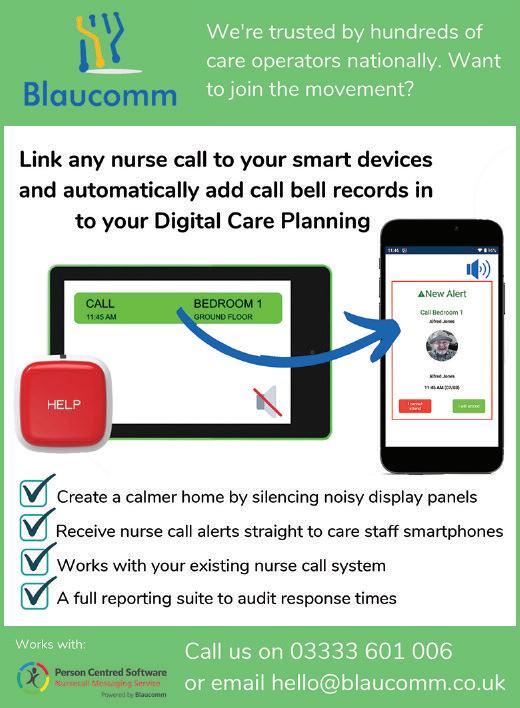






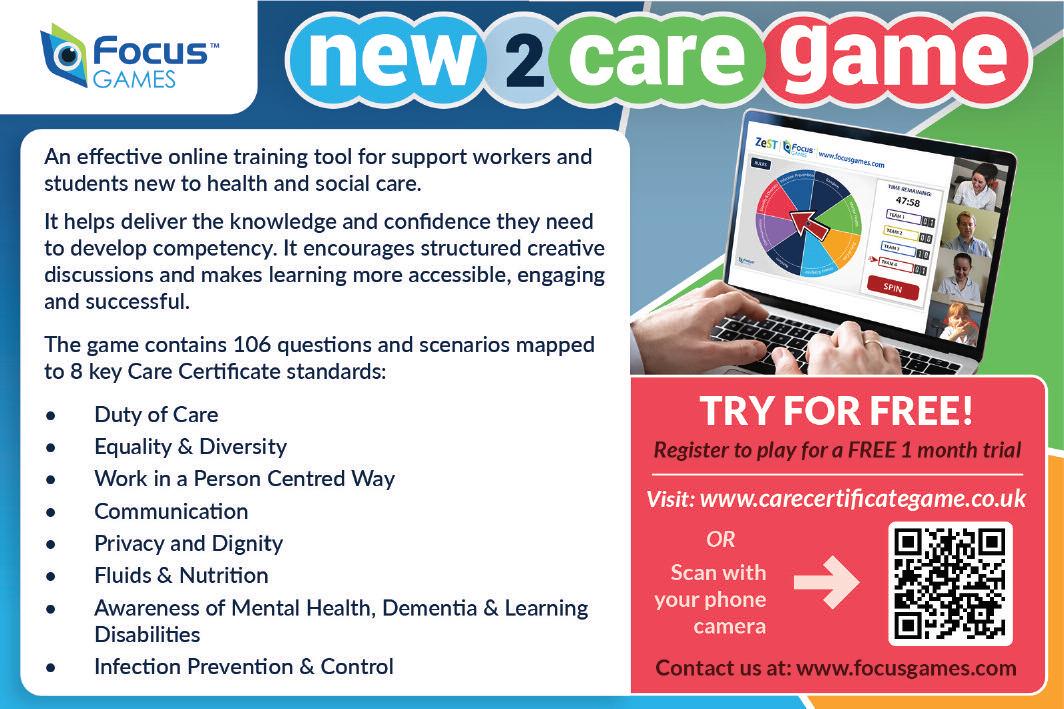

£1.75 where sold JUL/AUG 2023 Issue 19 T H E P U B L I C A T I O N F O R N U R S I N G A N D R E S I D E N T I A L C A R E H O M E S W W W T H E C A R E R U K C O M Issue 72 W W W T H E C A R E R U K C O M INSIDE THIS ISSUE Editor's Viewpoint 2 Personal Hygiene 30-31 Nurse Call & Falls Management 42-44 Technology & Software 45-47 Nutrition & Hydration 32-33 Laundr y Solutions 34-37 Professional Ser vices & Recruitment 49 THECARERUK THECARER UK THECARERUK Interactive Activities 38-41 Products & Ser vices 48 MAY/JUNE 2024
A stark new report has revealed that adult social care is facing a multitude of challenges aside from severe funding shortages A Local Government Association (LGA) report entitled The Care Act 2014 Ten Years on from Royal Assent lays bare that the biggest issues facing adult social care are greater than just severe funding shortages with responding councillors also pointing to challenges around recruiting and retaining the care workforce, more people with more complex needs and an inability to invest in preventative services to help people live independent lives and avoid the need for more acute care The 2014 act brought adult social care law into a single statute bolstered by a comprehensive purpose of promoting individual wellbeing (CONTINUED ON PAGE 3 ) As Councils Struggle to Meet Social Care Duties
Urgent Action Needed in Adult Social Care
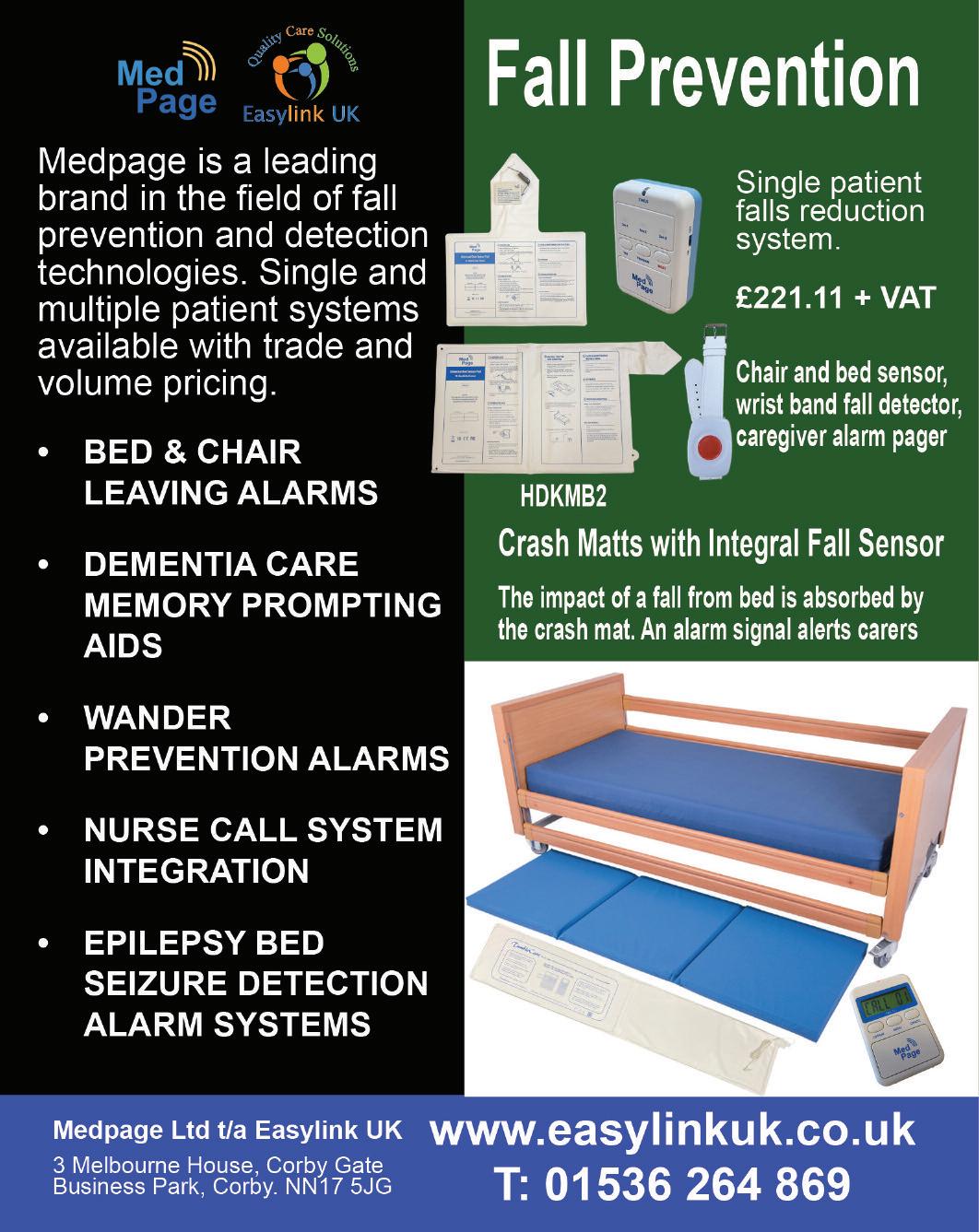
Contributions are welcome for consideration however no responsibility will be accepted for loss or damage Views expressed within this publication are not necessarily those of the publisher or the editorial team Whilst ever y care is taken when compiling this publication to ensure accuracy, the publisher will assume no responsibility for any effects, errors or omissions therefrom All rights reser ved, reproduction is forbidden unless written permission is obtained All material is assumed copyright free unless otherwise advised
VIEWPOINT

It has for us here at THE CARER been a busy couple of months!
We have recently exhibited at UK CARE WEEK and THE CARE SHOW LONDON and you will see us over the coming months at the ALZHEIMER’S & DEMENTIA SHOW at London s Excel, and the CARE & OCCUPATIONAL THERAPY SHOW at Exeter’s Westpoint
These shows provide valuable sector insight and understanding and we have been delighted to engage and gain feedback from people at all levels Our lead story the ten year anniversary of the Care Act confirms what we are often told at these shows - the sector faces many challenges and urgently needs reform and funding
The report by the Local Government Association (LGA) really does cast a sobering light on the state of adult social care in the UK The Care Act heralded as a transformative step towards a more integrated and person-centred care system aimed to promote individual wellbeing prevent care needs from escalating and enable individuals to live independently for longer Yet a decade on the reality is starkly different
The LGA's findings reveal that despite the noble intentions of the Care Act, inadequate resources have left many needs unmet Councils, grappling with limited budgets, are forced to make painful spending cuts in other crucial areas to try and maintain basic care services This systemic underfunding not only jeopardizes the quality of care but also places immense strain on families caregivers and the care workforce
One of the most striking suggestions from the LGA is the call for adult social care funding to be consolidated into a single nationally managed pot rather than the current reliance on local council budgets and council tax revenues This fragmented funding model does in my opinion exacerbate inequalities with care quality and availability varying significantly across different regions A single funding pot could ensure a more equitable distribution of resources providing a stable and predictable funding stream to meet the growing demands of an aging population
As we approach a general election, and calls from within the sector are mounting, the need for political parties to present clear, robust policies on adult social care has never been more critical The next government must rise to the challenge and prioritize sustainable funding solutions Vague promises and piecemeal reforms will no longer suffice We need comprehensive long-term strategies that recognize the importance of adult social care as a fundamental component of our social fabric
Once again we have this issue had some wonderful uplifting and heartwarming stories from care homes throughout the UK so please do keep them coming I can also be contacted at any time at editor@thecareruk com
We would also ask our readers to follow us on Twitter @TheCarerUK and also sign up to our digital issues at www thecareruk com/recommends/signup to have all the latest news delivered directly to you weekly

Sylvia Mawson
David Bar tlett
Guy Stephenson
TYPESETTING & DESIGN
Matthew Noades
PRODUCTION & WEB ADMIN
Charlene Fox
Published by

PUBLISHED BY RBC Publishing Ltd 3 Carlton Mount 2 Cranborne Road Bournemouth Dorset BH2 5BR TELEPHONE: 01202 552333
EMAIL: sales@thecarer uk.com WEBSITE: www thecarer uk com
EDITOR Peter Adams SALES EXECUTIVES
PAGE 2 | THE CARER | MAY/JUNE 2024
Editor Peter Adams
The Carer is published by RBC Publishing Ltd, 3 Carlton Mount, 2 Cranborne Road, Bournemouth, Dorset, BH2 5BR
Urgent Action Needed in Adult Social Care
(CONTINUED FROM FRONT COVER)
The act also brought about considerable legal changes including putting safeguarding adults work into law for the first time setting a national eligibility threshold for access to care introducing rights to advocacy for people who would otherwise struggle to be involved in assessments and other processes providing carers equal rights to assessment and support as adults and requiring councils to provide preventive services
However the while the LGA said that the legislation remained right for the sector and has achieved some gains a lack of resources has resulted in missed goals and the body is now calling for immediate investment in adult social care to tackle the urgent issues affecting services alongside a long-term care workforce plan
The report highlights that councils are doing all they can to ensure they meet their duties under the Care Act – including cutting spending on other neighbourhood services – but many still fear they will not be able to over the coming years
Only around two thirds of councils are confident of being able to meet all their legal duties under the Care Act by next year (2025/26) – a decade after the Government introduced landmark legislation designed to improve access to vital care and support
SPENDING CUTS
This is despite eight in 10 councils forecasting having to cut spending on other community services – such as parks libraries and leisure – in a bid to try and protect care services according to a LGA survey of councillors published to coincide with the 10th anniversary of the Care Act receiving Royal Assent This follows years of significant underfunding of adult social care services
The Act pulled together a patchwork of legislation on adult social care built up since 1948 placing duties on councils including the need to focus on people’s wellbeing and ensure the provision of preventative services However the Act has coincided with a rise in people needing to draw on care and support and cuts to council funding that has left councils under increasing pressure to do more with less
The report revealed that over the past ten years spending had not kept pace with estimated increases in demand, leading to:
•
“A serious underinvestment in prevention and early intervention services”, contrary to section 2 of the Care Act, which requires councils to provide or arrange preventive services
“Severe recruitment and retention challenges in the care workforce”, undermining the legislation’s emphasis on person-centred care and choice and control
“Unsustainable pressure on providers”, affecting implementation of councils’ section 5 duty to promote diversity and quality in the provision of services
Rationing of care and support leading to unmet and under-met need
Mounting and increasingly unsustainable pressures on carers
Ahead of a General Election, the LGA said all parties need to end the politicisation of adult social care, put the national interest first, and work on a cross-party basis at relevant points to secure the future of care and support so that people can live the life they want to lead
CRITICAL POINT
Cllr David Fothergill social care spokesperson for the LGA said: The Care Act was a beacon of hope for those needing care and support but this hope has faded A decade on people are still facing long waiting times for assessments and support, and not getting the full care and support they need
“We are at a critical point for people who draw on care, councils and the sector Councils are doing all they can to ensure they meet their duties under the Care Act – including cutting spending on other neighbourhood services – but many still fear they will not be able to over the coming years
This simply isn t good enough It isn t good enough for people who draw on care and support and it isn t good enough for the care workers who work incredibly hard for very little financial reward
“Adult social care needs urgent attention This must be top of the in-tray for any incoming government ”
MEANINGFUL REFORM
Professor Martin Green OBE Chief Executive of Care England says: LGA findings that almost one in three councils are no longer confident they can provide basic adult social care should set alarm bells ringing The precarious state of the adult social care sector as a result of a persistent workforce crisis and chronic underfunding has yet again been made clear, and still the government continue to turn a blind eye to the evidence that is staring them in the face ”
“Our sector needs meaningful reform to be able to cope with growing demand To ignore social care any longer is to ignore the nearly half a million people who receive care and support and the 1 5 million people who deliver it: government simply cannot continue to let these people down
GENERAL ELECTION NEEDED TO KICK-START CARE REFORM
Independent Care Group Chair Mike Padgham said that the country needs a General Election to save social care and that “sweeping changes are long overdue”
He said: “This report from the LGA is depressingly familiar – we have seen dozens of these all painting the bleakest of pictures of social care delivery over the past decade and more
What it tells me is that we need change and we need it now
“We are promised a General Election so let us have that without delay and let us hear from the political parties what they plan to do with social care to tackle the mess the sector is in at the moment ”
“We need to hear concrete proposals as to how politicians plan to get care to the 1 6m who currently can t get it recruit 152 000 care staff to meet current demand pay and reward the workforce properly and find the extra 440 000 staff we will need to meet growing demand by 2035
“And we need to hold those politicians accountable ”
He also said that he hoped the report, and others like it, would make the public wake up to the serious state of social care
I think there is an assumption amongst people that care is available for them or their loved ones when and where they need it Mr Padgham added
Nothing could be further from the truth We are heading towards care deserts and when people realise that they might start to agree with us that enough is enough and we need to see improvements ”

THE CARER | MAY/JUNE 2024 | PAGE 3
A National Care Ser vice - T ime for Debate Is Over Says Industr y Leader
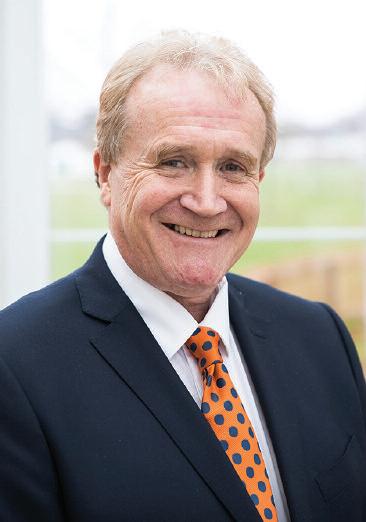
The time for debate and discussion is done – we need a National Care Service and we need one now
The simple fact is the current system isn t working and we need a bold, fresh approach to get care to the people who need it
Politicians have been dancing around the creation of an NCS for many years but none have been brave enough to tackle it
Let me straight away be clear that in talking about an NCS I am not meaning a nationalised social care service the idea of which terrifies many MPs on both sides of the political divide
No I am talking about a unified care service – bringing NHS care and social care under one roof to provide proper, cradle-to-thegrave healthcare for the country
And my view is that such a National Care Service is both vital and inevitable
Social Care Minister Helen Whately poured cold water on the idea of such radical change in a speech to ADASS recently and claimed that the Government was making progress in social care reform She pointed to the introduction of the care workforce pathway, extra support for unpaid carers and investment in the Adult Social Care Technology Fund as recent examples
In reality these are tiny tinkering measures that though welcome do little to shore up the crumbling fabric of the social care sector And promises of more change to come ring hollow as the Government has had 14 years to bring forward improvements to social care and despite endless promises has failed to deliver
Previous administrations - Conservative and Labour – have all failed the sector too We have had endless reports, commissions and suggestions telling us what needs to change but we need to see some action
Some 1 6m people can t get the care they need and more and more care providers are struggling to survive, not least because the sector is short of 152,000 staff
Why can t politicians see that the current system is no longer fit for purpose and no longer meets the demands of an ageing population with ever more complex care needs?
It doesn’t make sense to keep ploughing money into the NHS but not support social care All you get is bottlenecks with people stuck in hospital because there are fewer and fewer social care packages available to look after them Reported figures suggest the number of people unable to be discharged from hospital is 15% higher than before COVID-19 Some estimates put the number at around 14 000 people – one in seven –well enough to be discharged We have to switch resources from the NHS into social care so that we can
both look after people when they are discharged – freeing up the bottlenecks - and invest more in preventative care so that people don’t end up in hospital in the first place Money switched into social care saves money for the NHS in the long run so it isn t a case of finding billions in new investment
To a certain extent, many of the current ills are self-inflicted Local authorities didn’t pay a fair price for care when the economic climate was better and so they are now facing the repercussions because that lack of proper funding has left social care provision on its knees
The NHS was set up in 1948 when life expectancy was shorter and nobody envisaged a need to care for people with such complex needs and without family support available
We have to move forward and take the type of quantum leap that Aneurin Bevan and his contemporaries took in 1948 It was radical then and faced opposition but where would we be without the NHS today?
We need another politician or political party to take a similar leap today and bring social care – a service that has grown and developed piecemeal over the last 35 years – properly into the fold with its workforce respected and paid the same as their NHS counterparts
If the country isn t quite ready to bring social care and NHS care together just yet then we certainly need to reform the social care element soon so that it is ready for such a merger in the future
That means giving social care a national framework but with local input into delivery as the NHS works currently Amongst our Five Pillars for Social Care Reform the Independent Care Group suggests ring-fencing a percentage of GDP for care, setting a minimum carer wage and creating fair tariffs for services such as care beds and homecare visits Those three actions would be an integral part of the creation of the social care portion of the new National Care Service
Why not look at a model of social care delivery like that currently adopted by GPs in which social care providers provide services to their local communities
the time for that kind of wholesale change
The current mixed market approach based on choice, can work perfectly well if it is properly managed and funded A mix of small medium and large care providers working in the for-profit and not-for-profit sectors can meet current and future demand if changes are made
But change is the key The status quo is not an option Politicians must be brave and accept that things cannot go on as they are or the situation is just going to get worse with social care failing and dragging NHS care down with it A complete overhaul of the way social care is managed and funded is the only way forward and whether you label that as part of the creation of a National Care Service or not it has to happen now or we soon will not have any social care at all
Twin Scholars Receive Academic Excellence Award

a great decision we made supporting both of them It s a testament to the impact that targeted support and recognition can have on the lives of ambitious and dedicated young people Jane Tapsell, interim head of Kingston Business School, also praised the twins, highlighting the significance of their success: Kehinde and Taiwo s achievements underline the importance of nurturing talent
and providing opportunities for students to excel Their success is a shining example for their peers and a proud moment for Kingston University We are delighted to celebrate their continued academic excellence ” Kehinde Alimi reflecting on his journey shared: The Salutem Scholarship has been a cornerstone of my academic and professional development The opportunities for the internships and practical experiences have been invaluable Being able to apply what I have learnt in class to the real world has been fantastic and seeing how even in accounting I can make a difference to people s lives “Winning the Academic Excellence Award again is not just a personal achievement but a milestone that motivates me to aim higher in my future endeavours
Taiwo Mubarak Alimi added: “The support from Salutem and Kingston University has been instrumental in overcoming financial barriers and enhancing my practical skills The work placement has allowed me to interact with people from all different walks of life which is not usually something you see in accounting “The Academic Excellence Award is a recognition that fuels my determination to persevere and excel in both my academic and personal life
Government To Appear In “Landmark Court
To Avoid Revealing Social Care Data
PAGE 4 | THE CARER | MAY/JUNE 2024
under contract to the NHS and Independent Care
would provide the security they need to invest
Boards? That contract arrangement
strike me as the solution Whatever your thoughts on nationalisation as
concept,
would be hugely expensive
massively time-consuming As a country, we have neither the money
Nationalising social care does not
a
it
and
nor
Independent Care Group chair Mike Padgham writes exclusively for The Carer
Two Government departments are set to appear in court against the Information Commissioner (ICO) in an attempt to dismiss requests from the ICO to reveal critical information around government funding for adult social care The hearing in the Information Tribunal will take place on 29th April The litigation derives from Freedom of Information requests made by specialist legal rights charity Access Social Care (ASC) to reveal data available to and used by policymakers in relation to decision making on social care funding HM Treasury and the Department for Levelling Up Housing and Communities denied the requests Their decisions were overturned by the Information Commissioner in July 2023 who ruled that disclosure was in the public interest and outweighs the argument from HM Treasury and DLUHC that it should be exempt as it is live government policy Now the Government is appealing the decision in the Information Tribunal The ICO will be represented in the case by John Fitzsimons of Cornerstone Barristers while Access Social Care will be represented by Niamh Grahame of Public Law Project and Stephen Cragg KC of Doughty Street Chambers HM Treasury and DLUHC will be represented by Laura Shepherd of 30 Park Place Access Social Care s CEO Kari Gerstheimer said: “The social care sector including public bodies charitable and commercial organisations are all aligned that social care is critically underfunded Government s position is that social care is adequately funded but they are refusing to reveal their maths For two years two government departments have refused to share this information despite the Information Commissioner stating that sharing is in the public interest Access Social Care is a data led legal rights organisation that exists to make sure people can access the social care they have a right to Through our casework and our data, we see that everyday older and disabled people are denied the social care they need and have a right to This case strikes to the heart of the need for government transparency to enable good quality public decision making In fighting for this information ASC is trying to reveal and understand the decision-making that guides social care and how it can be improved Having information about social care funding allocations would shed light on whether the government is considering relevant factors, for which they have a public law duty, and critically would provide civil society organisations a much-needed opportunity to play a meaningful part in driving improvement of central government decision making We are a small organisation challenging two government departments on behalf of disabled people older people and carers to make sure that central government adequately funds adult social care so that we all get the social care we need and have a right to
won a prestigious Academic Excellence Award from Kingston University London for the second year running
Salutem Scholarship Programme offers a comprehensive package including full fee waivers maintenance grants and paid internships, designed to support the next generation of health and social care professionals
Care and Education, expressed his admiration for the twins achievements saying Kehinde and Taiwo embody the very essence of what our scholarship programme aims to support We normally offer one scholarship but how could we choose between twins? Their dedication resilience and academic prowess are truly inspiring and demonstrates what
Case”
Twin brothers Kehinde and Taiwo Mubarak Alimi Salutem Care and Education scholarship students who work in the company’s Windsor head office have
The
John Godden, chief executive of Salutem
Incoming Government Will Face Eight Tests for Adult Social Care
Nuffield Trust has set out eight adult social care ‘tests’ for political candidates ahead of the next election
Entitled What health and care need from the next government: #2 –Adult social care the tests set out the need for parity with the NHS as its first challenge to the next government
With a general election approaching although yest to be announced the Nuffield Trust's briefing series challenges the NHS and social care manifesto commitments of UK political parties in advance of the vote
The briefing examines adult social care: citing that this vital public service” has been left with insecure funding, variable access, heavy reliance on unpaid carers catastrophic costs for those in need and high staff turnover Reform, it says is long overdue, and sets out a criteria needed to be met for getting social care on the right footing
The briefing goes on the say that both the NHS and social care in England are struggling A combination of the sudden shocks from the Covid-19 pandemic and high inflation and the longer-term pressures of poor workforce planning morale problems failure to deliver promised efficiency savings and decades of delay to social care reform are all taking their toll and highlights that strain and dysfunction are deeply rooted and will not immediately improve and the public sees this clearly: satisfaction with both services is at historic lows
Credible long-term plans to improve this situation are vital for any political leader who wants to gain the support of the British people, the Trust says
An ongoing series of general election briefings, produced with funding from the Nuffield Foundation has examined a set of key issues where a government taking or returning to office in the next year must act in order to meaningfully improve health and care
This latest (second) in the series examines adult social care – a vital public service supporting people of all ages in England to live with dignity independence and wellbeing which the briefing says has been left to languish for decades, and despite much excellent highquality care being successfully delivered every day hundreds of thousands of people who need support with their daily lives simply get none the Trust adds
Multiple different aspects of social care are not functioning well, and simply pouring more money into this dysfunctional system will not be enough, the briefing says, highlighting that attempting a partial fix to just one part of the system in isolation risks creating unintended consequences elsewhere
For example expanding eligibility for care without ensuring there
are enough high-quality providers capable of meeting demand may raise expectations but leave many people unable to access the care they have been told they should be able to access Similarly trying to raise workforce pay without making sufficient funding available risks pushing care providers into bankruptcy or resulting in no actual growth in total staff numbers
While comprehensive reform of the entire system in one go may be financially unachievable, it is vital that the new government maps out an eventual end point and puts in place a clear route for getting there with set timescales and a clear understanding of how each change affects other parts of the sector Without this implementation map there is a risk that money is invested but improvements are not realised
The Trust also expressed concerns that while both government and opposition leaders recognise that reform of this ailing system is overdue taking action will bring more blame than credit because of low awareness among voters, and tight finances, leading to an increase in public dissatisfaction
This briefing sets out the criteria needed to be met for a long-term social care reform which would support the sector as a vital pillar of social and economic infrastructure, and a visible political success rather than a source of increasing public disapproval and is based in part on in-depth research into other countries, such as Germany and Japan which have carried out comprehensive and politically successful reforms
TEST 1: SET OUT A PLAN FOR COHESIVE REFORM THAT OFFERS CLEAR BENEFITS AND GRANTS SOCIAL CARE POLICY PARITY WITH THE NHS
There is a need to tackle low awareness of social care by articulating the clear benefits of investing in the system and building a case for the future To date reform has been piecemeal and limited To transform the system, there needs to be a coherent plan that recognises the interconnectedness of different elements
TEST 2: INTRODUCE A CREDIBLE MECHANISM TO FUND ADULT SOCIAL CARE SUSTAINABLY
To ensure public support for contributions revenue should be raised through easily understood established taxation routes that are as fair as possible and pooled nationally to spread the risk of high costs across the whole population Any approach should put an end to the uncertain sporadic injections of money and boost overall funding
TEST 3: INTRODUCE GREATER CONSISTENCY IN, AND EXPAND, ACCESS TO PUBLICLY FUNDED CARE
Diminishing and inconsistent access to care and support determined by
where someone lives has been a feature of social care in recent years Expanding the offer and ensuring people have consistent access to services needs to underpin a clear eligibility process
TEST 4: ENSURE THAT PEOPLE WHO NEED SOCIAL CARE HAVE CHOICE AND CONTROL AND CAN ACCESS PERSONALISED SUPPORT
While consistency of eligibility criteria for public funding is crucial this needs to be balanced with flexibility to design care and support to ensure that people who need social care have choice and control and can access personalised support The next government should not seek to define a national package of care for all and instead consider notional budgets to be used flexibly to suit an individual’s needs and preferences
TEST 5: SET OUT A CLEAR LONG-TERM STRATEGY FOR THE SOCIAL CARE WORKFORCE THAT ENSURES STAFF ARE VALUED AND WANT TO STAY IN SOCIAL CARE
Rising vacancies and turnover have undermined continuity and quality and been challenging for providers A strategy would need to address issues of low pay poor terms and conditions and training and development It should consider all parts of the workforce including registered professions managers and personal assistants and consider skills needed for the long term
TEST 6: BRING STABILITY, GROWTH AND STEADY IMPROVEMENT TO THE ORGANISATIONS THAT DELIVER CARE
A strong market development strategy should include ensuring fair fees are paid to providers to enable investment; setting clear rules of financial behaviour for all providers; and supporting councils to commission innovatively and strategically
TEST 7: SET OUT PLANS FOR SUPPORTING ENGLAND’S UNPAID CARERS
Although the preceding reforms should create a system where there is less reliance on unpaid carers they will still be an important feature and should be both included in plans and given adequate tangible support to help them balance caring with their own wellbeing, work and other activities
TEST 8: ENSURE SOCIAL CARE REFORM WORKS ALONGSIDE OTHER SERVICES, IN PARTICULAR THE NHS
Social care needs to be seen as an equal partner at integrated care system level and people interacting with both services should experience a seamless journey Where there are mutual benefits such as in workforce planning and investment in innovations social care and the NHS should work collaboratively for the benefit of their local communities and to avoid undermining long-term planning in both services

THE CARER | MAY/JUNE 2024 | PAGE 5
‘Family Friendly’ Employment Law
Changes: What Care Homes Need To Know

A raft of changes to employment rights legislation recently came into effect, and it’s important that care homes familiarise themselves with these changes and what they mean for their employees Ian Pace, employment solicitor and partner at national law firm
Weightmans explains what care home managers and HR teams at care homes need to prepare for
Making employment law more family friendly seems to be a key objective for the legislature if a recent spate of changes to employee rights is anything to go by In April a host of family-friendly oriented changes were brought in to strengthen and modernise several aspects of employment law
We have seen changes to the law in areas including paternity leave care leave and flexible working rights that have a bearing on how employees can spend time with their family and loved ones
Many of these changes have recently taken effect and some are due in early 2025 LEAVE FOR CARERS
The Carers’ Leave Act 2023 was approved back in May 2023, and came into force in April 2024 The act means employees who are also unpaid carers for a dependent have a day-one right to take up to one week’s unpaid leave each year to provide care The quota can be taken separately as half or full days or used consecutively
Given ongoing resourcing challenges in healthcare it s important for care home managers to be aware that while they cannot refuse this leave request or ask for ‘evidence’, care workers must provide them with notice (three days or twice the number of days the employee wants to take off whichever is longer)
Employers then have the right to postpone the leave for up to one month if they think it would cause undue disruption to the business
However, care home managers need to be careful as there are protections from detriment in place for carers asserting their right to carer s leave If an employee feels they have been put at an unfair disadvantage at work as a consequence of exercising their right to carers leave a care home could find itself faced with legal consequences Care workers can bring an employment tribunal claim if they feel that their employer has unreasonably postponed prevented or attempted to prevent them from taking carers leave
By Ian Pace, Partner
FLEXIBLE PATERNITY LEAVE
In April, fathers and partners received more flexibility in how they take paternity leave thanks to updated regulations They will now be able to take leave as two one-week non-consecutive periods while previously they were only allowed a single block of one or two weeks
The updated legislation also allowed them to take this leave at any time within the first year after the birth or adoption – previously this would have to be in the first eight weeks
The notice period that fathers and partners have to give has also been shortened from 15 weeks to 28 days or seven days in cases of adoption (although 15 weeks notice must still be given of the expected date of the child s birth) They will now also be able to change the dates of their leave so long as they give 28 days’ notice of this change
UPDATES TO FLEXIBLE WORKING RIGHTS
The Flexible Working Act and the associated ACAS Code of Practice on Handling Flexible Working Requests have both been updated with new provisions in force from 6th April
The most significant change is that the right to make a flexible working request is now a day-one right as opposed to the previous requirement for a worker to have 26 weeks of service
Employees can also make two requests a year, as opposed to one, and no longer have to explain the impact on their employer or outline how this should be managed
Employers must provide a response to a flexible working request within two months, rather than the previous three unless an extension is otherwise agreed upon They must also consult with their employee if they intend to fully or partially decline the request
Given these revised time constraints it is essential for employers to have a timeframe in mind when responding to any request The employee s written agreement is needed if an extension is required
ADDITIONAL LEAVE FOR NEONATAL CARE
As an addition to existing maternity and paternity rights, new neonatal care leave and pay provisions were approved in May 2023 and are expected to come into force in April 2025
Parents with 26 weeks’ service will be entitled to 12 weeks’ additional paid leave if their baby requires seven days or more of continuous neonatal care within 28 days of being born While all the details are yet to be finalised the leave will likely need to be taken within 68 weeks of the child s birth The statutory rate for neonatal care pay is yet to be set but it is anticipated that it will be the same as maternity leave pay or 90% of the employee s average weekly earnings whichever is lower
ICO Publishes Guidance To Improve Transparency In Health and Social Care
The Information Commissioner’s Office (ICO) is supporting health and social care organisations to ensure they are being transparent with people about how their personal information is being used
The UK data protection regulator has today published new guidance to provide regulatory certainty on how these organisations should keep people properly informed The health and social care sectors routinely handle sensitive information about the most intimate aspects of someone’s health which is provided in confidence to trusted practitioners Under data protection law, people have a right to know what is happening to their personal information which is particularly important when accessing vital services
Anne Russell head of regulatory policy projects at ICO said: “Being transparent is essential to building public trust in health and social care services If people clearly understand how and why their personal information is being used they are likely to feel empowered to share their health information to both access care and support

initiatives such as medical research
“As new technologies are developed and deployed in the health sector our personal information is becoming more important than ever to boost the efficiency and public benefit of these systems With this bespoke guidance we want to support health and social care organisations by improving their understanding of effective transparency ensuring that they are clear open and honest with everyone whose personal information is being used
The guidance will help organisations to understand the definition of transparency and assess appropriate levels of transparency, as well as providing practical steps to developing effective transparency information
Following a public consultation earlier this year the guidance incorporates feedback from health and social care organisations across the UK Aimed at any organisation that delivers a heath or social care service or uses health and social care information it supplements existing ICO guidance on the principle of transparency and the right to be informed
The Benefits of Intergenerational Connections for All Ages
To mark Global Intergenerational Week a care home in Sevenoaks demonstrated how valuable intergenerational connections are between the young and the elderly
Pupils from Sevenoaks School have visited Kippingtons Nursing Home weekly since 2022 and have enjoyed getting involved in a variety of activities from chatting and playing games to painting nails These intergenerational bonds can benefit residents by combatting loneliness improving mental and physical well-being and promoting mutual learning between generations
Here s what the students have to say about their experiences at the home:
WHAT DO YOU ENJOY ABOUT YOUR VISITS TO KIPPINGTONS?
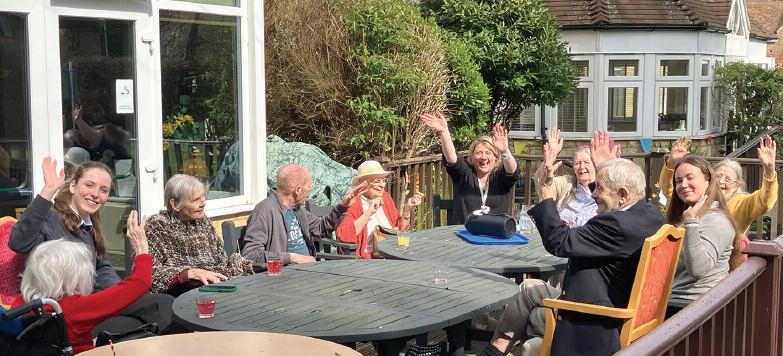
It’s such a friendly place with lovely staff and it’s such a positive experience Everyone is welcoming and it is a very friendly environment to return to WHAT ACTIVITIES DO YOU DO WITH THE RESIDENTS?
Making of Christmas decorations was lots of fun Our visits consist mainly of talking and exchanging experiences with the residents
WHAT PLANS DO YOU HAVE FOR FUTURE VISITS?
We would love to enjoy a group game of scrabble and other cognitive enhancing games WHAT INSPIRES YOU TO START A CAREER IN THE CARE SECTOR?
Dedicating a day to others is fulfilling and understanding people’s life history is enriching These are things that we enjoy when we visit Kippington and would enjoy with a career in the care sector WHAT IS YOUR FAVOURITE THING
PAGE 6 | THE CARER | MAY/JUNE 2024
in Weightmans’ employment law team (www weightmans com/people/ian-pace/)
ABOUT THE HOME? The residents! But our favourite thing is to have key connections with those that live at Kippingtons its why we return every week Paul Harvey Sixth Form Divisional Head at Sevenoaks School said “I am delighted that we have regular visits to Kippingtons Our Sixth Formers enjoy their visits; as they adapt to their new home (in a boarding house)
schoolwork they also benefit from visiting the home every Thursday to give their time empathy and humour to the residents As I have seen for myself, they do a wonderful job, joining in with activities listening and chatting building relationships from week to week I know from their conversations with me how important these visits are to them; they know they are using and developing aspects of themselves beyond their academic skills Esther Appiah Home Manager at Kippingtons commented “to have visits in care homes from the schools and the younger generation is the most valuable interaction that can happen with our residents We have been delighted to accept this weekly visit from Sevenoaks school The girls when they visit have been so very wonderful and bring with them a sense of joy to the home ”
and
Soaring Dementia Care Costs Reach £42 Billion
urgent government action new research has revealed
The Alzheimer s Society has warned the figure has already hit £42billion and is calling on the Government to make dementia a priority and urgently fix diagnosis as just 1 4% of dementia healthcare costs are spent on diagnosis and treatment with families shouldering 63% of the costs
The charity commissioned one of the largest UK studies on the economic impact of dementia The research was undertaken by CF (Carnall Farrar Ltd) using the records of 26 000 people dating back seven years It revealed that people living with dementia and their families are shouldering 63% of all dementia costs and that as the disease progresses total costs increase significantly rising from £29,000 per year for mild dementia to £81,000 for severe dementia
Dementia is the UK s biggest killer and almost one million people are living with the condition yet it is estimated that a third of people affected have not received a diagnosis Despite the evidence of benefits of an early and accurate dementia diagnosis spending on diagnosis makes up less than 1 4% of the total health care expenditure The majority of costs come from social care (40%) and unpaid care (50%) The charity says the lack of an early diagnosis means that families are left to pick up the pieces and results in catastrophic costs further down the line
The charity reports that an ageing population means the number of the UK population with dementia will increase by 43% by 2040 with the biggest increases (51%) in Northern Ireland and London (53%) and that urgent action is needed
The study revealed that in line with increasing numbers of people living with dementia, the need for unpaid care often provided
by loved ones or friends will grow significantly by 2040 with 43% more people expected to require unpaid care This is a major concern when already a third of unpaid carers spend more than 100 hours caring per week and 16% had to give up work to care
Alzheimer s Society is calling on the Government to increase access to early and accurate dementia diagnosis to help families avoid reaching costly, avoidable crisis point
Kate Lee Alzheimer’s Society CEO said “One in three people born today will develop dementia It s the biggest health and care issue of our time yet it isn t the priority it should be amongst decision-makers We wouldn t accept this for any other terminal disease, we shouldn’t accept this for dementia
One in three people with dementia do not have a diagnosis They are facing dementia alone without access the vital care support and treatments If we don’t address diagnosis we have no hope of addressing the major dementia challenges we face and reducing the cost to the health service and wider economy
Dementia s devastating impact is colossal – on the lives of those it affects on the healthcare system and on the economy
Now is the time to prioritise dementia, and that starts with getting more people diagnosed "
Professor Martin Green OBE Chief Executive of Care England added The Alzheimer s Society report shows that the cost of dementia in the UK will more than double to £90 billion by 2040 unless urgent action is taken An ageing population, with increasingly complex care needs requires a skilled and resilient adult social care workforce to keep up with rising demand Without delivering a pay rise to the sector s 1 5 million staff that simply will not materialise, leaving people without the care they need ”
Staffing in UK Care Sector at “Breaking Point”
Staffing in the care sector has reached breaking point a report revealed
The report entitled Care Trends 2024 released April 24 by Care England and software provider One Advanced found that 58% of applications received by care organisations are from unsuitable candidates and almost half (49%) no visibility to adequately staff specific times of the day/week

Following on from the 2023 report the data shows that the care sector in the UK is still facing a significant workforce shortage which is supported by figures published by Skills for Care which state 9 9% (152 000) of posts in the UK remain unfilled OneAdvanced commissioned the Care Trends Report to understand the specific challenges care and support providers are facing and how they plan to address them The survey took responses from Care home owners CEOs MDs CFOs and COOs in domiciliary care residential care supported living extra care and retirement living
The results also found that not only are care providers having issues with rostering existing staff, 31% say they have a low number of applications for open vacancies Salary also remains a concern with 40% of those working in the sector unhappy with pay while almost 35% of organisations have difficulty in providing the hours at the right time of day that employees request Alarmingly almost a quarter (23%) of those questioned admitted that payroll errors are high undermining any employee retention strategies they have in place
The survey findings further underline the problems facing these organisations with 43% saying their current IT systems are not adequate potentially putting clients at risk while more than one-third (34%) find it difficult to collate key event information such as accidents incidents and safeguarding information In fact the survey reveals that three-quarters (75%) of care provider organisations have developed their own manual processes such as spreadsheets to provide sufficient visibility of their business
On a positive note, the report shows that leaders are less stressed now than in 2023 with 39% of leaders said they feel stressed and unable to cope some or all the time a significant drop from the 62% in 2023
Martin Green Chief Executive Officer Care England commented “This report highlights some alarming disparities between the technology that care provider organisations need for greater operational efficiency, and the digital systems they currently

have in place There is massive scope for digital systems to automate processes saving many hours of repetitive manual work reducing errors driving higher levels of compliance and quality of care ”
He goes on to say; The care sector is at a crossroads, and it is imperative that the right decisions are made now to steer it along the path that leads to greater efficiency and higher productivity making the best use of the precious resources we have to ensure a professional and human-centred service that is fit for purpose now and into the future ”
This is our second annual report into the state of the UK care sector and the findings highlight a sector in continuing crisis” said Ric Thompson Senior Vice President – Health and Care at OneAdvanced
“Worryingly not much has changed since last year’s survey Staffing rostering void management, lack of adequate digital tools, and reliance on manual processes continue to impede the efforts of care provider organisations ensuring they are not operating efficiently and making an already tough job even tougher It has never been more important to tighten up processes and practices The tough economic climate does not leave much room for wastefulness and adherence to slow, manual processes With budgets becoming tighter every year providers are continually under pressure to achieve more with less ” A government spokesperson said: “Care workers make a vital contribution to society but immigration is not the long-term answer to our social care needs “120 000 dependants accompanied 100 000 care workers in the year ending Sep 2023 and these numbers are unsustainable which is why we laid measures in Parliament to cut this figure ”













THE CARER | MAY/JUNE 2024 | PAGE 7 Freephone: 0800 917 7943 www euroser vice-uk com sales@euroser vice-uk.com Visit the website at www.euroser vice-uk.com to see the full range Manufactured in the UK Euroser vice trolleys are an attractive and prac t cal alternative to clinical a u m i n u m t ro l l e ys gi ve n t h a t antibacter al spray can be used freely to sanitise them Get in touch with our friendly, experienced sales team PROVIDING PRACTICAL AND ST YLISH TROLLEYS TO SUIT YOUR NEEDS Watch your resident's eyes light up when the beautiful tea trolley arrives! Euroser vice trolleys can also be used as a vending trolley or to sell personal care products to residents How about a delicious snack/pastr y trolley or even a drinks trolley for that afternoon tipple? Your lovely trolley could do so much for you and your residents!
care
could soar to £90billion-a-year
2040
Dementia
costs
by
without

Almost 30,000 Older People Died Waiting for Social Care Report Reveals
needs Age UK s latest polling on social care also confirms how hard it can be to access care and support Respondents spoke about waiting too long for benefits assessments care assessments care packages or reviews discharge support and home adaptations – and the toll this took on them and their families in the meantime
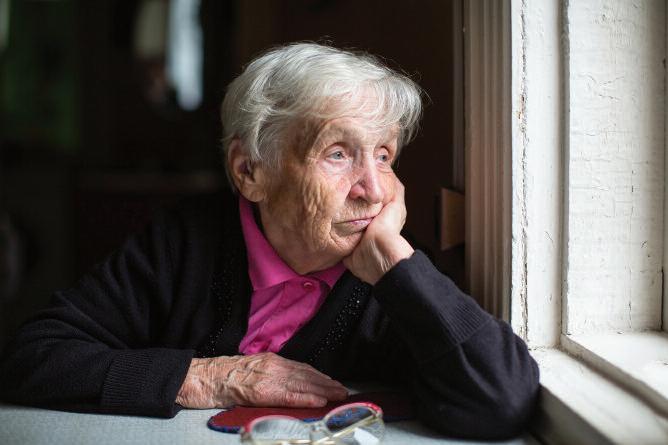
The results from this polling of people aged 50+ and Age UK’s policy analysis will be set out in a report the Charity will be publishing in the coming weeks The report s other social care findings include
- Almost a third (29% - 7 5 million) of people were concerned about their ability to access Local Authority services
- Almost a fifth (19% - 4 9 million) of people were concerned about their ability to access a home care worker or carer
- Almost a fifth (19% - 4 9 million) of people were concerned about their ability to access Dementia services such as a Memory Clinic
We conducted a survey alongside the polling as part of our research More than 17 000 people aged 50+[iii] responded and around two fifths of them told us that they were paying more to manage their own health or that of the person they are caring for All the costs associated with having declining health or mobility and needing care and support have gone up and this is clearly having a real knock-on impact on some older people’s quality of life:
We pay for 4 days at a day care centre We also pay an agency for 3 hourly sessions in a morning We have a private carer for six hours a week which has just been funded from my recent care assessment I was awarded this 15 months ago but never received it! I have to pay for extra incontinence pads as the ones from the bowel clinic don’t work for him Bedding needs to be washed everyday day and getting it dry in winter is an issue ”
Paid care has had to be cut in order to manage the costs Other cutbacks including cheaper food living in one room etc have already been implemented ”


•
•
•
•
•


of the now chronic systemic problems within social care as hard pressed local authorities try to meet the needs of a growing older population with resources that in no way match up Social care lacks sufficient funding and in many places trained staff, and unless and until we get a government that’s prepared to face up to these problems older people will continue to go to their graves without receiving the social care they are due
“In our recent polling of the 50+ population, a big majority, four in five (80% - 20 6 million) thought that government should be doing more to support the NHS and social care services We hope that the political parties contesting the General Election will listen and respond Older people who need social care have waited too long ”
In Age UK s blueprint for improving the lives of older people report for the General Election the Charity is calling on the next Government to
Stabilise the social care sector and act quickly to consult on putting funding on a sustainable footing
Within 18 months, publish a comprehensive plan to reform social care and commit to implementing it in full over five years
Fund an immediate pay rise for care professionals and within two years publish a comprehensive social care workforce plan joined up with the NHS Workforce Plan
Introduce a right to at least five days of paid Carer s Leave plus a longer period of unpaid leave
Respite care cost has increased day care service cost has increased together with cost of getting him there Podiatry and dental care costs have increased He isn't concerned because I take care of it all so I am the one worried about it “OT fitted a hoist in my bedroom Told me I have to hoist myself This is impossible so I cannot use it I cannot afford to pay for care and I have no family I have fallen twice lately trying
• Significantly increase access to respite services and practical support for carers that recognise the specific needs of older carers

THE CARER | MAY/JUNE 2024 | PAGE 9
We specialise in the sale and purchase of quality used wheelchair accessible vehicles and ambulances
They can be bought as seen or refurbished and sign-written to your own requirements
Fully serviced, new mot & warranty
Engineers inspection supplied if required
Free deliver y service available
All buses comply with new legislation
Lease hire and purchase available
Always large stock of accessible vehicles Tel: 01268 521033 Mobile: 07860 894331 Email: sales@hwpickrell co uk Gardiners Lane Nor th, Crays Hills, Billericay, Essex CM11 2XE All current stock available to view at www.hwpickrell.co.uk H.W. PIC KRELL H.W. PIC KRELL NEW & USED ACCESSIBLE TR ANSPORT AT AFFORDABLE PRICES New Age UK analysis has found that 28,655 older people aged 65 died in 2022/23 before ever receiving the social care for which they were waiting This equates to an average of 79 deaths a day, 550 a week, and 2 388 a month The Charity says that in many cases had these older people got the help they needed their final days would have been more comfortable and their families would have felt less alone and better supported These miserable numbers are broadly similar to those from the year before reflecting a social care system in which long waits have become a common experience Age UK says the fault for these delays rests squarely on the lack of public money to allow local authorities to assess older people speedily and on there often being insufficient care workers to staff the care services a growing older population urgently
•
•
•
to get from wheelchair to bed ” “We could do with help from social services but we would have to pay Can t afford to pay carer and high energy bills etc there is no help we are on our own every day ” I had carers (local council s agency) in after I broke my arm no one came to assess me No one told me what I had to pay until I got an assessment 4 months later telling me I owed nearly £2 000 Caroline Abrahams charity director at Age UK said “Good social care makes a big difference whenever it is needed but never more so than in the last weeks and months of our lives Kind and committed care professionals provide comfort and reassurance, especially important for older people living on their own and help lift the load from family members for whom this is often a time when they want to focus one hundred per cent on being a child partner or other loved one without the distraction and worry of carrying out all the care tasks themselves or of having to wade through red tape to get a formal care service up and running For these reasons it is really sad when social care arrives too late
waiting for care are also emblematic
The numbers of older people dying while
Overcoming Recruitment Challenges In Residential Care
By Chris Harber, Head of Immigration, Boyes Turner (www.boyesturner.com)

From acute staff shortages and low retention rates through to resourcing from overseas and frankly a perception problem recruitment is a daily issue that residential care employers must navigate The reasons behind the care recruitment and retention crisis are well-documented including historic and extremely low pay compounded by the cost-of-living crisis a lack of career development and training opportunities as well as poor staff morale often matched by long hours and burn-out
So where do care home employers start when it comes to redressing their recruitment strategies?
TIGHTEN UP YOUR RECRUITMENT PROCESSES
It s easy to say recruit carefully and slowly when you’re not faced with a consistent staffing challenge impacting the quality of care and service you can offer But by tackling your recruitment strategy over the longer-term you will be able to remove immediate pressures on your talent
Taking
It might seem obvious but – when recruiting overseas staff - right to work checks should be done before the individual starts work EU workers will need to show they have either pre-settled or settled status and those with a temporary right to work will need to have their visa status checked From April 2022 all visas must be checked digitally via https //www gov uk/check-job-applicant-right-to-work
If you employ any
academic year to enable compliance
With modern slavery a very real and alarming feature of care homes today ensure
mented a watertight policy for this including relevant identity checks as well as training of staff
BUILD YOUR EMPLOYER BRAND
Alongside the ethics of being a good employer
marketplace
deliver the best care for their residents and their
reputation is a challenge
In an industry where staff are often treated as disposable
vital showing people they are valued supports engagement
cascaded across all levels – from carers to catering and cleaning teams as
ership CREATE A CULTURE
Again
Ensure
And
and
An
truly want – a positive workplace where people are valued can thrive and perform to the best of their ability – safely and fairly
Belong Macclesfield Carers Recognised at Royal Garden Party

New Educational Resource Developed To Ensure The Needs Of LGBTQ+ People At End Of Life Are Met
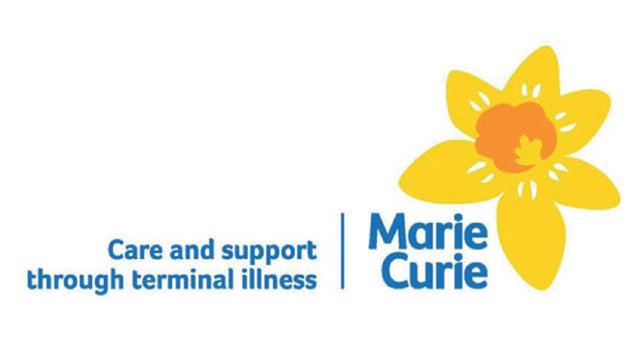
PAGE 10 | THE CARER | MAY/JUNE 2024
pipeline
view
–
– can save you
further
the longer- term
and hiring the right person for your business
from culture and personality fit perspective
time
down the line This can be as simple as ensuring you have a thorough background check system in place to guide your hiring decisions as well as increasing retention rates LOOK AT YOUR VISA COMPLIANCE CHECKS
student visas make sure they re not exceeding their maximum permitted hours
times
more than this is a breach of their visa conditions Overtime
at the place of work or sufficiently restrictive) will count towards their
their university term dates at the start of each
staff on
of 20hours / week during term
Any
sleeping nights and on-call hours (if
total weekly hours We recommend requesting a copy of
you have also imple-
commercial
too – in a competitive
best talent which means they can
families
this fuels your reputation – in
market where
there s a
advantage
care homes with strong employer brands will attract the
All
a
a culture of appreciation is also
loyalty
this needs to
management
WHERE YOUR PEOPLE THRIVE
developing
productivity and
be
much as
lead-
a powerful way to recruit people is through culture a place where people can thrive at work
sure your employees take their full holiday allowance to both protect staff health, wellbeing, and work-life balance
Make
staff get sufficient Breaks: they should comply with Working Time Regulation 1998 (WTR) require-
or if this is not possible offer sufficient compensatory rest instead Employers should check that staff who are working for other employers are still getting sufficient rest breaks between roles and not exceeding the maximum permitted amount of night working Remember, sleeping nights and on-call shifts will count as working for WTR purposes (if at the place of work or sufficiently restrictive)! In a market where training and career development are under-valued and hard to access prioritise professional development for your teams
ments
effective recruitment strategy in today s care sector requires that employers ensure they prioritise the things that potential staff
Two Macclesfield carers and their devotion to the town’s older people have been recognised by King Charles III and Queen Camilla at a Garden Party hosted at Buckingham Palace Frontline social care workers Laura Barsted and Caylie Jones of Belong Macclesfield received invitations in a mark of appreciation for their exceptional performances supporting residents at the Upton Priory dementia specialist helping them to live as independently as possible The sunny spring day saw thousands of guests from throughout the country make their way to the palace for high tea with the Royal Family –almost a year to the day of Their Majesties’ Coronation Joining the occasion were Anne Princess Royal; Prince Edward Duke of Edinburgh with Sophie Duchess of Edinburgh; and the King s first cousin once removed the Duke of Gloucester, with the Duchess of Gloucester Speaking of her experience Laura said: We saw both the King and the Queen up close and had the chance to enjoy the gardens What a fantastic day! Caylie added: “It was a great pleasure to be acknowledged for our hard work – a once in a lifetime opportunity! The pair of care team leaders were selected to attend along with invitees from other not-for-profit organisations, charities and societies, as well as people put forward by the government armed services the Church and other faiths Both Laura and Caylie have developed their careers with Belong which believes in championing the professional advancement of its colleagues in order to best support people in its care and the wider community Since joining the village six years ago, Laura has attained the City & Guilds Level 5 Diploma in Leadership and Management and Social Care Her dedication to her work and guiding colleagues’ own development has also seen her named as Mentor of the Year finalist at Belong s annual employee recognition accolades the Champion Awards Mother of six Caylie transferred her skills as a full-time mum to build a new career with Belong Despite being new to care her capabilities shone through, and she swiftly climbed the ranks in seniority whilst developing her own team to an exceptional standard Cheryl Davies, general manager at Belong Macclesfield, commented: We are very pleased to congratulate Laura and Caylie on this special recognition They are shining representatives of our village and indeed, the social care sector, and we couldn t be more thrilled that they ve had the opportunity to celebrate their success by rubbing shoulders with royalty!
A new educational resource for healthcare professionals has been launched with the objective of removing the barriers faced by LGBTQ+ people in accessing palliative and end of life care Funded by the end of life charity, Marie Curie, and developed by The Mary Stevens Hospice It s more than rainbows in reception – Working with LGBTQ+ people in palliative and end of life care aims to equip any individual working in healthcare whether it’s at a leadership level or providing hands-on care as well as those who commission services with the right information to address the needs of LGBTQ+ individuals A co-production team which consisted of LGBTQ+ people and allies many with lived experience of bias or prejudice when facing ill health, came together to help positively inform palliative and end of life care education, policy, and practice Gemma Allen No Barriers Here Co-Founder and Programme Lead at The Mary Stevens Hospice said: This educational is an essential piece of work that can help to transform the lived experience of LGBTQ+ people living with any terminal illness or at the end of life We are grateful to Marie Curie for funding the project and grateful to all of those LGBTQ+ people and allies who shared their experiences so candidly so that we could create the best possible guide The aim of this is to ensure that people receive the best palliative and end of life care and I hope it does that ” Sam Royston Executive Director of Policy and Research at the UK s leading end of life charity, Marie Curie, said: “Previous research from Marie Curie has shown that many LGBTQ+ people can avoid palliative care or hide their sexuality when accessing services, out of fear of discrimination or bias It doesn t matter who you are or how you identify everyone should have the right to good end of life care, and to have the best possible death Marie Curie is dedicated to ensuring that anyone whoever they are has the best possible end of life experience
Ban On Dependents Decimates Health & Care Visa Applications
Health and Care visa applications fell from 18 300 during August 2023 to 2 400 in March 2024 after the new legislation affecting dependents was introduced in December 2023
The visa allows medical professionals to come to or stay in the UK to do an eligible job with the NHS, an NHS supplier or in adult social care
To qualify for a Health and Care Worker visa a person must: be a qualified doctor, nurse, health professional or adult
•
If
possible to sponsor someone for a ‘Skilled Worker visa at a reduced minimum salary has been made shorter and renamed the Immigration Salary List the minimum income normally required to sponsor someone for a spouse/partner visa has risen from £18 600 to £29 000 • Social care workers arriving from overseas are no longer allowed to bring dependants (that is partners and children) on their visa which has led to a significant fall in application In response to new figures Professor Martin Green OBE Chief Executive of Care England, said:
Since the Government s announcement of their intention to ban overseas care workers from bringing dependents to the UK, the number of overseas care worker applications has decreased by more than half This directly contradicts the Government’s own estimation of impact which stated the policy would not affect applicant numbers With the policy now in place the sector has been left to pick up the pieces ”
Between April and September 2023 88 800 ‘main’ applications were made for people who want to go into a care and support role Between October 2023 and April 2024, only 40,800 applications were made, accounting for a reduction of over 50%
When the policy was first anounced in December 2023 Care England and others in the sector warned that it risked reducing overseas applicants at a time when they were a lifeline for the sector
Professor Green spoke in front of the Health and Social Care Select Committee in December 2023 noting the care sector was blindsided by this change He also pointed out the clear disparity in the way healthcare and social care are treated with no such legislation chances being made for international recruits for the NHS
Professor Green continues: While we all want to see a sector that can be sustained by domestic labour there is nothing to suggest the Government s workforce reforms have made the sector a sufficiently attractive destination for work such that it can cope with this drop in international applicants These figures only serve to renew the need for meaningful workforce reforms that make the sector an attractive destination for domestic staff if we are going to shut off the route for overseas recruitment ”
Bedhampton Court Care Home Celebrates Team Marriage
Bedhampton Court care home in Havant Hampshire is delighted to announce the return of nurses Christine and Alvin who recently celebrated their marriage in their hometown of Kenya The couple, who are integral members of the nursing team, embarked on a month-long journey to Kenya to celebrate with their families and community after tying the knot on March 17th
Christine and Alvin joined the Bedhampton family in October 2022 as part of the Overseas Nurses Recruitment Program organised by Healthcare Homes
Upon their return the staff at Bedhampton Court organised a celebration to honour the newlyweds Colleagues gathered to present them with gifts while a cake gilded the centre of the gathering As the sounds of Going to the Chapel" and "Congratulations" filled the air Christine and Alvin were surrounded by the love and well-wishes of their Bedhampton family

Dementia Prevention Through Lifestyle Medicine
Dr Liana Borza

patients
To talk to Liana and Prevention Journeys about their services see the advert on this page or visit www preventionjourneys com
Care Home MD Celebrates Anniversar y
Staff and residents at Barchester s Moors Manor Care
Home in St Leonards have congratulated their wonderful
Managing Director, Natasha Lazovic on her 10 year anniversary with Barchester Healthcare Natasha had a huge surprise when Barchester’s CEO Dr Pete Calveley presented her with her 10 years service award and a beautiful bouquet of flowers Managing Director of the South division, Natasha joined Barchester in May 2014 as Regional Director leading 10 homes which then doubled to 20 as Senior Regional Director, and now as MD she is in charge of more than 80 care homes across the South of England
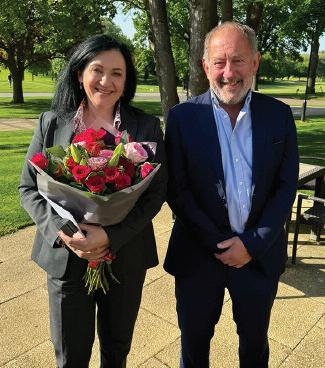
Natasha was already a trained nurse when she came to the UK in 1994 from Serbia Extremely car-
ing by nature Natasha s achievements go above and beyond with an amazing career to date She leads her teams with amazing energy and a can-do attitude, she has also in recent months won the Businesswoman of the Year category in the Women Achieving Greatness in Social Care Awards 2023 There really is no stopping her!
Commenting on her 10 years with the business Natasha said: I really can’t believe it is 10 years already! It seems to have gone by so fast! I can honestly say I have loved minute, it is such a privilege to work with our fantastic teams supporting our wonderful residents It is a pleasure to come to work every day I consider myself extremely lucky to have a job I enjoy so much
In a touching display of support, some of the residents signed a card expressing their congratulations, further highlighting the close-knit community fostered within the home, and the strong relationships that bloom there
Looking ahead, Bedhampton Court is excited to host a special activity session for the residents where Christine and Alvin will share their wedding photos and recount the cherished moments from their trip to Kenya We are thrilled to welcome Christine and Alvin back to Bedhampton Court after their beautiful wedding celebration said Wendy Bennett Activities CoOrdinator at Bedhampton Court We are all looking forward to seeing and hearing about the memories they create together
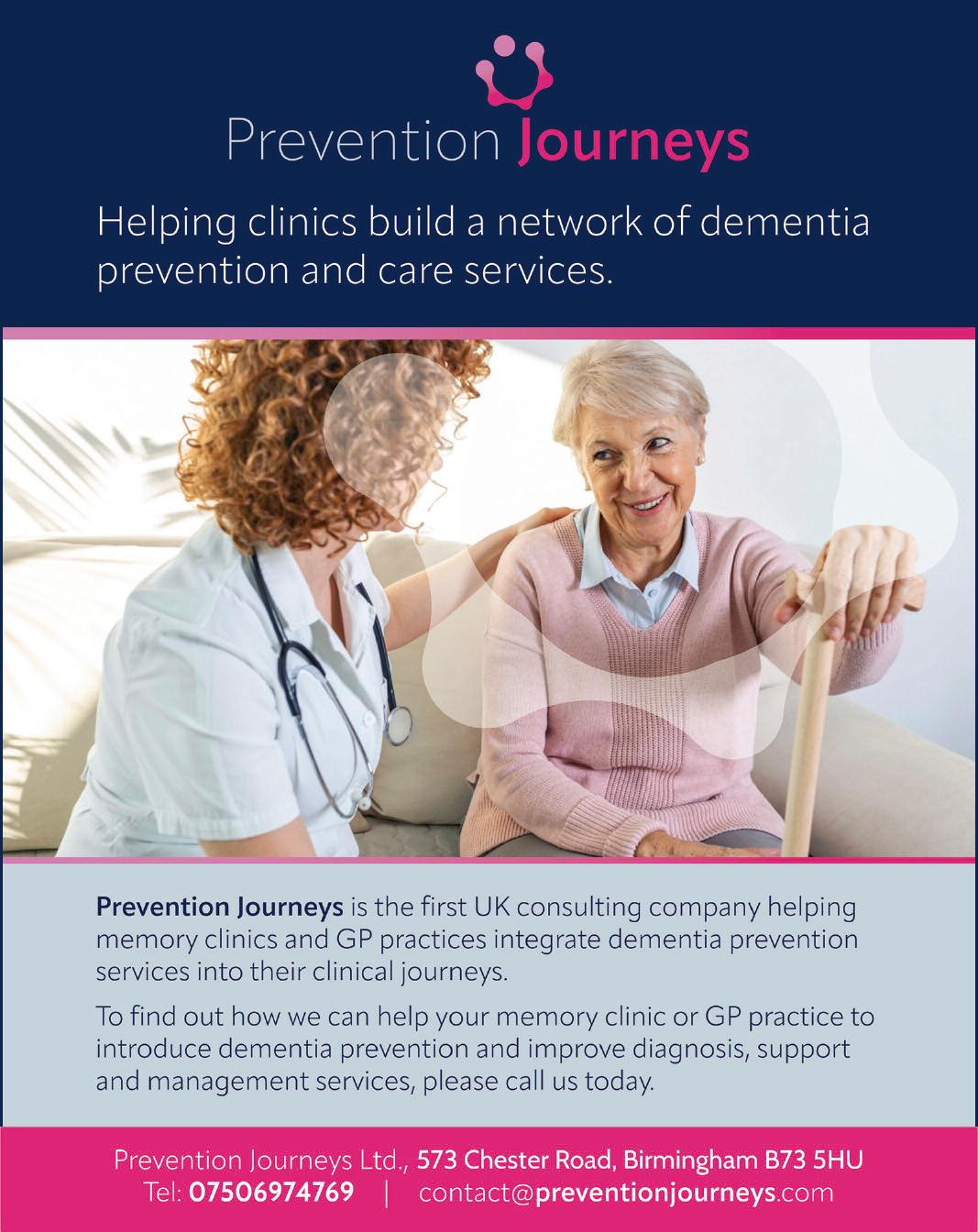
THE CARER | MAY/JUNE 2024 | PAGE 11
social care professional work in an eligible health or social care job
work for a UK
role
UK be paid a minimum salary –
work
employer that’s been approved by the Home Office have a certificate of sponsorship from your employer with information about the
you ve been offered in the
how much depends on the type of
you do
changes released on 19 February 2024 and 14 March 2024 the baseline general salary to be sponsored for a Skilled Worker visa has increased from £26 200 to £38,700, while the ‘going rate’ minimum salary specific to each job has also gone up significantly a list of jobs for which it is
a care worker or senior care worker working in England your employer must also be registered with the Care Quality Commission However on 4 December 2023 the Home Office announced changes to visa rules intended to reduce immigration and published further details on 21 December These changes have now come into force following 2 sets of Immigration Rules
- Founder of Prevention Journeys Ltd will be presenting a talk entitled Dementia Prevention through Lifestyle Medicine at The Alzheimer s & Dementia Show, 15:25 - 15:45, 14 Jun 2024 at ExCeL London This talk is about dementia risk factors and how to reduce them through multidomain lifestyle interventions Liana has extensive experience as Consultant in Old Age Psychiatry and Clinical Lead in NHS England and private UK memory clinic settings She co-authored a book on community mental health in a joint venture with the WHO Collaborating Centre for Research and Training in Mental Health Liana
care
s experience in dementia care and prevention, and her business knowledge gained through her MBA makes her the expert on advising how to introduce and extend services in memory clinics and the
environment Prevention Journeys offer a unique service to help introduce dementia prevention and improve and extend existing dementia care packages for
What are the Issues Being Raised About CQC Inspections?

As care providers express concerns about the stress caused by Care Quality Commission (CQC) inspections, Carl MaySmith, a Barrister specialising in health and care at UK and Ireland law firm Browne Jacobson (www brownejacobson com), examines the issues and offers advice for operators
The National Care Association (NCA) has reported a considerable rise in calls received following CQC inspections with conversations detailing negative experiences
In a letter to the CQC s CEO Ian Trenholm it said there were deep concerns’ from members about the stress caused by inspector visits on care staff amid a recruitment and retention crisis, while it accused the regulator of presiding over a culture that is hostile at the ground level
Issues raised by the NCA reflects what we have heard from our care home clients which cite the current inspection regime and culture as one of their primary challenges It mirrors recent more high-profile criticisms of the Ofsted inspection regime in education
The data suggests ratings have been adversely affected since the regulator has greatly reduced routine inspections and this has continued under its new inspection framework
The data suggests this is affecting ratings In the month to 22 April 2024 the proportion of care homes receiving ‘requires improvement ratings was 41% while those rated ‘inadequate’ was 24% Traditionally we would expect these to be about 18% and 1% respectively
In the NCA s letter it references comments from a care home manager about the gruelling nature of a recent inspection and the need for the utmost preparation
Our advice has always been to take a proactive approach to managing inspections and experiences of those on the ground suggests this has never been more critical WHAT IS NEW ABOUT THE CQC’S INSPECTIONS?
The CQC’s refreshed assessment framework was introduced this year as part of its new strategy launched in 2021
One of the key changes in the strategy is the move away from reliance only on set-piece inspections to regulate and rate providers
Inspections now generally take place in response to concerns with a broader set of data collected from services on a more regular basis allowing ratings to change more responsively
The rationale behind this it said at the time of the strategy launch was to reduce inconsistencies that can arise from over-reliance on the view of a lead inspector on a single day
In reality routine inspections have greatly reduced Where inspections are carried out they are generally to address concerns and providers should expect these will be challenging FIRST IMPRESSIONS COUNT IN A PROACTIVE APPROACH TO INSPECTIONS
It is often said that a CQC inspector s first impression can set the stage for a whole inspection process
This first impression may well have been formed before a visit commences where potential risks have already been identified
Our advice to providers is to ensure they are proactive in mitigating potential CQC concerns when they arise, to avoid being on the back foot from the moment an inspector walks through the door
With this in mind it’s essential to bring frontline staff who will interact with the CQC up to date with the new assessment framework which has replaced hundreds of lines of enquiry with fewer than 40 areas across the five domains: safe, effective, caring, responsive, and well-led
It s also important that staff understand inspectors priorities which will likely focus on services where there are concerns and are of current CQC focus, recently including restraint, fire safety and duty of candour
Many providers, particularly larger organisations, will carry out self-assessments and these should also be reviewed to mirror the new framework
PREPARATION IS EVERYTHING
As part of the increased focus on services with concerns greater emphasis has been placed on observations of care, such as medicine rounds
Providers are now expected to share information such as policies procedures and safety records in advance of, rather than during, visits
Losing the opportunity to explain any issues to an inspector in person means managers must be prepared to do this on a remote basis
Frequent reviews of paperwork will enable them to identify any potential red flags on the horizon so they can provide context and mitigation when requested to provide information
ENGAGEMENT WITH FAMILIES AND STAFF
POSITIVE
Another key priority for the CQC is to gain a greater understanding of people’s experiences of care
This has not yet been matched with a methodical approach to collecting feedback with inspectors increasingly contacting service users, their family members, staff and even commissioners before and after inspections take place to gather this intelligence
They are asking specific questions about individual concerns raised during visits and the result is one negative account can have a disproportionate effect on inspection outcomes
It s therefore vital that providers open positive communication lines via regular engagement with these stakeholders
Collecting feedback is good practice anyway as it helps with internal quality assurance but in the context of inspections, data can provide evidence to challenge conclusions based on individual complaints It enables providers to demonstrate they are listening and addressing issues
If an employee feels an inspector’s question about staff capacity is their first opportunity to have a voice they may vent on this and other issues But if the provider has adopted a proactive approach to gathering feedback and taking action, they are more likely to support their employer
STAY IN THE LOOP
Along with keeping on top of everything internally, providers should keep abreast of what’s happening in the external environment via a proactive relationship-building strategy
With the CQC now assessing local authorities and soon integrated care systems commissioners are also under the inspection microscope Providers should be aware of conversations that could be taking place between commissioners and inspectors to understand how this might affect them
Being proactive in communications with local inspectors is integral to avoid any reactive inspections that could be prompted by concerns raised by various parties
More broadly as the sector gets to grips with the CQC’s new approach to inspections much can be learned from peers
Keeping in touch with other providers whether directly or via forums such as Browne Jacobson’s Health and Care Connect helps with understanding best practice and shared challenges to avoid making similar mistakes
Family Care Business Celebrates Prestigious Award Win

Rangers FC Help Make Care Home Resident’s
Dreams Come True With Invite To

PAGE 12 | THE CARER | MAY/JUNE 2024
Horizon Care a Yorkshire-based family owned and run care provider proudly announces its recent Family Business award win at the Federation of Small Business Awards The award recognises Horizon’s outstanding contributions to the social care sector and embodies the values of trust reliability and empathy, which have been integral to its success and reputation in the care sector The awards are a renowned platform that honours the achievements and excellence of small and medium-sized enterprises across various industries This year s regional event showcased the resilience innovation and dedication of businesses like Horizon Care which have made significant impacts on their communities and industries All regional winners will be grouped to a final national award ceremony on 9 May in Blackpool, Horizon Care wish all the regional winners the best of luck! Andrew Paul, Managing Director of Horizon Care, said, This recognition is a tribute to the hard work dedication and family values that have guided Horizon Care throughout the years We are immensely grateful to our team members clients and community for their unwavering support which has been instrumental in our journey
A long-standing dream of care home resident Alec Smith finally came true after he was sent a signed photograph and invited by Rangers Football Club to visit Ibrox stadium When Alec told HC-One Scotland s The Beeches Care Home wellbeing team about his love for Rangers Football Club, they wanted to do something special for him This month Alec was thrilled after receiving a signed photo and invitation to visit the Ibrox Football Stadium in Glasgow on Friday, June 7 Alec who turns 72-years-old in June has lived at the nursing and nursing dementia home in Dunfermline since June 2022 Alec and his wife Mary have been together for 50-years and married for 21-years They have three children – Alec Scott and Laura Alec has loved Rangers Football Club all of his life and he knew Mary’s uncle George Niven who played for Rangers as a goalkeeper from 1951 to 1962 Last month The Beeches Care Home held their regular ‘Goldfish’ activity where residents are asked to make three wishes Colleagues subsequently worked together to help grant Alec’s wish for a signed photo from Rangers Football Club Kerry Knox Wellbeing Coordinator wrote to Rangers Football Club to request if they could send him a signed photo or a small piece of memorabilia To everyone s surprise not only did he receive the signed photo but Alec and his family have been invited along for a tour of the stadium Kerry Knox Wellbeing Coordinator at The Beeches Care Home commented: “Alec has dementia but recognises his favourite team and loves to watch them on TV and we are so pleased we could help him make this dream come true!” Angela Parnell Home Manager at The Beeches Care Home added: “Our Goldfish’ initiative has been so successful in making our residents wishes come true I am so thrilled that Alec can visit his favourite team alongside his family ”
Visit Ibrox

A Good Idea, Shared…

Every so often you hit on an idea that flies beyond your wildest expectations, and we at Sambrook House believe that a good idea should be shared which is why we are delighted to share the story with the readers of THE CARER
We all know that most people who visit or work in a Care Home just see a collection of older people living their lives in hopefully a tranquil and caring community What they don’t see is the lives these people have lived and what they have achieved or contributed We at Sambrook House set out to put this right with an EXHIBITION of our resident s life works and achievements and we were amazed at the talent and experiences we uncovered!
Preparation was key and we spoke to every resident and every family to see if we could showcase an achievement hobby award career highlight or similar We then wrote and collated their stories and gathered the many precious items to create their exhibit, borrowing display stands from the village hall, and begging the artistic talents of the president and chair of our local WI who created the wonderful display Every person’s exhibit was accompanied by an A4 page of explanation and these were all collated into a free A5 catalogue of the exhibition We left out a visitor s book and the comments were truly heartwarming
We uncovered some extraordinary stories: Edna our 102-year-old was the subject of a chapter in a book [‘All the things you are by Kenneth Ballantyne] detailing her wartime exploits as a volunteer fireman in Peterborough We have Di who had been a ballet dancer in her youth, and our two twin ladies Lil and Mary who shared their wedding day! We found Lindsey had been a serial ‘best garden in Cheswardine’ winner and Mary
was (and is) the most amazing knitter who was also awarded the Imperial Service Medal for her services to the Central Ordinance Depot We have 3 pianists and a lady called June that has created the most exquisite embroidery (showcasing the wonderful banner that she made for St Nicholas Church in Newport) We displayed campaign medals and coin collections paintings pottery, and embroidered table cloths, alongside a section of the care home s current activities and creations which are fantastic!

We launched our exhibition on Good Friday with cream teas and Prosecco and it remained open until the following Tuesday We had around 100 visitors from families and friends to local Villagers and WI members many of whom lingered for around and hour to read all the stories
This wonderful exhibition put all our residents absolutely centre stage and you cannot put a price on the pride they felt, the conversations that are still going on, the memories that were triggered the family photo opportunities and the fact that families learnt a bit about each other It has really brought the whole home community closer together as well as creating a lot of village interest
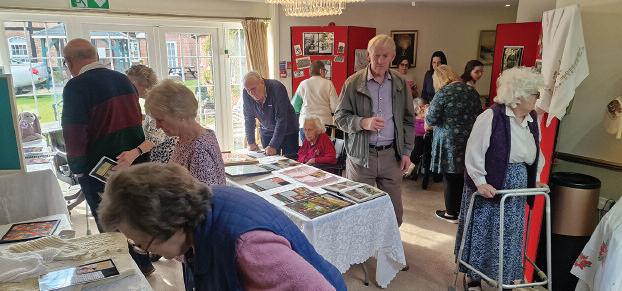
Neil Robson company Director said I can sum this up as being a lot of hard work to stage (timewise not cost) but it has been one of the most rewarding activities we have done in our 19 years of ownership It is hard to put into words the level of engagement and excitement the exhibition created and it has given residents staff and families some fascinating insights and conversation starters We wanted to share our experience because, just occasionally an idea turns out to be so much better and more rewarding the we could have ever imagined!
Report Reveals Emotional Toll On Care
Home Staff During COVID-19 Pandemic
The challenges faced by care home staff during the COVID-19 pandemic and the strategies they used to cope are the topic of research led by Lancaster University
Care homes experienced not only a devastating toll on residents but also emotional pressures on staff caring for them
The study was led by Professor Nancy Preston of the International Observatory on End of Life Care with colleagues from Newcastle and Sheffield
The researchers explored the impact of the early waves of the pandemic between Autumn 2020 and Summer 2021 on the emotional well-being of care home staff
Interviews were conducted with 16 UK care home staff and 10 health service staff working with them exploring their experiences and responses to the crisis
Dr Zoë Cockshott one of the study authors from Lancaster University said: Care home staff described the early months of the pandemic as a very difficult time but we were struck by how many of them talked about a strong sense of duty and responsibility for their residents and the need to just get on with it despite the challenges and risks to their own health
The findings suggest four key areas that summarise the impact of and response to the pandemic for care home staff:
• Anxiety and Distress: Staff faced fear and uncertainty witnessed the illness and loss of residents and had
concerns about their own health and recognition of their work
Overwhelming Workload: Infection control measures caring for sick residents and reduced external healthcare support contributed to an increased workload for care home staff
Pulling Through: Staff managed the emotional impact of the pandemic through peer support problemsolving strategies and a sense of responsibility towards their work
• Resilience in a Time of Crisis: Staff demonstrated resilience, often increasing their efforts to meet the demands of the pandemic despite the challenges
Care Home staff found it particularly difficult when they had a COVID-19 outbreak in their care home with one carer telling researchers
I mean it was awful because we knew it was going to eventually happen and we re like It s coming And unfortunately, it was horrific for us because obviously a lot of our people are very vulnerable we unfortunately lost I think it was 11 residents we lost and one member of staff to COVID over a space of about three weeks
The study’s conclusions highlight the emotional impact of the pandemic on care home staff and highlight the need for preparedness for future crises including pandemics By addressing the needs of frontline workers policymakers can better prepare and improve support systems for care homes
Antipsychotics For Dementia Linked To More Harms Than Previously Acknowledged
A large UK-based study published in the BMJ has suggested that antipsychotic drugs carry greater risks of serious health conditions than previously thought
These drugs are sometimes prescribed to manage severe dementia symptoms including agitation hallucinations and delusions However previous evidence of harms has led to efforts to restrict their use
Despite these warnings their use increased during the COVID-19 pandemic
The new research is a collaboration between the Universities of Manchester Nottingham Edinburgh and Dundee Researchers examined health records of over 150,000 people in England over 50 years old with a dementia diagnosis
Prof Darren Ashcroft, the study’s senior author, from the University of Manchester, said “In recent years, it has become clear that more people with dementia are being prescribed antipsychotic drugs despite existing regulatory safety warnings
“It is important that any potential benefits of antipsychotic treatment are weighed carefully against the risk of serious harm and treatment plans need to be regularly reviewed in all health and care settings
Commenting on the findings, Dr Sheona Scales, Director of Research at Alzheimer’s Research UK, said the study reinforced existing evidence These concerns have been known for some time Alzheimer s Research UK-funded researchers revealed dangers of antipsychotics in 2008, which raised concerns about their use and prompted government intervention to reduce their prescription
The harms previously associated with antipsychotics include an increased risk of conditions such as
pneumonia and stroke when given to people with dementia But there has been less evidence around other conditions such as heart failure and kidney injury
The study found that over a ten-year period people with dementia who had been newly prescribed an antipsychotic drug were more likely to have stroke blood clots heart attack heart failure fracture pneumonia and kidney injury compared to people who were never prescribed antipsychotics
However these harms need to be balanced against the fact that severe dementia symptoms such agitation and confusion can pose significant challenges for people living with dementia and those that care for them
Treatments that can help manage these symptoms are essential for a better quality of life but options are currently limited and in certain circumstances antipsychotics can be used to treat severe symptoms said Scales
“These new findings suggest that these risks may be more severe than previously understood which is particularly concerning given the rise in their use during the pandemic ”
“With nearly one million people affected by dementia in the UK there is an urgent need for research to develop safer and more effective treatments This means medicines that can alleviate these symptoms and also address the underlying disease processes that cause dementia There’s been welcome progress recently, but so much work remains to be done "
PAGE 14 | THE CARER | MAY/JUNE 2024
www.facebook.com/SambrookCareLtd)
Article supplied by Sambrook House (www.sambrookhouse.co.uk or

What Providers Need to Know About the Duty of Candour
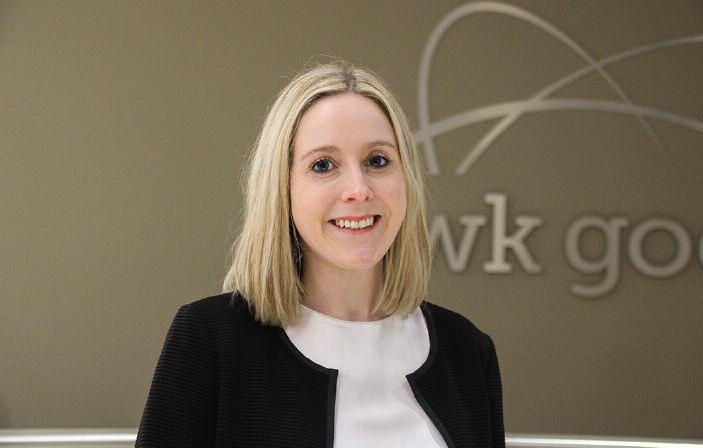
The Department of Health and Social Care (“DHSC”) is currently reviewing the statutory duty of candour and how it applies to health and social care providers in England As part of the review, the DHSC has called for evidence in relation to how the duty of candour is working in practice The purpose of the review is to understand to what extent the duty of candour is honoured monitored and enforced What is the Duty of Candour?
The purpose of the duty of candour is to ensure that care providers are open and transparent with service users when something goes wrong There are two types of duty of candour - the professional duty and the statutory duty The professional duty is overseen by regulators of professionals such as the NMC and the statutory duty is regulated by the CQC under Regulation 20 of the Health and Social Care Act 2008 (Regulated Activities) Regulations 2014
Under Regulation 20 there are certain situations called notifiable safety incidents which need to be reported to the CQC in order to comply with the statutory duty of candour To determine whether something is a notifiable safety incident a provider should ask itself the following three questions:
1) Did something unintended or unexpected happen to a service user during care or treatment?
2) Did it occur during the provision of a regulated activity i e during the provision of personal care?
3) In the reasonable opinion of a healthcare professional has it already or might it, result in death, or severe or moderate harm to the person receiving care?
You must answer yes’ to all three of the above questions in order for it to be a notifiable safety incident If you answer no to any of those questions it is not notifiable
THE
IMPORTANCE OF ROBUST PROCESSES
It is important that all providers have robust processes in place to manage the duty of candour requirement and a key part of this is ensuring that there is a culture of openness and transparency within a service Having an open culture means that staff are more likely to raise issues and concerns rather than trying to hide things if something goes wrong
The CQC expects providers to have a strong safety and learning culture and is assessing providers under its Quality Statements to see how well they promote 'learning for safety Providers should be able to explain how they support their staff to be open and transparent when something goes wrong and how this sits within a broader culture of safety
To meet the duty of candour requirement, if there is a notifiable safety incident the registered person (in the form of the registered
By Anna Fee, Senior Associate Solicitor, RWK Goodman
manager or provider) must inform the person concerned or their representative about the incident and provide an account about what is known about the incident at that time and set out what the next steps are in terms of further enquiries or investigations It is important to apologise for the harm caused as well as being open and transparent about what has happened An apology does not in and of itself amount to an admission of negligence or breach of a statutory duty It acknowledges that something could have gone better in a particular situation THE IMPLICATIONS OF GETTING IT WRONG
The ultimate responsibility for ensuring that the duty of candour is complied with rests with the registered person The CQC does not investigate every notifiable safety incident, it will only investigate an incident where it has concerns However where the CQC believes that Regulation 20 has not been complied with it can use its enforcement powers which includes issuing warning notices imposition of conditions on registration and criminal prosecution
CONCLUSION
Given that the DHSC is reviewing how the statutory duty of candour is working in practice it is likely that this will become a CQC ‘hot topic’ Therefore, it would be sensible for all providers to review their duty of candour systems and processes within their service to ensure that they are robust and effective
The DHSC s call for evidence on the duty of candour closes on 29 May 2024 Anyone wishing to contribute can complete the DHSC’s online survey which can be found on its website
If your service is experiencing any issues with the CQC it can be helpful to seek specialist legal advice Our lawyers at RWK
Local School and Teachers Create a Link with Elm Bank Care Home
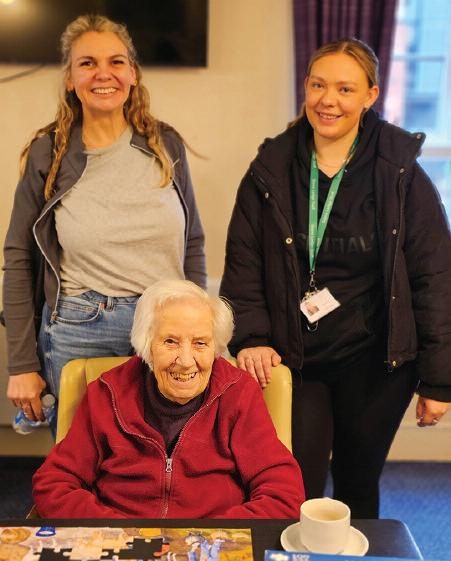
5 Data Breaches In 2023 Were In The
It
PAGE 16 | THE CARER | MAY/JUNE 2024
Goodman can assist
further information
visit
with this For
call: 02030 069727 or
https://rwkgoodman com/sector/health-social-care
New findings by data breach experts reveal ongoing compliance challenges within the health sector highlighting the continual need for businesses to train their staff on basic data handling practices Since 2019, the ICO has been tracking reported data breaches Taking a deep dive into the data leading UK data breach solicitors Hayes Connor highlights which sectors experienced the most data breaches last year and beyond
health sector are frequent violators coming in 1st place for data breaches in 2023 OVERALL, THE TOP 10 OFFENDERS,
THE PERCENTAGE OF TOTAL INCIDENTS EACH SECTOR WAS RESPONSIBLE FOR IN THE LAST YEAR, WERE AS FOLLOWS: • Health - 17 42% Education and childcare - 14 44% Finance insurance and credit - 10 93% Local government - 9 90% Retail and manufacture - 9 76% • Legal - 7 31% Charitable and voluntary - 6 63% • Land or property services - 4 31% Transport and leisure - 3 58% Online Technology and Telecoms - 2 92% Hayes Connor’s study found that the health sector made up around 1 in 5 reported data breach cases last year On average across the 5-year span the health sector remains at the top of the list year on year at almost 1 in 5 cases from 2019 to 2023
childcare sector came 2nd
last year,
7 cases The finance insurance
credit sector
making up over 1 in 10 cases
in 2023, basic personal identifiable data was the most common type of data being breached within health sector data breaches In fact this made up 73 21% of data breaches The second highest form of data breaches involved health data at 61 66% Concerningly almost 1 in 5 of total data breaches in 2023 involved children
data This is particularly sensitive due to the fact children
of the safeguards
risks regarding per-
data processing In the health sector last year, 142 cases involved children’s data, making up 7 36% of health incident
showed the different incident types behind the data breaches The number one reason behind data breaches within the health sector was through unauthorised access, which made up 18 70% of the health data breach cases in 2023 Data
the wrong recipent showed up as the second most common incident type for this sector at 16 22% This demonstrates how human error plays a huge role in many data breach cases in the UK, and thus the importance of internal business training
The
AND
The education and
place
making up almost 1 in
and
came 3rd,
Hayes Connor also analysed the types of data that had been breached within each sector The research found that,
s
are less aware
consequences and
sonal
The findings also
emailed to
is important to bear in mind that part of the 2018 GDPR regulations require businesses to report a data breach within 72 hours Failure to notify a breach when required to do so can result in a significant fine of up to £18m or 4 per cent of your global turnover Concerningly in the health sector it s taking over 72 hours to report 43 88% of their data breaches This is leaving the sector vulnerable to large fines Richard Forest Legal Director at Hayes Connor says Another year another representation of how many organisations across all sectors are still failing to implement effective security protocols, leaving personal data vulnerable to breaches which have significant legal and financial repercussions for the entities involved “Despite regulatory advancements, and the introduction of stricter compliance mechanisms the rate of data breaches remains a serious concern The recent ICO trends portray a continuous need for vigilance and updated compliance strategies from businesses especially in how they manage and protect personal data against emerging cyber threats and human error 1 In
The residents and staff at Elm Bank care home in Kettering had the pleasure of local pupils and teachers coming to engage in morning activities at the home The staff and pupils of Stone Lodge School based in Kettering were delighted in coming to the home to engage in activities with the residents The residents at Elm Bank care home enjoyed the company of both the teachers and young pupils during the morning Jigsaw and Games Club The residents have an array of activities running throughout the week and having young pupils in is always greatly welcomed The teachers and pupils spent time in learning about the home and its residents understanding what activities and events are run throughout the weeks and months Going forward the school and pupils will build a great link that benefits all with residents already planning a trip to the school classrooms Marvellous Bindura General Manager said It is lovely to see our residents enjoying time with younger people, the enrichment it creates in their lives is obvious It is great to have links with local schools and for them to come in and spend time with our residents is simply wonderful Not only is it beneficial for the residents it is also beneficial for the pupils to learn new skills and being with the older generation the pupils are able to learn many things about the past it really is so nice to see the pupils and the smiles that they have and the residents on their faces it just brings joy to our hearts
Health Sector, New Data Reveals
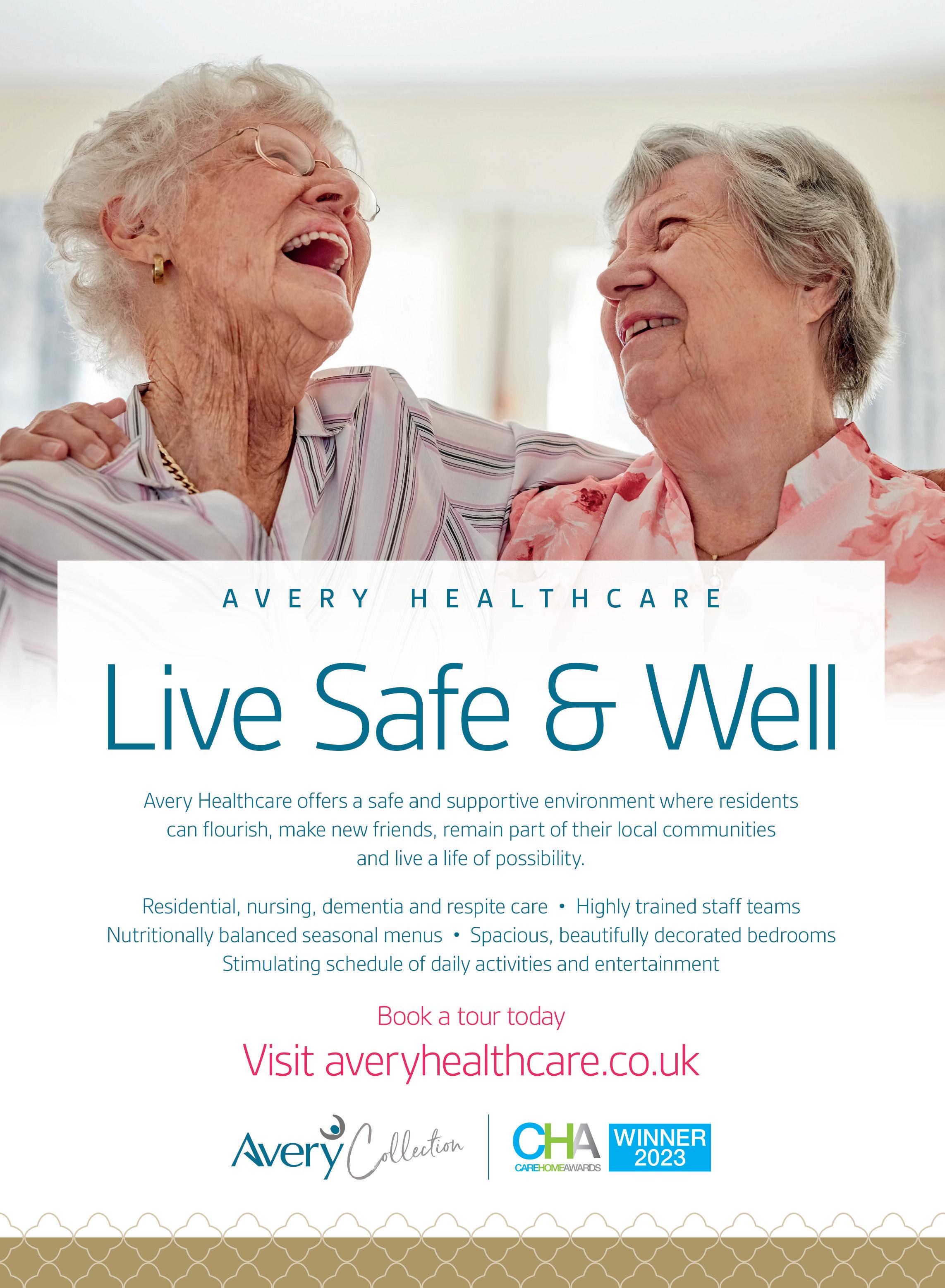
Breaking the Stigmas Surrounding Care Home Environments
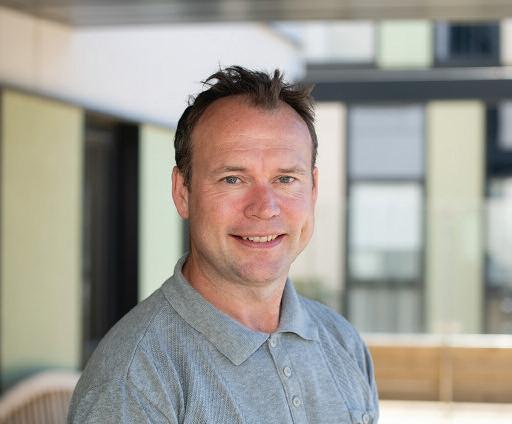
Families placing a loved one in a care home often have many fears and trepidations about doing so - a recent study by the UK s leading provider of dementia care Vida Healthcare has revealed that a fifth (20 percent) of adults surveyed said their perceptions of care homes were negative
This is due to the many myths and preconceptions about care homes that position them as unwelcoming and isolating environments
Vida Healthcare is dedicated to dispelling the stigmas surrounding care homes in the UK The team is passionate about challenging and changing perceptions of care homes and wants to highlight how engaging with a care home can be hugely beneficial for both potential residents and their loved ones, particularly if the person requiring the support of a care home is living with dementia
Here James Rycroft, Managing Director at Vida Healthcare discusses and dispels five of the most common misconceptions surrounding care homes
CARE HOMES ARE FOR THOSE WITH MEDICAL NEEDS OR NEARING END-OF-LIFE?
Care homes are often associated with people who have severe illnesses or nearing the end of their lives
This is partly due to the fact that many people don t know what different levels of care are available in care homes or what the variations of care involve
A recent survey conducted by Vida revealed that almost a quarter (23 percent) of UK adults aren’t confident that they know what residential care is 24 percent aren t sure what nursing care is more than a quarter (28 percent) aren t confident they know what dementia care is, while almost a third (31 percent) don t know what social care or respite care involve
This lack of understanding around the different levels of care available has led to a sector-wide misconception that care homes solely cater for people who have significant care needs but this isn t the case
While many care homes do cater for that level of need and assistance, this is not the only type of care they provide
Residential care for example refers to the general care provided in a non-nurse-led environment where residents do not require continuous clinical oversight but will still receive support from primary services when needed for both physical mental and emotional well-being Nursing care meanwhile becomes essential when an individual’s needs require continuous clinical monitoring
Many residents chose to move into care homes whilst they are still independent and able choosing to move in for peace of mind, safety, extra help and company Whilst living in a care home, residents will be supported to help maintain their independence for as long as possible CARE HOMES ARE CLINICAL AND UNWELCOMING?
Historically care homes have been perceived to be cold clinical and depressing places that have a particular odour and aren’t particularly inviting Nowadays, this is far from the case!
Many care homes are warm and attractive environments that provide residents with a sense of safety and calm Care teams encourage residents to bring their own home comforts family photos and familiar items to create a more homely atmosphere
At Vida Healthcare all homes are purpose-built and feature homely interiors with facilities that encourage community involvement and interaction amongst residents
Everyone is invited to personalise their rooms to make them more familiar spaces while the communal areas feature decor designed to create a sense of familiarity for residents, encouraging them to engage and
share stories with one another
Some of our communal areas have been designed to support social interactions and ensure Vida s residents have a high quality of life At Vida Court for example we have a cinema florist coffee shop sweet shop, landscaped gardens and sensory destinations amongst other things
What s more the Vida team supports its residents in remaining involved in community life including taking trips to local parks farms gardens cafes libraries local events and groups and places of worship
CARE HOME FOOD IS NOT TASTY OR NUTRITIOUS?
While there may have been instances in the past where care home food was not up to standard care homes today provide highly-tailored seasonal menus featuring nutritious food for residents to enjoy in order to support their health and wellbeing
At Vida Healthcare the menus are nutritious and balanced designed with residents' nutritional needs and special dietary requirements in mind Inspired by different countries and cultures the majority of the food served is made fresh on site
It s important to remember that no two residents are the same and the head chefs at Vida work closely with team leaders and care staff to tailor menus to every resident s individual needs
RESIDENTS JUST SIT AROUND ALL DAY IN A CIRCLE?
It is a common misconception that residents don’t do anything in care homes and, instead either sit around in a circle and watch TV or simply sleep the day away
Of course if a resident wants to watch TV then they are more than welcome to do so however a varied programme of activities is an essential part of a care home s life Tea parties, games, exercise classes and trips out are just a few activities that residents can take part in
Maintaining a normal daily routine for residents is of paramount importance - simple activities like getting dressed in the morning, washing, going for a walk setting the table for dinner and getting ready for bed all form patterns and routines within daily life that will help create a sense of familiarity for residents
We know that access to the outside world is incredibly important and living in a care home shouldn t compromise this Vida’s three care homes feature sensory courtyards and gardens which are both calm and peaceful
Designed by Dr Garuth Chalfont a leading expert in the creation of care environments for older people living with dementia, Vida’s gardens connect the internal to the external, encouraging residents to maintain the health and well being created by spending time outdoors
PEOPLE GET MISTREATED IN CARE HOMES?
While there have been well documented instances of unacceptable levels of care within care homes these are very much the minority and there are also many positive stories and experiences of those residing in care homes that aren t as likely to be covered by the media
The Care Quality Commission (CQC) has a thorough and robust regulation process and monitors all aspects of care delivery closely, including identifying safeguarding concerns, effective recruitment and training to ensure a strong culture of respect for residents is at the heart of good care homes
Vida s commitment to investing in creating better care for people living with dementia has led to all three of the company’s care homes being rated as Outstanding by the CQC, becoming the only Outstanding rated specialist dementia care provider in the District of Harrogate
Every person who is residing at Vida Healthcare will receive high quality dementia care Individuals living with dementia are going through a very personal journey, each of which is unique and different from the next while their family and friends are also navigating their own passage through their loved ones dementia diagnosis The Vida team is committed to delivering the highest quality person-centred care while also offering wider support to family members
For more information on the leading care available to people living with dementia at Vida Healthcare please visit www vidahealthcare co uk
enjoy a Garden Party that was held in the home s grounds Hethersett Hall hosted a variety of activities throughout the day including live entertainment cream tea and prosecco which were enjoyed by everyone who came to the event
Staff at Hethersett Hall made everyone feel welcome and were delighted to see different generations having fun
weather held out until we finished Staff did a great job not just on the day but organising the event and getting everyone together
Elena General Manager at the home said: “Staff at Hethersett Hall are dedicated to making sure that the home is a hub of the local community and this event,
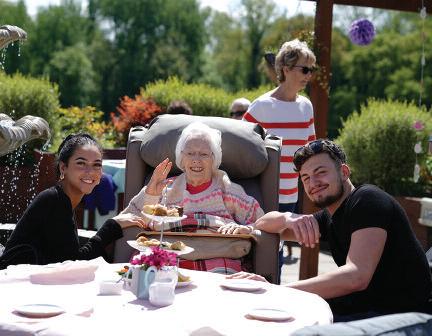
Whole Home Approach In Action – Friday Wellness Walks At Goodwins Hall
wellbeing and activities to another level with the introduction of the Friday Wellness Walks
Home Manager Flavia Hansell is delighted that the idea of the walks has been warmly welcomed by both her residents and team members These walks are more than just a stroll, she said, they’re a celebration of health
started simply and it’s only going to get bigger and better as the weather warms up The beauty is it s simple I am asking every team member to take 15 minutes or more on a Friday to take a resident outside for a walk– lend an arm, push a wheelchair and spend some time out
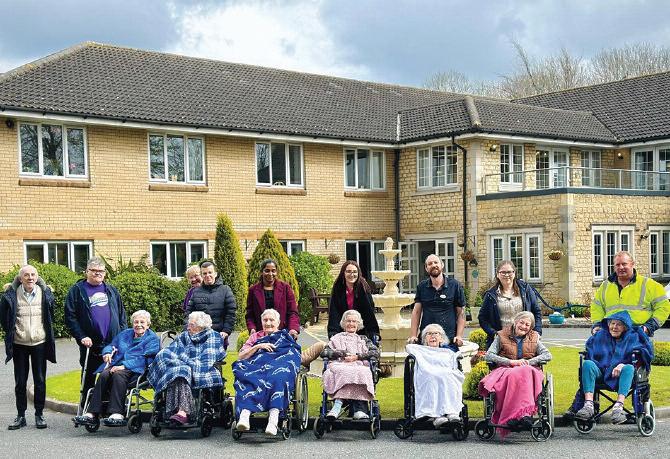
Caring
PAGE 18 | THE CARER | MAY/JUNE 2024 Staff residents relatives and the local community came together at Hethersett Hall to
together Visitors enjoyed plenty of refreshments, and cream tea prepared by the catering team, who were hard at work making sure that a great time was had by all – it really was a team effort! Resident Donald said I thoroughly enjoyed it I was surrounded by lots of great people and the refreshments kept flowing The
along with all their hard work, has definitely paid off It was a resounding success!” Ethersett Hall’s Garden Party Brings The Local Community Together Every Friday there s a buzz of energy at Goodwins Hall care home in Kings Lynn as the team takes its whole home approach to
happiness and connection The team at the care home are enthusiastic, from managers to kitchen staff gardeners to admin housekeepers to caregivers nurses and our lifestyles team Together they are championing the importance of getting outside and soaking up the goodness of nature It really is a whole home approach said Flavia We ve
in the fresh air “Our residents love these weekly walks,” added Flavia, “We have wonderful gardens at Goodwins Hall which everyone likes to get out into and enjoy It s a great opportunity for some one-to-one time with a member of our team and often a chance
chat
someone different
to
to
essential
benefits, espe-
older residents –
But why are these walks so
and what are the
cially for our
mobility
Keep moving – walking keeps us nimble and agile maintains
strengthening muscles and keeping our hearts happy
Happy thoughts – Fresh air is like a magic potion for our mood helping to relieve stress and leaving us with smiles for miles
Bright minds – Outdoor jaunts give our brains a workout keeping us sharp focused and ready for whatever comes our way
connection – Connecting with others on our walks fosters a real sense of belonging and camaraderie
regulate
energy
• Vitamin D – Energy and vitality Exposure to natural sunlight can
sleep patterns and boost
levels
–
nature
• Time to reminisce
A chance to reminisce share stories, and connect with
sunshine, let’s remember the magic that happens when we come together to explore laugh, and make some memories
out into the fresh air, even if just for a short period of time, is good for us all
So, as we lace up our shoes and head out into the
Getting

Fire Safety In Care Homes: How To
Engage Your Team In This Vital Area
By Margaret Tempest,
WHY IS A DETAILED FIRE SAFETY PLAN SO IMPORTANT?
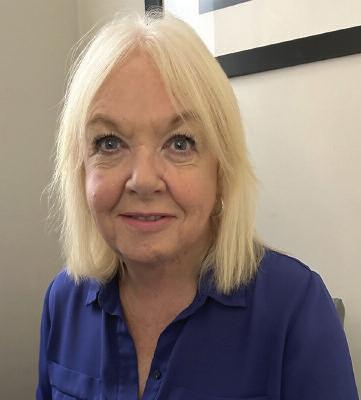
It is imperative to ensure everyone can evacuate safely in the event of a fire Fire safety is crucial in minimising the risk of injury or death even more so in care homes as each resident will have individual needs such as dementia or reduced mobility that may require additional planning, training, and allocation of staff roles
Not having a detailed plan and regular training could jeopardise the safety of the vulnerable people we care for Breaches of regulations can also lead to fines for care providers
There are statutory requirements we must follow including having regularly updated fire safety planning, risk assessments and evacuation plans The Care Quality Commission (CQC) requires that all care home staff have fire safety training
WHY DID YOU ENGAGE WITH A LOCAL FIREFIGHTER AS PART OF YOUR TRAINING?
Obtaining expert technical advice on the application and interpretation of fire safety guidance is central to our procedures We ensure that staff understand the importance of this as fires can spread quickly, risk lives and cause immense damage
We renew our fire training annually and this year we were joined by a fire safety consultant and professional firefighter from a Nottinghamshire fire station, to hear his expert views We learnt how to put out a fire efficiently and safely and heard real-life examples of the fires his crew had responded to and their causes
We then had a practical demonstration outside putting out a fire using water foam CO2 dry powder and wet chemical extinguishers That was helpful as people can often be anxious about using them
It was a detailed and informative session and we had excellent feedback from staff who have also applied some of the advice at home, such as ensuring their smoke alarms are working HOW OFTEN DO YOU HOLD FIRE SAFETY TRAINING SESSIONS?
We conduct annual and refresher sessions and all our new colleagues receive training on arrival We also have nominated fire marshals
Staff are trained to evacuate the building immediately in line with the home s plan going to the nearest
designated fire assembly point while remaining as calm as possible and helping others
They are also trained in fire prevention measures and emergency procedures and have regular drills
WHAT OTHER FIRE SAFETY PRECAUTIONS SHOULD A CARE HOME TAKE?
Our up-to-date fire risk assessment is reviewed regularly and the fire alarm system that runs throughout each home is fully serviced We also ensure:
Regular fire alarm and escape lighting tests
Regular inspections of fire safety equipment
• The correct fire extinguishers are in the right places and the fully operational fire doors are checked regularly - these can slow the speed of the fire spreading
Each home has trained and nominated staff to assist with evacuation in each part of the building
• The firebox in each manager s office includes equipment such as two-way radios torches and reflective jackets
WHAT REGULATIONS MUST YOU ABIDE BY?
Fire safety regulations for UK care homes are primarily governed by the Regulatory Reform (Fire Safety)
Order 2005 which places responsibilities on those involved in fire safety, such as registered managers The primary duty is with the care provider as the employer known as the responsible person and you can read specialist guidance here
The CQC assesses fire safety as part of its inspections; care homes that fail to comply with its fire service recommendations could see their CQC rating affected
WHAT EXTRA MEASURES ARE NEEDED IN A DEMENTIA
The
a safe area ahead of the fire which gives staff enough time to reach everyone
Wheelchairs or medical beds must pass freely through all doors
Knowing their loved ones are well looked after in their care home is of the utmost importance to families
That’s why fire safety is vital to our procedures and staff training keeping our
Care Home Staff and Residents Need ‘Family’ Bonds To Thrive
Care home residents receive much better care when they enjoy family bonds with staff – but staff must be empowered to create these bonds, new research has found
The study led by the University of Leeds and funded by The National Institute for Health and Care Research (NIHR), found that when care home staffing is stable and consistent and numbers are sufficient, workers have the capacity to develop ‘familial’ relationships with residents and can deliver quality personalised care
Lead researcher Karen Spilsbury, Professor of Nursing at the University of Leeds School of Healthcare said: Understanding how to meet the needs and preferences of the thousands of people living in care homes is a societal priority It is vital that we know how to use the workforce resources in care homes to promote quality and effective working
The study team speculated that staffing and ways of working were key influences on quality Working with managers residents families and care home staff from a range of care homes in England, the researchers set out to find out how and why staffing in care homes affects the quality of life and care of the residents
The team analysed research journal articles care home and care organisation data to look at what it is about staffing that influences
quality They analysed reports and ratings of homes from the Care Quality Commission (CQC) regulator and networks between staff in homes
According to the results staffing considerations that might improve quality include not swapping managers too much; having sufficient and consistent staff for family-like relationships in homes and putting residents needs first; supporting staff and giving them freedom to act and key staff leading by example
Professor Karen Spilsbury, School of Healthcare The research also showed that where more care was provided by registered nurses there were fewer incidents such as falls with fractures, urinary tract infections and medication errors
However, simply increasing nursing input was unlikely to be a costeffective way of reducing adverse incidents in care homes The study found that although there might be savings to the wider healthcare system in reduced treatment costs any savings would be wiped out by the high additional costs of employing more nurses
The study also found:
Care homes with a manager in-post in the 12 months prior to a CQC
inspection were more likely to be rated as good or outstanding
Higher staff-to-bed ratios were associated with a greater chance of
a good or outstanding CQC inspection score
Having experienced care staff, that is, staff in post for 5 years, was likely to improve quality, as measured by CQC ratings, and staffing consistency was important for organising care and work
Larger homes were less likely to be rated positively: but team size (not home size) may be a useful lever for promoting quality, i e small groups of linked residents and staff (5–15 residents per staff member based on level of resident dependency) promoted familiarity, communication and a family-like environment for cultivating relationships
Use of agency nurses to cover for staff sickness or unfilled vacancies was not associated with more falls, infections, or pressure ulcers, but was associated with more medication errors
Professor Spilsbury, who is also NICHE-Leeds Academic Director, added: “Staffing in care homes matters and needs to be valued It needs to be stable, skilled and competent, to realise the benefits of person-focused organisation of care, and enhanced teamworking “Our study shows that leadership, reward and recognition of staff, and a shared philosophy of care are key to improving quality as experienced by residents ”
Added Value Enterprises - Sustainable Solutions for Social Care



PAGE 20 | THE CARER | MAY/JUNE 2024 Added Value Enterprises provide specialist consultancy services that deliver genuine cost savings to our clients As an experienced procurement and consultancy specialist we help over 1000 customers daily by providing solutions to help them operate their day to day business better A dedicated team of real people are committed to delivering the best ingredients at the right price to our clients crafting an ethical diligent and sustainable supply chain specific to your requirements Good purchasing takes time but we get you results fast saving our clients on average 18% against their current costs In addition our food and nutrition team is on hand to get the best out of your teams offering a range of support including tailored recipe portfolios aligned to your supply chain or a complete managed menu solution with access to our online ordering portal Focusing on three pillars of excellence - cost wellbeing & sustainability we apply real life considerations into our sourcing, allowing our clients to make and report on improvements with tools that generate nutrition compliance and sustainability scorecards If you are looking to cut costs without cutting corners and need help with purchasing solutions food management consultancy or are thinking of moving your catering in-house, explore our expertise today at https://a-v-e com/ or reach out to us via email at solutions@a-v-e com or by phone on 03330 705 975
SPECIALIST CARE HOME?
fire
night
challenging People might not
very mobile,
avoiding confusing them
evacuation of residents in the event of a
especially at
can be
be
so staff need to help each person while
level
dependency They are
Our fireboxes contain the details of all residents and their
of mobility and
moved horizontally to
staff and family members safe and building trust in those that use our service
training lead
Church Farm Care, which provides specialist dementia care across several homes – www.churchfarmcare.co.uk
at
Sustainable solutions for Social Care.
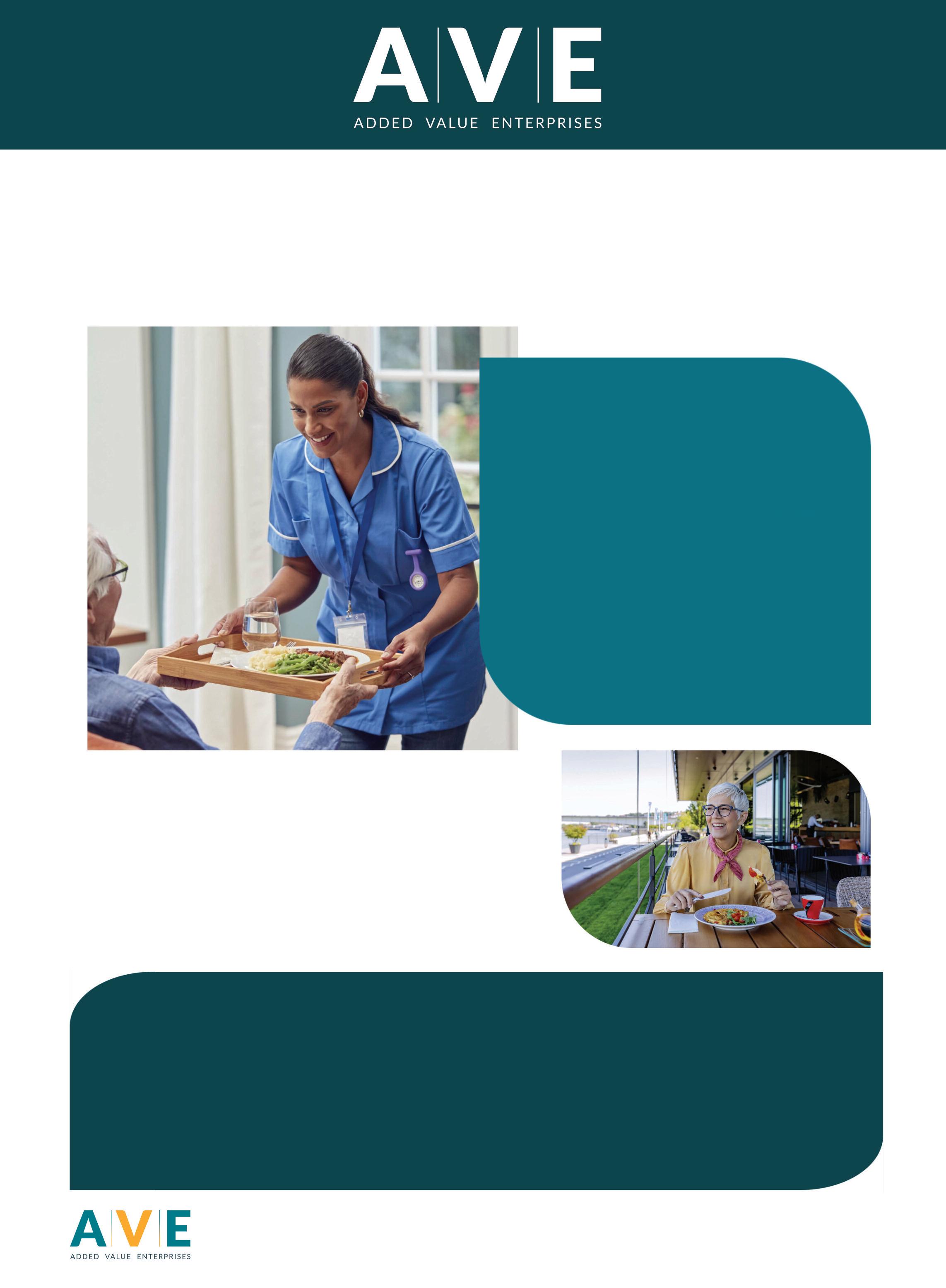
Social care organisations have a lot on their plate without a supply chain review getting in the way We collaborate with social care organisations and care homes across the country, taking care of the time-consuming details, and achieving the good value they deserve
With a robust, ethical, highly traceable supply chain, we deliver expert food, beverage, and non-food purchasing solutions that save time and money That means more time to focus on what matters, like supporting patient wellbeing with exceptional quality produce
Let's achieve new efficiencies today Sustainable sourcing for social care organisations and care homes.
We know how important sourcing is to social care organisations and care homes You need to know where your food, beverages and non-food are coming from, but that often means paying more than you should
At AVE, we don t believe that there should ever be a choice between ethics and value We offer sustainable sourcing that is good for the planet and your bottom line Social care purchasing.
Social care organisations choose us as their partner because we know the particular requirement of this challenging field We deliver a lean robust supply chain that works for your patients and people In a busy market we cut through the obscurity and complicated language to find the deals that matter to you achieving the quality you deserve at prices you didn't know were possible
How's that for a healthy supply chain? Your social care purchasing partner.
Achieve lean, robust food and non-food supply for your social care business or care home Our purchasing experts have spent years working in the social care sector, identifying the particular needs of people in this challenging field and delivering on time every time Sustainable produce, better prices and the quality you deserve Social care food management consultancy. inspire healthcare chefs and catering staff with quality menus and recipes that your patients will love Our food management consultants have worked with health and social care organisations and care homes across the UK, crafting bespoke menus that deliver on price and taste We'll even help you navigate the tricky territory of special diets and allergens with ease Social care in-house catering solutions.
Catering can be tricky to go at alone Why not partner up? Trust us to lend a specialist hand across every aspect of your food operation, and guarantee the best results - safety and sustainability assured
03330 705975 | www.a-v-e.com | solutions@a-v-e.com
Experts Reveal Simple Gardening Hacks That Can Help with Dementia
From sensory gardens to seasonal flowers to remind them of the time of year leading gardening and elderly care experts share their tips to help dementia sufferers enjoy the great outdoors safely
In light of dementia awareness week, TakingCare Personal Alarms has teamed up with leading gardening experts to highlight how simple gardening tasks can alleviate symptoms of the disease that currently affects more than 944 000 people in the UK
Dementia diagnosis can be devastating for both the individual and their family, and many carers struggle to know how to maintain the cognitive stimulation of the dementia sufferer whilst also ensuring their safety This challenge is common for millions of families across the UK, and it can feel overwhelming to keep their brain engaged

However an expert at Taking Care Personal Alarms has revealed that gardening is one of the most beneficial hobbies for people suffering with dementia Elderly Care Expert Lauren Frake has teamed up with a number of gardening experts to raise awareness of why gardening is effective for dementia patients as well as simple activities, plants and instalments that can help to reintroduce gardening activities safely and seamlessly into dementia sufferer s lives
“We understand how challenging it can be to care for someone who is suffering from dementia, and the strain of finding suitable activities or hobbies for them says Lauren Frake Elderly Care Expert at Taking Care Personal Alarms:
“Maintaining physical and cognitive functions is important to keep the brain stimulated and many of our alarm users report that gardening is a great place to start With its constant engagement and sensory stimulation it can provide a welcome distraction and therapeutic benefits for individuals with dementia ” Lauren continues with some of the key first steps that you can take to help reintroduce your loved ones to gardening so they don’t feel overwhelmed and confused
REINTRODUCE THE PERSON TO THEIR GARDEN AND SPEND TIME EXPLORING THE ENVIRONMENT
“When reintroducing gardening to someone with dementia one of the first steps to task is to ensure they feel safe in their environment A good first step is to walk them around their garden let them feel and touch the plants – especially ones with bright colours and textures This will help distract them and enable them to focus on what they are doing in that moment
“It is also good to provide some clear guidance around the garden tasks they can get involved in, and breaking these steps down into manageable bitesize chunks so they don t feel overwhelmed
“However as much as gardening is a great social activity and may provide some guidance at first we recommend encouraging them to take autonomy of some of the gardening so they feel a sense of independence and individual achievement Just keep an eye on them to make sure their safe and in distance if they need you ” EXPLORE SENSORY GARDENS
One of the ways to view dementia is like shaking a full bookshelf with your earliest memories at the bot-
tom and your most recent memories at the top says Nick White Nature Recovery Ranger for Centre of Sustainable healthcare
He continues:
“When you shake the bookcase the first books to fall are the ones at the top representing your most recent memories while those at the bottom your core childhood and embedded memories fall last
“For many people being amongst nature and gardening is part of their core childhood memories which is why gardening and being outdoors can be so beneficial and bring so much comfort to those suffering with dementia”
Nick highlights that his experience of designing garden activates for people with dementia has revealed that sensory gardens and different types of plants can also help people with dementia
"We often design sensory gardens brimming with plants that have calming colours textures and scents ”
Nick explains
The combination of these different types of sensory plants can often be a trigger recollection of distant memories "
SIMPLE TASKS CAN STILL BE VERY REWARDING
Rebecca Van Den Boogaard Vocational Horticulture Learning Tutor at Workbridge and St Andrew s
Healthcare a complex mental health charity said:
“Many gardening activities can still be enjoyed by people who have dementia especially in the earlier stages of the disease
“As a rule of thumb, spikey or toxic plants should be avoided, and the key is to keep it simple Activities and plants that I would recommend are mowing growing fruit vegetables annuals and herbs Feeding the birds is also rewarding
Peas are easy to sow and a quick crop (and delicious eaten straight from the vine) as are lettuces perpetual spinach and radishes Sensory plants with strong scents and even flavours are excellent I recommend stocks lavender calendula nasturtium Mint oregano thyme fennel sweet peas and common jasmine
EXPLORE SEASONAL PLANTS TO REMIND THEM ABOUT THE TIME OF YEAR
Dr Susanne Lux Project Manager for Pelargonium Europe said:
“Flowers and plants are well-known mood enhancers and sitting or walking in a beautiful blooming garden can have a positive effect on our emotional wellbeing and mental health
“For a person suffering with dementia-related memory loss, different varieties of plants may help to remind them of the time of year such as daffodils at the start of spring or sun-loving plants like geraniums which herald the onset of summer The olfactory sense is very evocative, and it may be possible for intensely perfumed flowering plants to trigger happy memories whilst also having a soothing effect
For more advice and guidance on supporting elderly people with dementia, visit the TakingCare dementia guide hub
Friends of the Elderly Launches Blue Light Breakfast Club At The Old Vicarage

Sadly, the match was a goalless draw, but Tony had the time of his life He said afterwards: It was overwhelming in a good way It was so interesting to see the new stadium and all the people at the match I now plan to go to another game I am really grateful to Stuart who worked very hard to make my visit such a pleasurable one He was very helpful and supportive I have not seen my daughter look so happy for ages sharing this day with me Tony used to live in south-west London: he, his dad and granddad were all fans of Brentford He first saw them play in the 1946/47 season when he recalls they beat Wolverhampton
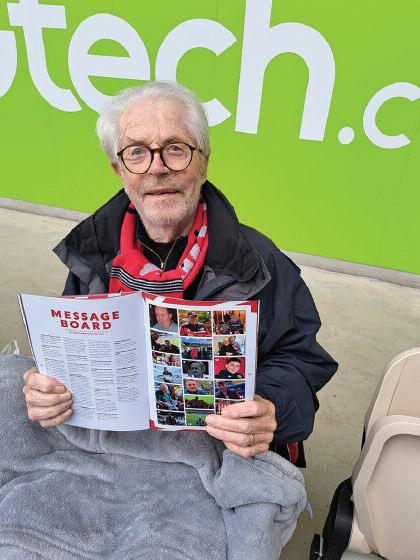
PAGE 22 | THE CARER | MAY/JUNE 2024
Winchester care home resident Tony Day enjoyed his perfect day when he went to see his favourite football team play in London Tony who is 90 is a huge fan of Brentford FC His care home Brendoncare St Giles View in Winchester arranged for him to go and see the club s local London derby match on
4th May against Fulham at the Gtech Community Stadium
Accompanied by his daughter Susanna and care assistant Stuart Weatherall Tony was given the VIP treatment, the club featuring a photo and a quote from him in the match day programme
Wanderers 4-1 His favourite players were forward Jimmy Brooks, goalkeeper Joe Crozier half back Ken Coote and forward Jimmy McAdam At Christmas, he received a signed shirt from the club as a present His football match visit is part of Brendoncare’s Perfect Day project designed to enable residents to enjoy their best possible day Another St Giles View resident Norma Watts also recently enjoyed a memorable day being pampered at a spa in Berkshire These days are being made possible through funding from The McClay Dementia Fund Rebecca Spicer Brendoncare’s Wellbeing Manager added “We are so thrilled we can make dreams come true for our residents Creating special memories for them is so important and we know Tony had the most fantastic time watching his favourite team play We have several more surprises lined up for our residents at Brendoncare St Giles View and we cannot wait for them to enjoy their perfect days with us Brendoncare St Giles View is one of seven care homes run by Hampshire-based charity Brendoncare which celebrates its 40th anniversary this year It also provides extra care housing community clubs and support services for older people across southern England Its Care for Life promise gives security and peace of mind to residents and their families meaning that no one will have to leave their Brendoncare home because of a change in financial circumstances Winchester Care Home Resident Tony Day’s Perfect Day Watching Favourite Football Team Charity Friends of the Elderly is launching a Blue Light Breakfast Club at The Old Vicarage, the Wallingford-based residential and dementia care home The Club – which will begin on Monday 20th May - will be open five days a week Monday to Friday from 8 a m to 10 a m , offering a wide selection of tasty breakfast rolls pastries and warm beverages to all members of the emergency services NHS workers and Blue Light Card Holders “We wanted to show our appreciation to all our local emergency services NHS workers and Blue Light Card Holders for all their unwavering support kindness, dedication and hard work they do for our community,” said Carol Bourne the Registered Manager at the care home We thought that by launching the Blue Light Breakfast Club it would be just a small way to give something back to everyone who supports our community and our care home on a daily basis ” The Old Vicarage Blue Light Breakfast Club is open to all emergency workers - Paramedics members of the Police Force Firefighters NHS employees Community District Nurses Key Workers Community Health Workers Blood Bike Drivers Doctors – and anyone who holds a Blue Light Card The Old Vicarage Blue Light Breakfast Club will launch on Monday 20th May and be open Monday to Friday from 8 a m to 10 a m There will be a delicious range of breakfast items for guests to choose from including tasty breakfast rolls pastries and hot drinks Attendees should be in uniform or have evidence they work for the NHS or emergency services – or produce their Blue Light Card “We hope The Blue Light Breakfast Club will be a week day way of recognising and acknowledging the extremely vital role our emergency services, NHS and Blue Light Card Holders play in our community ” Carol continued “All our local emergency services, NHS workers and Blue Light Card Holders are our community heroes They all work so hard and give so much Our Blue Light Breakfast Club is only a small thing to do to say thank you and help set them up the day concluded Carol
First Of Its Kind Practical Resource Is Launched
To Support The UK’s Health and Care Sector
Health Innovation West Midlands (HIWM) has launched Appreciating Health and Care a practical guide for the health and social care sector, enabling professionals from across the UK to adopt an appreciative inquiry approach in the workplace
Working in partnership with fellow organisations, Appreciating People and Aqua, HIWM identified the need for better support for professionals with navigating the pressures and demands facing the sector In response the world-first resource was created to build on the many great examples where appreciative inquiry is already supporting the industry
Appreciating Health and Care provides teams and organisations with practical tools guidance and case studies and highlights real world examples of appreciative inquiry being used to support overall quality and safety improvement of care
First revealed at a virtual launch on the 30th April, people from all over the country tuned in to learn more about the resource and hear from the team involved in its development
The resource is available to purchase from the Appreciating People’s website or as a resource for participants in Health Innovation West Midlands’ and Aqua’s Appreciative Inquiry training programmes and courses
Daniel Hodgkiss Assistant Programme Manager at HIWM commented:
“It is really exciting to have finally launched the ‘Appreciating Health and Care’ resource I believe there is a great opportunity for this information to support individuals teams and organisations to create positive work cultures which enable practical improvements across health and care settings
The launch truly highlighted the interest from within the sector and need for a resource such as this with an immediate positive response from the audience attending on the day Some attendees even stated that they were keen to take some of the learnings straight back to their places of work
Working in tandem with the other organisations including NHS England NHS Impact and other international bodies, will enable us to roll out ‘Appreciating Health and Care’ far and wide, allowing more healthcare staff to support their local improvement projects
To encourage the uptake of the resource there are plans for the authors to disseminate the document with their colleagues around the world through a series of presentations and webinars with key organisations such as the Cooperrider Centre at Champlain College and the Q Community at The Health Foundation
To find out more about the resource or get involved with any of the upcoming events please visit: www healthinnovationwestmidlands org
Patrick McMillan's Inspiring Journey Shared at Cuffley
Manor's Parkinson's Cafe on World Parkinson's Day
On World Parkinson's Day Cuffley Manor Care Home organised a special gathering at its Parkinson s Cafe where residents and individuals from the wider community living with Parkinson s disease came together to share experiences, offer support, and draw inspiration from one another Among the attendees was Patrick McMillan a beloved resident of Cuffley Manor who courageously shared his personal journey with Parkinson's disease From the initial diagnosis to the daily struggles and triumphs he offered a raw and unfiltered account of his experiences leaving a profound impact on all who listened His candid and heartfelt narrative resonated deeply with attendees offering a beacon of hope and inspiration to those navigating similar challenges
Patrick s willingness to share his journey with Parkinson s disease was incredibly inspiring His courage and resilience serve as a source of motivation for all of us reminding us of the importance of solidarity and empathy in facing life's obstacles” remarked Ravi Joshi, Business development manager at Cuffley Manor Care Home
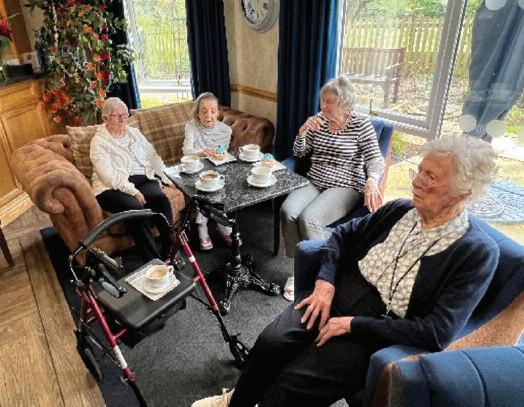
For me sharing my story was about more than just raising awareness It was about connecting with others who understand the challenges of living with Parkinson's disease and offering a message of hope
and resilience If my story can inspire just one person to speak up and seek support then it s worth sharing ” said McMillan
Patrick s story was incredibly moving and motivational It reminded me that I'm not alone in this journey and that there is hope and support available His willingness to speak openly about his experiences has empowered me to do the same,” said Brenda West a Resident at the Cuffley manor care home
The event concluded with an outpouring of gratitude and appreciation for McMillan's willingness to share his journey Residents and team members alike expressed their admiration for his courage and resilience emphasising the profound impact of his story on their lives
"As a community, we are incredibly grateful to Patrick for sharing his story with us His courage and resilience are an inspiration to us all and his willingness to speak openly about his experiences has created a sense of unity and support within our community said Marion Wak Williams Manager of Cuffley Manor Care Home
As Cuffley Manor Care Home continues its commitment to providing exceptional care and support to its residents events like the Parkinson s Cafe serve as a testament to the power of shared experiences and the importance of fostering a supportive and inclusive community
Trio of Dementia Care Awards Finalists at Burscough Manor Care Home
A care home in Lancashire has been recognised for its excellent dementia care with three members of staff being shortlisted for this year’s Dementia Care Awards
Gemma Ivanova Senior Carer; Shyamlal Babu Care Practitioner; and Caren Pask, Unit Lead, have each been shortlisted for awards across two categories showcasing the home s commitment to providing outstanding dementia care
The Dementia Care Awards celebrate excellence in dementia care giving employers the opportunity to nominate their staff for their talent, innovation excellence and commitment to delivering the highest level of dementia care


Gemma Ivanova and Shyamlal Babu have been shortlisted for the Dementia Care Home Worker Award which aims to celebrate impact compassion empathy innovation and involvement of people affected by dementia, and the positive outcomes that follow
Caren Pask has been shortlisted for the Dementia Front Line Leader Award which celebrates care workers delivering exceptional dementia care on the front lines
Burscough Manor Care Home one of Sandstone Care Group s nine homes across the North West and the Midlands offers luxury residential and specialist complex nursing care tailored towards residents at the home
Dementia carers at the homes provide person-centred compassionate care for residents at all different stages in their dementia diagnoses tailored to their specific needs and challenges
The home’s manager, Lizzie Brighouse, and deputy manager, Kirsty Faulkner, nominated Gemma, Shyamlal and Caren for their dedication to Sandstone s ethos of providing outstanding resident-led services at all homes
Lizzie Brighouse Manager of Burscough Manor Care Home said: It s really exciting to have three members of staff shortlisted for the Dementia Care Awards this year
“Gemma Shyamlal and Caren all go above and beyond for residents upholding the highest standards and delivering compassionate and empathetic care to all residents with dementia at the home
“Everyone at the home has their fingers crossed for the awards ceremony in June Regardless of the outcome we are extremely proud and hope our brilliant nominees have a great time at the gala!
Shyamlal said: “I have worked in care for two years since moving from India, and at Burscough Manor I work on the dementia unit as a Care Assistant I enjoy working on the unit and keep developing my understanding of Dementia, learning new terminology every day ” I like to bring laughter to our residents and happiness to their home My favourite time in work is listening

to music and activities such as gents club and playing darts
“I love spending time listening to each resident s stories of the past and present their childhood experiences and hearing them share stories ”
Gemma said: I have always been a person who lacks confidence due to my dyslexia, and I have worked alongside nurses on the nursing unit for years to get guidance A few years ago I struggled with anxiety which led to a massive lack of motivation I was given the opportunity to work on Buttercup Unit in July 2023 a brand-new unit
“This was a new and exciting challenge I was able to build a home for our residents to help residents with dementia to strengthen their sense of identity and bring them comfort through reminiscing about special memories that are important to them as individuals
Dementia can affect any individual and with communication and trust we can ensure they feel safe and give them time to build confidence It is important to remember that Burscough Manor is their home and we work in their home
For many carers, providing dementia care is deeply personal, having experience of their own family members being diagnosed Caren Pask s mother was diagnosed with early-onset dementia in 2018 sparking a desire to learn more about caring for older adults through her university studies
Caren said: “My mum was a very intelligent person who had learned to hide the signs from her GP I knew that she was showing the signs but if you can give the right answers on the memory test then according to the Memory Clinic, you don't need support This made me frustrated as I had noticed the signs and knew that we needed support
“While at university, I discovered a passion for learning about older adults' health I had taken a job in domiciliary care to have flexible hours and learn more about dementia and the people I supported gave me insight into the condition that was affecting my mum
“Through the years of care I discovered that you must get to know the people that you support and base your care on helping them remember who they are You must live in their world One of the best things about getting to know the person is that you can become their memory when they have a bad day
The people I ve supported have shown me that it s a confusing world to live in when you have dementia We need to understand their needs and be with them at that moment, as this can be when they are in their teens when they were first married or when they were a child No one s feelings or memories should be ignored As a person with dementia, you can’t always be in the moment that you are in ”
THE CARER | MAY/JUNE 2024 | PAGE 23
How Can Care Managers Navigate New Immigration Rules?
By Carolyn Bowie, principal

The past four months have brought a series of significant changes to UK immigration law – developments that will have a direct impact on overseas workers within the UK care sector, and for the businesses employing them
Here, we explore some of the recent changes and discuss the steps care sector management should be considering now to ensure their businesses remain compliant with the law to effectively support their workforce
Dependent rules: removing the ability to bring spouses and children
The immigration development that will perhaps have the largest impact is a tightening of the rules around who overseas care workers can bring to live in the UK with them
As of March new migrant care workers and senior care workers (occupation codes 6135 and 6136) are no longer allowed to bring dependents – their partners or their children – on their visa This won’t apply to those who were in the route before 11 March 2024 – they can still apply for their partners or their children to join them
As well as considering how this may affect their ability to meet their ongoing staffing needs care sector businesses will need to be mindful of the potential impact on workers who choose to still work in the UK sponsored under these occupation codes The fact that they may be separated from support – such as a spouse – may increase their financial vulnerability in the UK and have a negative impact on their mental health and wellbeing
This is an issue that sector businesses must take seriously Employers have a legal duty of care to their staff that requires them to do all they reasonably can to support their employees’ health, safety and wellbeing and mental health is just as important as physical health in this regard
In certain cases, poor mental health may be considered a disability under the Equality Act, which would require employers to make reasonable adjustments for the worker in question
But beyond their legal obligations creating a supportive compassionate environment is simply the right thing to do Management teams should be taking the opportunity now to review the systems they have in place for spotting signs of vulnerability or poor mental health and what resources they have available to help affected staff Here, they may benefit from specialist external help – such as mental health professionals and/or legal specialists in this area – or delivering training for their teams particularly those with line management responsibilities
INCREASING THE COST OF NON-COMPLIANCE
Two further changes are also now in force that increase immigration compliance responsibilities and potential cost of breaches for care organisations
As of February any business that is found to have employed an individual without the appropriate immigration permission in the UK may pay a penalty up to £15,000 per person found to be employed unlawfully for a first offence triple the previous fine
For repeat breaches the penalty has also risen three-fold: climbing from £20 000 to £60 000 per person
This makes it even more important that care sector businesses have the right procedures in place to ensure their compliance with relevant employment and right to work legislation
This might include regular audits of records or conducting internal ‘spot checks’ to ensure that a business is consistently complying with its duties as a sponsor of an overseas worker
Companies should also make sure that the responsibility for compliance is a whole business effort –shared across staff and not just its most senior members As with mental health support care businesses may benefit from giving line managers – those who are perhaps closest to day-to-day operations – specific training on sponsor duties so they can flag any instances where a worker may not be working in a legal capacity for example taking unauthorised leave or working in a role outside of their visa s scope These are all easy areas to miss if you are not aware of the compliance pitfalls
Additionally as of March care providers in England are unable to sponsor new care workers under the Skilled Worker route, unless they are registered with the Care Quality Commission (“CQC”)
This could have a significant impact
These
The
In
what further changes to immigration policy could be on the horizon
For now care sector businesses should make sure they are fully abreast of recent developments and that they bolster and safeguard compliance protocols in their business to effectively support their staff
In a sector with a near 10% vacancy rate many businesses are likely to continue to view immigration as an important avenue for meeting their staffing needs
The right approach can ensure that businesses maximise their chances of fulfilling these requirements in line with the law and of creating a safe responsible working environment that helps both attract and retain all staff

From Drug Discover y to Treatment to Care: The Alzheimer’s & Dementia Show 2024
Now in its 11th year The Alzheimer s & Dementia Show is the UK s leading event for care providers, healthcare professionals, families and carers This is an unmissable event for those wanting to learn from leading experts find practical advice and support resources help and information develop a better understanding of dementia and further professional skills
Taking place at London ExCel on 14 - 15 June the show features a fully accredited CPD conference programme with talks from leading experts, family carers and people living with dementia alongside professional advice clinics dementia and care exhibitors and unique individual training opportunities you won t find at any other event
EXHIBITION HIGHLIGHTS
Exhibitors include organisations offering a range of products and services including care at home, care homes, living aids, reminiscence therapy, funding, training telecare assistive technology charity research legal education and finance

EXCLUSIVELY TO THE ALZHEIMER’S & DEMENTIA SHOW 2024: The Virtual Dementia Tour & Training Experience is for anyone working in any form of dementia care or living with someone with dementia It offers a greater knowledge and understanding of how to improve the lives of those with dementia by experiencing an immersive tour taking eight minutes followed by a tailored 75 minute individual debriefing and training session Dementia Interpreters – learning the ‘language’
and move your body and is the first experiential course specifically designed to simulate the communication needs of people living with dementia It forces you to find new ways to communicate and recognise how to better understand
The CQC will
show’s founder and organiser said: “Over the last 11 years our annual event has strived to deliver
PAGE 24 | THE CARER | MAY/JUNE 2024
dementia takes
see, hear
of
away your ability to speak,
living with dementia
be running an ‘inspector hub’ on stand C26 All show attendees are invited to come and speak to a CQC inspector or registration manager to discuss any queries they may have; local inspectors will be able to answer any questions as well as dealing with registration advice This year’s
first
include a
nurses
community carers providing
into the latest advancements in research
treatment options as well as practical tools to guide
support patients
by Professor Fiona Ducotterd Nigel Ward, the
living
dementia and their carers desperately need
deserve all the help and reassurance they can get “Under one roof with straightforward access to products and information from trusted suppliers and CPD accredited experts visitors can increase their knowledge and confidence which in turn benefits the quality of care they provide Book your tickets today – www alzheimersshow co uk
Alzheimer’s & Dementia Show will for the
time
Drugs Discovery Summit for GPs
and
insights
and
and
and Chaired
practical help and expert guidance to care professionals as well as unpaid members of the public caring for those with dementia In the continuing absence of more robust financial support, both persons
with
and
on care sector business recruitment strategies if – until now – they relied on overseas staff and are not a business providing regulated activities and therefore have not required CQC registration
firms now face a choice: to try and source the staff they need elsewhere, or to proceed with CQC registration
latter route can be a lengthy and resource-intensive process If this is an option that firms are considering or feel they need to pursue it s advised they seek advice from legal experts specialising in healthcare to help minimise delays and cost THE ROAD AHEAD
election
remains to be seen
a general
year it
associate in the business immigration team at national law firm Weightmans (www.weightmans.com) Long-Distance Runner Visits Mother After Completing Five Marathons To Help Raise Over £19,000 For Alzheimer’s Society A proud mother Jessie Murphy aged 76 who has lived at HC-One Scotland s Douglas View Care Home in Hamilton Lanarkshire since July 2023 has been reflecting on how proud she is of her son, George Murphy’s fundraising achievements by raising over £19 000 in aid of the Alzheimer’s Society George has completed a total of four marathons so far including three London Marathons and the Great North run in 2023 with another marathon the New York marathon due to be complete in November this year all in aid of raising funds for the Alzheimer’s Society, a cause close to George’s heart George chose to raise funds for the Alzheimer s Society following his mother Jessie’s diagnosis of Alzheimer’s disease The Alzheimer’s Society is a care and research charity for people living with dementia and their carers as well as funding dementia research George recently brought in his medal to show his proud mum following recently completing the London Marathon on Sunday 21st April 2024, running a 26 2-mile course from Greenwich to The Mall Jessie Murphy resident at Douglas View Care Home commented “I’m really proud of my son, George s achievements He’s one in a million! Raising over £19 000 for the Alzheimer s Society is amazing Louise Fulton, Home Manager at Douglas View Care Home, said: It s so great to hear about all the fundraising efforts and work George has done to raise money for an organisation which is very close to all our hearts Well done George!”
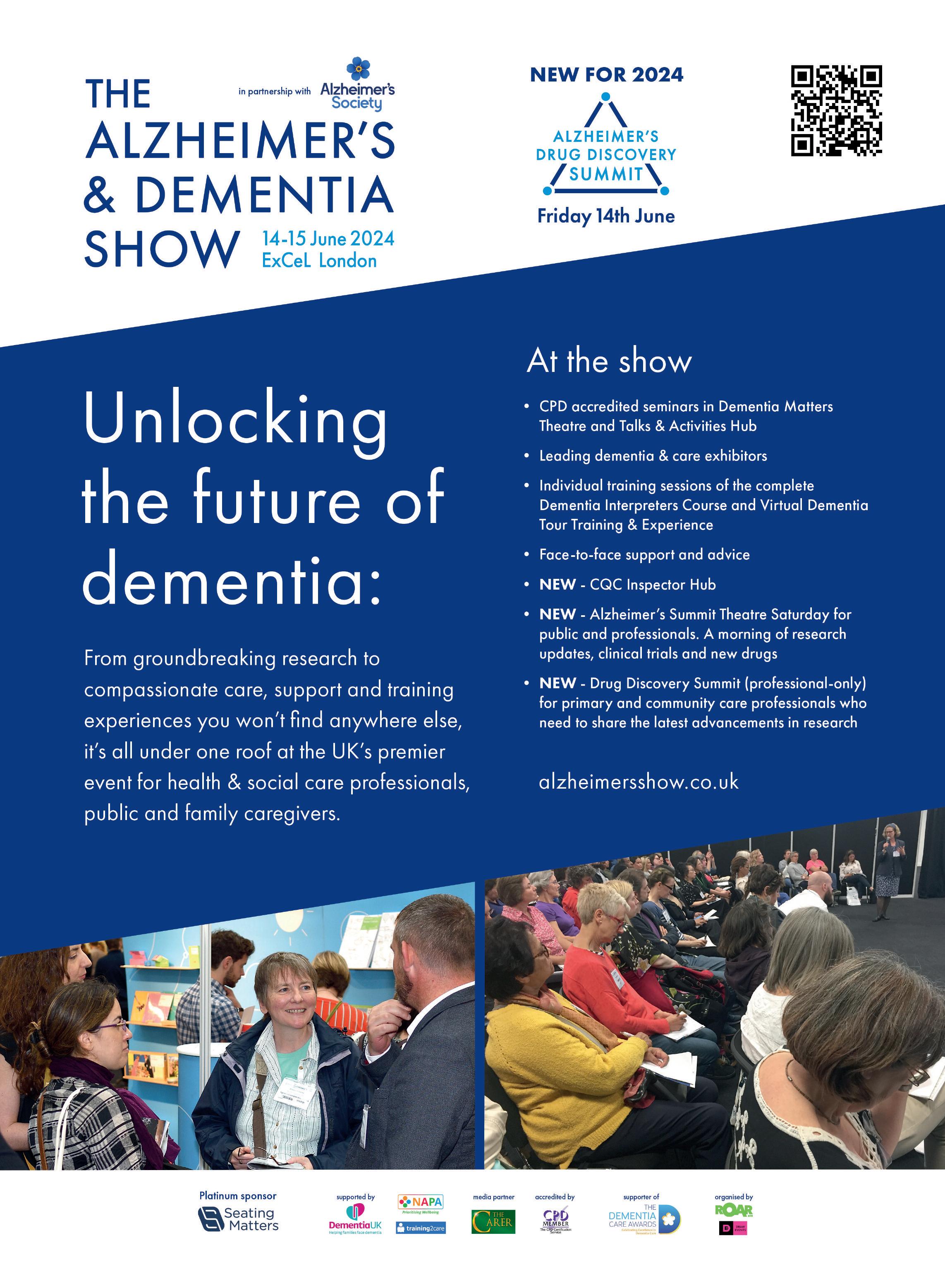
Systemic Issues Facing The Care Industr y Are Nothing
New. Prioritising Digital Maturity Can Help Tackle Them
By Martin Lowthian, Quality and Governance Specialist,
IMPROVING HOME CARE

The critical problems facing the care sector remain relatively constant year on year with workforce challenges and budget constraints continuing to feature strongly in this year’s Pulse Check from Care England It s a similar story in the CQC s annual assessment of the state of health and adult social care from last year, the themes from which have featured heavily in the government s latest research briefing on the sector
A ‘care gridlock’ remains in part due to delayed hospital discharge affected by capacity challenges in social care this combined with staff shortages means providers are actually having to turn down admissions
However, the last 12 months have been worsened by the cost-of-living crisis impacting on providers ability to pay for staff and services in line with inflation, as well as rising energy costs, with some providers citing increases of as much as 350% Unfortunately these factors are making recruitment and retention even more difficult
The repeated findings from the likes of Care England and CQC paint a challenging picture for social care
providers Alongside a need for increased sustainable funding into care services to tackle these issues we should consider how technology can play its part
RECRUITING AND RETAINING STAFF
Recruitment and retention of staff is a leading challenge affecting care access with poor perceptions of the industry playing a key role
Our customers tell us they feel overworked exhausted and stressed sometimes to the point of becoming ill injured or leaving their job altogether And whilst this year s rise in the national living wage is a positive step for workers, they need continued support to manage their workloads and look after their wellbeing
A part of the solution could include home care rostering and scheduling software or medication management and communication tools Each can help to release time from unnecessarily manual administrative processes freeing up time to care for individuals and helping staff to feel less overwhelmed by their workload Smart rostering of who supports which client can also reduce travel time, which in turn helps reduce the provider s carbon footprint and reduce the day-to-day travel expenditure for staff These kinds of changes alongside action from government through things like the Care Workforce Pathway are great steps forward to empower workers improve perception of the sector and boost recruitment
Homecare Supported Living and residential services often use our planning solution to produce personalised, digital care plans, record observations, and identify trends and warning signs New Directions a specialist autism and mental health community support service said that using the solution has saved staff time reduced stress, and allowed them to spend more time with service users They believe that having the digital analysis and reports also helped them to achieve an outstanding CQC rating
Significant inroads to the ‘care gridlock’ can also be alleviated by introducing efficiencies into the delivery of home care which has been proven to help minimise and in some cases mitigate the need for people to require residential or hospital care in the future
Individuals can sleep in their own beds eat the food they like and be with their friends and family However it can be difficult to deliver these services to everyone when demand outstrips the capacity of the workforce and providers are having to hand back contracts By implementing technologies such as digital brokerage systems we ve seen the time taken to deliver homecare services reduce by 35% by improving the hospital discharge process Similarly, the use of technology enabled care means individuals can be discharged from hospital sooner as they receive appropriate levels of care at home The use of smart sensors linked to intuitive software means care teams can be alerted to urgent issues or spot unusual habits/patterns and prioritise the workforce and home visits accordingly
LEVELLING UP
This type of digitisation allows providers to reduce administrative burdens and give time back to staff which is vital for addressing the fundamental issues facing the industry However, it is important to remember that care providers are at different stages of digital maturity This can be due to a lack of adequate funding or integration and incompatibility between systems
To help tackle this variation providers should prioritise implementing digital care records It s the most effective way of joining up the care journey and providing services that are centred around the individual and why government set a target for 80% of social care providers to have one in place by the end of March 2024
Having a system that provides a holistic view of service users will enable population health management provide a better understanding of demographic variation and enable care to be more evenly distributed to reduce health inequalities And with applications open for the latest wave of funding through the Digitising Social Care programme there are new opportunities for this type of levelling up
To determine the best approach to this type of digitisation, a strategy is vital It should be set around a strong vision and goals with a long-term approach that considers what is needed now and how needs might evolve over the next five years and beyond And crucially who to involve to make it happen Budgets are tight so it is important to have a roadmap of what when and how these changes are going to be made and with what funding
DIGITAL AS AN ENABLER
Digital should always be used to enhance, not replace services, to allow people to receive care in the way that suits them and is medically safe All the while it should reduce care worker time spent on unnecessary tasks enabling them to work smarter not harder and spend more time with their clients And having aligned informed strategic digital goals and sharing efforts across organisations will ensure technology can play and important part in addressing the issues that persist and make sure care can be delivered to the most vulnerable in our society in a safe and efficient way
Off To University For 81-Year-Old Care Home Resident Brian
when he
time with students at Durham University Brian, who lives at Mandale House Care Home, on Acklam Road, Thornaby was invited to the University s Queen s Campus on University Blvd for a special event
Accompanied by the care home’s activities coordinator Tanya Spence Brian enjoyed afternoon tea and board games with several students from the International Study Centre (ISC)
The students who are attending the university from as far afield as Japan, China Thailand and Canada, volunteered to spend time with residents from care homes across Stockton-on-Tees
As well as sharing a meal and playing games, the group listened to music together shared stories and enjoyed discussing their families hobbies and studies
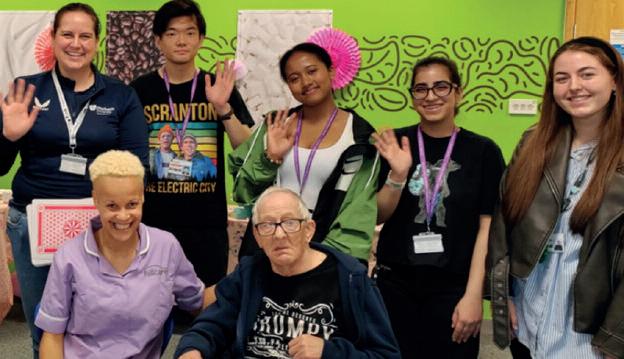
Law student Khadija Jawwad 21 from Canada said: “I love talking to elderly people finding out their stories and life experiences It was great talking about their lives
The idea for the intergenerational event came from a Stockton-on-Tees care home activities coordinator forum which was held at Queen s Campus
Participants suggested elderly residents would enjoy spending time with young people from different parts of the world and Durham University staff members Peri Anderson and Rachael King agreed there would be benefits for both parties and put a plan into motion
Tanya was among the activities coordinators at the forum She said: Brian absolutely loved going on the outing to Queen s Campus in Teesdale While he is mostly unable to speak, his smile said it all
He loved playing afternoon tea bingo which he won And he played a few hard fought games of dominoes with the international students
“I can t thank Peri Anderson Rachael King Demi-Leigh Thompson and the students enough for their kindness and patience
“The afternoon tea was just lovely and we look forward to meeting up with the young people again
Peri Anderson, assistant facility manager at Durham University, said: Finding local opportunities for the students to engage in is very important to the International Study Centre
Volunteering allows students to learn new skills network in the area and give something back
“The link with local cares home has been lovely to develop and as our international students live far away from their own families that intergenerational mix is something they really wanted to support “So, not only does it hopefully have a positive effect on the residents, but our students also gain so much We all thoroughly enjoyed our afternoon tea event and look forward to our next one
Rachael King, student enrichment officer at Durham University, added: “We are incredibly proud of all of our students who work tirelessly to make a positive difference both on a national and international scale ”
Unlocking Innovation and Collaboration: The Care & Occupational Therapy Show
The Care & Occupational Therapy Show scheduled for July 17th at Westpoint Exeter is poised to be a pivotal event in the fields of care and occupational therapy With an extensive lineup of CPD-accredited seminars, keynote speakers networking opportunities and expert exhibitors this event offers a comprehensive platform for professionals to explore the latest trends, exchange ideas and foster collaborations
At the heart of the event are the CPD-accredited seminars and keynote speeches which promise to provide attendees with invaluable insights and knowledge Renowned experts will take the stage to address pressing issues share innovative strategies, and discuss emerging trends shaping the future of care and therapy From advancements in assistive technologies to holistic approaches to patient care attendees can expect to gain a deeper understanding of the evolving landscape of their professions

Networking lies at the core of The Care & Occupational Therapy Show offering attendees the chance to connect with peers, industry leaders, and potential collaborators Whether you're seeking to expand your professional network explore career opportunities or forge strategic partnerships the event provides a conducive environment for meaningful interactions Through structured networking sessions informal discussions and dedicated meeting spaces attendees can leverage the collective expertise and experiences of their peers to drive innovation and excellence in their practice
In addition to the educational and networking aspects, the show boasts a vibrant exhibition floor featuring expert exhibitors showcasing the latest products services and solutions From state-of-the-art assistive
devices to innovative therapeutic interventions attendees have the opportunity to explore a diverse range of offerings from leading industry providers The exhibition serves as a hub for discovering cutting-edge technologies, exploring new approaches to patient care and staying abreast of industry developments
Furthermore, the event caters to professionals at every stage of their career journey from seasoned practitioners to students and newcomers to the field For students and recent graduates the show offers valuable insights into the profession career guidance and networking opportunities to kickstart their careers For established professionals it presents a platform to stay updated on the latest advancements, expand their knowledge base and connect with peers to drive continuous improvement and innovation in their practice
The Care & Occupational Therapy Show is a must-attend event for professionals seeking to stay ahead of the curve in the dynamic fields of care and occupational therapy By combining CPD-accredited education networking opportunities, and expert exhibitors under one roof, the event promises to unlock innovation, foster collaboration and empower attendees to drive positive change in their practice and the broader healthcare community Mark your calendars for July 17th and join us at Westpoint Exeter for a day of inspiration education and networking at the forefront of
free tickets today using the link below www eventbrite com/e/care-occupational-therapy-show-2024-tickets-875814373367
care and occupational therapy Get your
Access Health, Support and Care (www theaccessgroup com)
care home resident
Higher education called for 81-year-old
Brian Hodgson –
spent
PAGE 26 | THE CARER | MAY/JUNE 2024

Redcot Care Home Manager Shares
Her Midwifer y To Caring Journey

To celebrate this year’s International Day of the Midwife, Jan Daly the Registered Care Home Manager at Redcot the residential care home in Haslemere, Surrey run by charity, Friends of the Elderly shared her own Midwife to Carer journey
“From a very young age, I knew I wanted to work in the Care Sector either as a Nurse Midwife or Carer I just felt this deep need to help people said Jan I grew up in a nursing environment as my Mum was a Nurse at St Thomas’ Hospital in London When I was about five-years-old I had my very own Nurses uniform and Doctor’s bag and I used to love listening to my Mum’s stories about what she d been doing at the hospital each day
“My choice of career path never left me After finishing school I went to Guildford College to begin my Nursing journey Jan continued “Then when I was able I decided to specialise in Midwifery and worked hard to become a Registered Midwife After qualifying I worked at The Royal Surrey county Hospital and happily worked there, delivering many beautiful, bouncing babies for many years After having my own family, I returned to work in care and nearly five years ago I joined Friends of the Elderly as the Registered Care Home Manager at Redcot
During her career as a Midwife Jan delivered many healthy bouncing babies It s true what they say that
it’s a small world as it turns out that I delivered one of my Team’s sisters many years ago,” Jan added Friends of the Elderly has 12 Registered Nurses and Midwives working within its care homes and day care services, all of whom have a steadfast and untiring commitment and devotion to make a difference to older people s daily lives
“At Redcot, one of our Activities Coordinators – Ann Essam – was also a Midwife in her previous career,” continued Jan Ann worked as a Midwife for three years and then became the District Midwife a role she stayed in for 14 years Then due to family circumstances Ann moved to Liphook in Surrey and took a role as a Midwife at The Royal Surrey Hospital where she stayed for 20
years, Ann tells me that she just couldn’t take to being retired, it was
So,
Sunley our Woking-based residential nursing and dementia care home as an Activities Coordinator for a number of years, we were very lucky and grateful that Ann moved to Redcot and took on the role here She s always joking that she thinks the residents relate to her so well as she s not too much younger than them ” Jan continued
“I love working at Redcot I have an amazing and caring team who are devoted to our residents making sure that they are happy safe engaged and motivated every day Our residents are wonderful and I thoroughly enjoy spending time with them, whether we are taking part in one of our many wide and varied activities or simply sitting down with a cup of tea and having a chat Their life stories are fascinating and some of the tales they tell me are absolutely hilarious I wouldn’t change what I do for all the tea in China,” Jan concluded
Significant Deficit In Elderly Care Home Bed Numbers In
Expected By 2034 Says New Christie & Co Report

& Co forecasts that by 2034 there will be a total undersupply of 1,672 EMC beds in North Wales and 7,423 EMC beds in South Wales in the next 10 years Rob Kinsman, Regional Director - Care at Christie & Co, and Will Edwards – Healthcare Development & Investment at Christie & Co comment “The figures in our report speak for themselves There is a severe need for EMC beds in Wales and this demand is growing rapidly as people live longer and we see a rise in the closure of homes that are no longer fit for purpose
Wales is behind the curve with England and Scotland in terms of new future-proof care bed provision coming forward It is clear there is a significant opportunity for specialist developers operators funders and private individuals to benefit from early mover advantage into the Welsh market Christie & Co deal activity for care and retirement development sites is starting to increase in the country with two completions in the first half of this year We look forward to working with market participants in facilitating future-proof bed supply to serve the growing need of the elderly population ”
cent in four years Comparatively, the demand rose by 20 per cent meaning that, as of 2024, the overall demand for beds in Wales is circa 21 155 whilst there are only circa 12 501 EMC beds in supply
To read the full Wales Healthcare Market Insight report visit: www christie com/news-resources/publications/wales-healthcare-market-insight-2024/
Exemplar Health Care Launches
Transformative New Leadership Pathways
the healthcare sector by transforming the skills and career opportunities of participants
Offering a clearly defined career pathway that empowers individuals at every level of the organisation they span four distinct levels – aspire engage accelerate and inspire
Designed for colleagues in a wide range of roles at all stages of their career, the programmes will equip learners with the skills and behaviours needed to excel in their roles and advance their careers whether they are aspiring or experienced leaders

Rob Coxon Director of The Exemplar Health Care Academy the organisation s learning and development body said: "The launch of Exemplar Health Care's new Leadership Pathways marks an exciting milestone in our journey of continual improvement Our pathways aren t just about training; they’re about transforming the career prospects of our colleagues by empowering them to become exceptional leaders who can drive positive change and deliver outstanding care for the people we support Following a period of rapid growth it became imperative for us to create a bespoke training offer that embeds the Exemplar Way’ and enables ambitious and talented colleagues to progress their careers As
we continue growing we ll require more leaders at every level – the pathways seek to develop these leaders from our existing talented team supporting retention and giving colleagues the practical skills and career advancement opportunities that truly make caring at Exemplar Health Care a rewarding career choice
The Leadership Pathways offer a comprehensive learning experience that goes beyond traditional training methods There are currently four learning programmes each of which consists of seven modules covering essential skills and knowledge for effective leadership
Participants benefit from a blended learning approach including faceto-face sessions, coaching, peer-to-peer learning, and on-the-job training
Steve Melton, CEO of Exemplar Health Care, commented: "Investing in our people has been central to our success to date and remains of paramount importance as we continue on our growth journey Our goal is to empower our colleagues by providing them with the tools confidence and opportunities they need to thrive in their careers
We believe that by creating an environment in which everyone can develop their leadership skills we can ensure that our team is equipped to provide the best care and support to the individuals we support Our mission is to make every day better for everyone connected to Exemplar Health Care and we re confident that our new Leadership Pathways will help us achieve that goal ”
Specialist business property adviser, Christie & Co, has launched its Wales Healthcare Market Insight 2024 report which analyses the elderly care home market across Wales and highlights the growing need for new build future-proof care homes throughout the country MARKET OVERVIEW Between 2020 and 2023 40 elderly care homes in Wales closed and only four opened, says Christie & Co As of March 2024 there are 594 elderly care homes across Wales with an average capacity for 37 residents They comprise a total of 21, 820 care beds 60 per cent of which have en suite provision 25 per cent have wet room provision and just 22 per cent have dedicated dementia provision according to Christie & Co s benchmarking data These homes are primarily located in urban areas of higher population density such as Cardiff, Swansea, and Wrexham, and there remains a significant shortfall of such beds in many rural areas where poor transport links and staffing challenges prohibit development The average home in Wales has an occupancy rate of 92 per cent a rise from 90 per cent in 2022/23 and 89 per cent in England SUPPLY AND DEMAND OF EMC BEDS Between 2020 and 2024, 604 EMC (Effective Market Capacity/future-proof) beds were developed in Wales either through new registrations or the refurbishment of existing facilities – that s an increase of just 5 per
– just 59 per cent of the required demand 74 per cent
Local Authorities in Wales require EMC beds
only
per cent
sufficient
supply,
strates
provision FORECASTING
Wales
of
yet
26
currently have
levels of
which further demon-
the necessity of such
Christie
many
years Ann tried retirement but that didn t last for long added Jan After working as a Midwife for so
too boring
after working at Bernard
care provider
Health Care has launched its transformative new Leadership
part
The
Academy
major investment
the development
its people
their skills, the Leadership
seek to redefine leadership training
Nursing and
Exemplar
Pathways
of
Exemplar
Representing a
in
of
and
Pathways
in
PAGE 28 | THE CARER | MAY/JUNE 2024
Care Homes Facing Long Wait For Unpaid Fees From Deceased Residents
Where there is no immediate family available a professional and a local authority must make an application to the court to be appointed as a Deputy to be able to manage the resident s finances The court process is not quick and in some cases it can take a year for the order to come through This means that the care home is not paid for many months until the court order is issued and registered with the banks so that payments could resume
“When residents establish a Lasting Power of Attorney (LPA) this can be helpful in managing the financial and legal aspects of care home fees An LPA allows an appointed individual (a family member or a professional) to make decisions on behalf of the person receiving care (the donor) if they become unable to make these decisions themselves
“If a resident is unable to pay their care home fees the care provider or local authority may attempt to recover the outstanding amount However, they cannot pursue the next of kin for payment unless they have explicitly agreed to contribute
funds and if the resident is not entitled to local authority funding, the care home is then providing care at a loss and arrears quickly escalate
“Residents should seek professional legal advice as it can be invaluable in understanding their rights and responsibilities in relation to care home fees Solicitors specialising in elder law or care home fee planning can provide tailored guidance and support
Stanley Care Home Resident Reveals Passion For Art
A care home in Annfield Plain near Stanley County Durham has welcomed a new resident with a tremendous talent for art
Alan Cranney aged 85 moved into HC-One s Stoneleigh care home at the start of March and was keen to chat with staff members about his love of art and painting
But it was only after Alan offered to display some of his pieces at the 35-bed residential and residential dementia care home that fellow residents and team members discovered just how talented Alan is His collection of works have made a big impression at the care home and are brightening up the walls and corridors Alan was an oil rig engineer by profession plying his trade on the North Sea oil rigs to support his family wife Linda son Gary and daughter Deborah At one point during his career he took a year’s break from the oil industry and decided to pursue his interest in painting and drawing having always enjoyed sketching in his occasional free time
The interest quickly turned into a passion and over the last 20 years Alan has produced creative and captivating artworks using a range of mediums such as oil painting water colours pastels pencils and pen sketches He has exhibited his art-
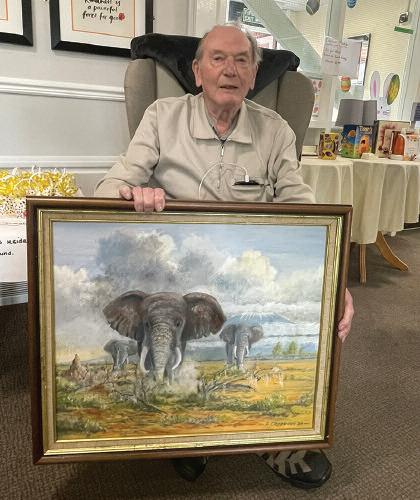
work several times and has been a member of Castleside Art Club and Rowlands Gill Art Club at various times
Despite his family increasing in size over the years – he now has four grandchildren and eight grandchildren – he is looking forward to continuing to paint whenever and wherever he can
Discussing his love of art Alan said
Creating art is a wonderful process and one I love doing I always start by doing a pen sketch first and if it is good enough I will paint it
“I love painting whether landscapes or portraits or still life it is a joyous activity and especially pleasing when other people like what I’ve produced ”
Susan Dodds, Home Manager at Stoneleigh care home, said:
“We are delighted that Alan has come to live here at Stoneleigh and we have all taken great pleasure in discovering more about his fantastic talent
His paintings on display here have been a real talking point and we will be supporting him as much as possible to continue his passion as a resident at Stoneleigh care home ”
Praise For Nationwide Project Supporting Veterans In Care Homes
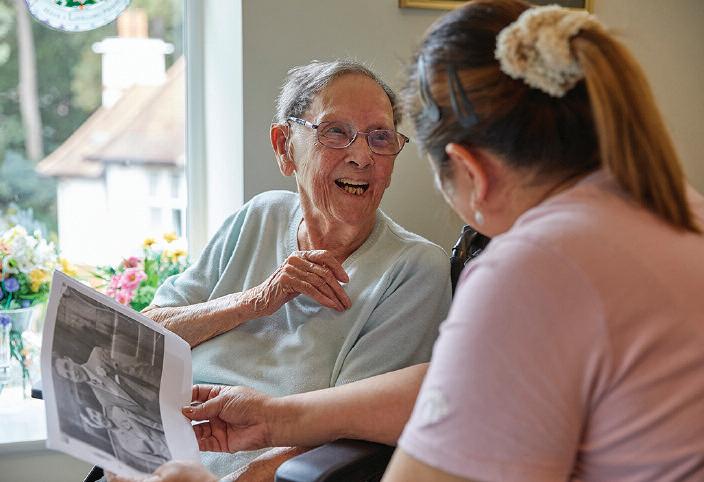
her home “to give recognition to the veterans we care for, which they
In a blog Helena said although Royal Star & Garter already cares for veterans the VFF “is about understanding the military mindset and someone s previous military service and confirms we are achieving a high level of care ” She also highlighted how the VFF leads to improved joined-up care with external clinical services and raises awareness of our veterans and partners and the challenges they face when accessing care in the secondary healthcare arena
Speaking about the impact the VFF was having at St Mary
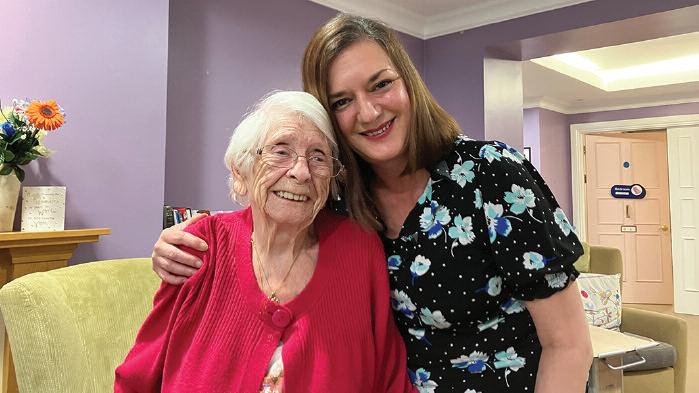

Forces
living
care
A new project is having a huge impact on the lives of ex-Armed
personnel
in
homes
–
spo-
living
their homes Helena Maher is the Home Manager at Surbiton St Mary s Riverside in the East Riding of Yorkshire, is run by Home Manager Laura Barnsley Unlike Royal Star & Garter it is a non-military care home but currently has seven veterans in its care Helena described the VFF as “a priority” while Laura said it allowed
The Veteran Friendly Framework (VFF) launched last year and aims to promote wellbeing and tackle loneliness by providing resources to care homes in England to better support their veterans The managers of two care homes with VFF status
one which provides bespoke care for veterans and one that doesn’t – have now
ken of the tangible impact it has had on ex-service people
in
deserve
care
level
past
turn improves their wellbeing and mental health I think with the VFF we’ve improved their outcomes and their experiences living in our care home She also said the VFF had encouraged St Mary’s Riverside to connect with local military groups and organisations, with residents going to Royal British Legion coffee mornings or Help for Heroes befriending volunteers coming to visit “This increased standing in the community has directly led to a boost in new residents moving into the home said Laura “I would 100% recommend the VFF to other care homes ” she added The VFF will deliver improved health and wellbeing outcomes for over 25 000 veterans in England and is a two-year collaboration between Armed Forces charities Royal Star & Garter the Royal British Legion and the NHS Veterans Covenant Healthcare Alliance (VCHA –an NHS flagship Armed Forces programme) with funding support from the Armed Forces Covenant Fund Trust The VFF has been praised by government minister Rt Hon Johnny Mercer MP and Professor Deborah Sturdy CBE the Chief Nurse for Adult Social Care in England To date 19 care homes across England are VFF approved with 78 going through the process and more than 65 are in active discussion
s Riverside Laura said the home is increasing its knowledge and expertise in how to support veterans ” and “improving the
we provide residents ” She said: “We re connecting with them on a deeper
we have a deeper understanding of their
which in
Care homes are facing up to 12 months for unpaid care home fees from deceased residents according to law firm, RG Law Residents that lose mental capacity and have no Lasting Power of Attorney (LPA) in place lose access to their funds and an application must be made to the Court of Protection for a suitable person to be appointed as a deputy to manage their affairs This can be a lengthy and costly process taking months before funds are available to clear unpaid care home fees When care home residents die the uncomfortable topic of unpaid care home fees and who is legally obliged to pay them has to be resolved It is a sensitive and complex issue and the legal obligations regarding unpaid care home fees can vary depending on several factors In many cases the responsibility of the debt falls on the estate of the deceased resident such as property savings or investments As Donata Crossfield Wills and Probate Director explains care homes are having to provide care without funding over a long period Where a resident fails to create an LPA before losing capacity and there is no immediate family to help, the situation for the resident and the care home becomes very difficult The resident cannot manage their own affairs but the care home cannot have any access to their
THE CARER | MAY/JUNE 2024 | PAGE 29
Patient Hygiene Wipes Promote An Individualised Approach To Cleansing For Those Receiving Care
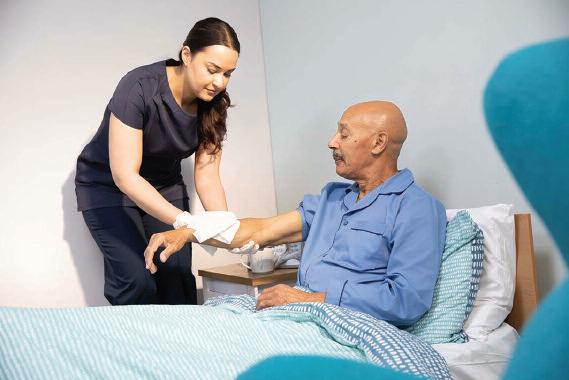
Unigloves Rebrands Its Derma Shield Workplace Skincare System

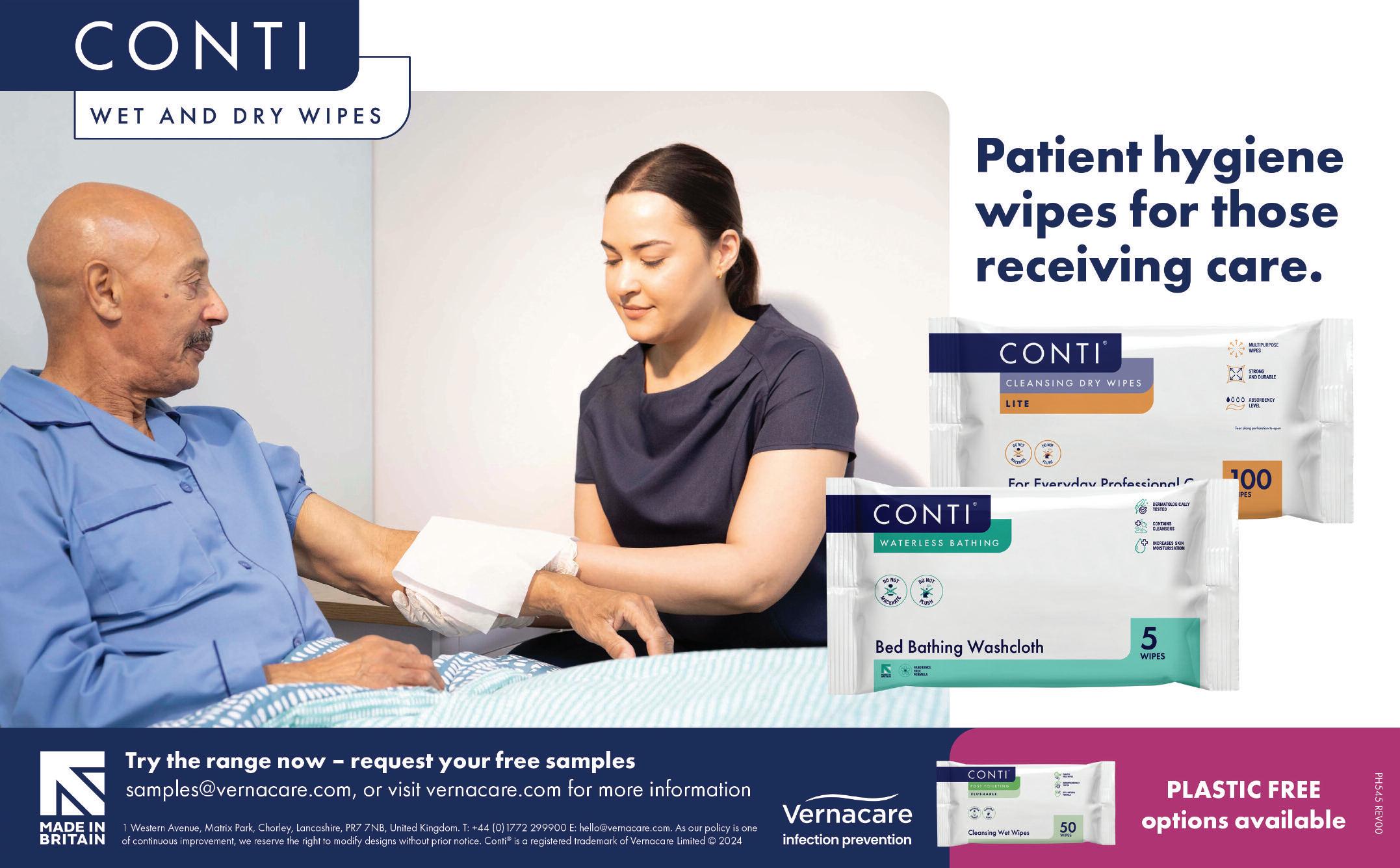
PERSONAL HYGIENE PAGE 30 | THE CARER | MAY/JUNE 2024 Providing choices for care receivers in how they are cleansed supports independence and wellbeing NICE advise adoption of an individualised approach to healthcare that is tailored to the patient’s needs and circumstances 1 The Conti® range have been developed with personalised care in mind, we believe that those receiving assistance in bathing should be able to participate in decision making around their personal hygiene by being given a range of cleansing options to best suit their individual needs Conti® offers a complete range of cleansing solutions for those receiving bedbound care Conti® wet wipes provide a selection of rinse free products featuring washcloths and shampoo caps for bed bathing hands and face cleansing wipes and plastic free wipes for post toileting The use of these products replaces the need for soap and water practices by providing a pre-dosed cleansing solution which promotes good practice in personal hygiene and infection prevention Conti® multipurpose dry wipes combine strength softness and absorbency to deliver best practice in hygiene through everyday personal care The range has flushable and maceratable plastic free wipes alongside other super soft kind to skin alternatives used with water Using the Conti® wet and dry wipes can provide the following benefits to care facilities; Eliminate cross-contamination - Products have been developed with singleuse in mind Intended to be used individually with one single-use cloth per anatomical region Save time and cost - Research suggests that a waterless bathing system provides a more efficient bathing process, delivering cost and time savings 2 Remove the risk of reusable - Disposable systems offer an alternative that overcome infection prevention and control limitations posed by reusable alternatives 3 Try the range now – request your free samples samples@vernacare com or visit www vernacare com for more information 1 NICE (2021) 2 Owen J (2015 De ivering t me and cost sav ngs through evaluat on of bed bathing practices IPS poster presentat on 3 Hallam C et a (2020)
Hand Protection specialists Unigloves has rebranded its protective workplace skincare system - Derma Shield https://uk unigloves com/collections/derma-shield Designed to protect the skin against common workplace irritants including chemicals detergents oils and greases helping to control the risk of dermatitis Derma Shield can be used across a wide range of workplace environments Safe to use inside gloves the newly rebranded range includes three different sizes of aerosol mousse – 50ml, 150ml, 500ml - and two sizes of lotion –100ml and 1000ml Manufactured to UK medical standards, Derma Shield contains pharmaceutical-grade moisturisers such as Aloe Vera and Vitamin E which work rapidly to preserve the skin's natural moisture balance Universally safe with a non-greasy finish once applied it remains on the skin for up to 4 hours despite repeated washing and can be used on all areas of the skin including the face “Derma Shield is a proven and trusted barrier solution helping protect the skin against a wide range of workplace skin irritants keeping it moisturised through the working day We are delighted to have updated the branding across the range in line with our range of industrial gloves ” said Unigloves’ MD Chris Wahlers For more information on Unigloves Derma Shield protective skincare range visit https://uk unigloves com/collections/derma-shield
PLEASE MENTION THE CARER WHEN RESPONDING TO ADVERTISING

The Importance of Nutrition and Hydration in a Care Home Setting
By Rob Henry, Head of Culinary Solutions and Compliance at

assistance with eating and drinking skills as well as the provision of meals
With that in mind, it’s essential that you re not only aware of the food and drink regulations in place but how you can build on these to improve your offering and services within a care home environment
WHAT HAPPENS IF RESIDENTS DON’T RECEIVE THE RIGHT NUTRITION?
With age malnutrition can become more of a concern It s estimated that around 1 in 10 people over the age of 65 are either malnourished or at risk Changes that the elderly go through can lead to things like a
diminished appetite or even a loss of interest in food not to mention health conditions or changing health needs that can also impact the amount of nutrition a person receives
It s important to remember that residents may be a healthy weight but could still not be getting the right nutrients they need Other signs of malnutrition might include things like muscle weakness feeling tired increased falls or even poor wound healing
What’s more older people will find it more difficult to absorb vitamin D through sunlight and so this must be considered in their diet
Similarly older adults can also be a higher risk of becoming dehydrated as they may not recognise the feeling of thirst the way they used to FOOD AND DRINK REGULATIONS FOR CARE HOMES
The Health and Social Care Act of 2008 was brought in to ensure all care home settings registered with the Care Quality Commission and complied with its requirements It’s deemed to be one of the most significant reforms of social care in decades
In particular Regulation 14 states that the nutritional and hydration needs of residents must be met WHAT CARE HOMES CAN DO
With that in mind, it’s important that care homes have the right measures in place to keep residents as healthy as possible when it comes to nutrition and hydration Here are some tips on how carers and kitchen staff can work together to further improve the system in place
• Regular assessments: Every resident will have different needs and so by carrying out frequent assessments you can determine more accurately
whether residents are getting what they need from their current meals and drinks This also gives you the chance to identify issues or changes in requirements and address it accordingly
• Personalised plans: Being able to offer personalised meal plans means that you ll be better equipped to meet the residents dietary requirements
Not only this but it also means that you can meet their needs in regards to allergies, medical conditions and also flavour and texture preferences too This can be critical to ensure an enjoyable mealtime and offer a more encouraging environment for residents to eat and drink
Supervision at mealtimes: This can be particularly crucial if residents have trouble swallowing or eating as you’ll need to support and supervise when necessary However, it can be helpful even for those who don t experience this This is because you can observe and monitor how they are with using cutlery or holding a cup and whether they have any additional needs that you could assist with
Ongoing education: It’s hugely important to carry out regular training and education so that carers can continue to recognise the signs of dehydration or malnourishment It also means they can be better placed to help residents improve their health and wellbeing
Emotional support and reassurance In some cases residents may hold back on eating or drinking because of worries with incontinence It’s absolutely pivotal that carers can give the right emotional support and are able to reassure residents on this topic
Nutrition and Hydration Essential To Residents’ Health and Wellbeing

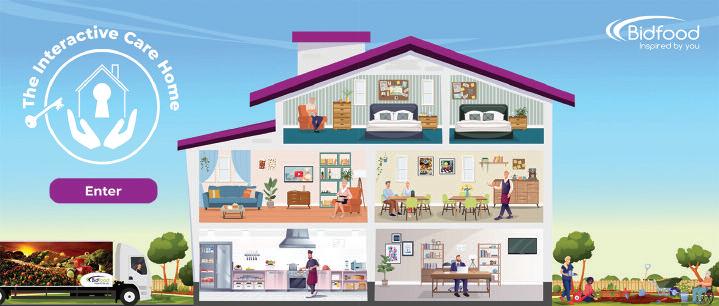
With care homes across the UK facing staff shortages and skill challenges Bidfood one of the UK s leading wholesalers has provided an all-in-one immersive support platform through the launch of its Interactive Care Home This digital initiative spotlights innovation and solutions for the six key areas found in UK care homes empowering Bidfood s customers to navigate challenges and thrive in what is an ever-changing sector There are over 16 000 care homes in the UK [1] most of which are operating with tight budgets rising food costs and limited resources Bidfood’s Interactive Care Home has been designed with this in mind delivering a unique easy-to-use platform that clearly demonstrates how the wholesaler’s services expertise and relevant ranges seamlessly integrate within a care home, all in one place A collaboration between Bidfood s Chef Development, Marketing E-commerce and Technical Service teams The Interactive Care Home places these experts at the forefront, as they talk through topics from resident dining experiences to menu planning, food waste and more Users can explore each room watching a range of videos where one of Bidfood s experts will offer their professional advice on various areas including nutrition creating innovative and delicious dishes as well as how to shop and save time using their multi-award-winning e-commerce site Bidfood Direct With over 75 interactive elements to discover users are also able to access support tools on specialist diets product guides and increase their knowledge via Bidfood s free e-learning site Caterers Campus Business Development Controller for Education & Healthcare Gavin Squires said: “We are thrilled to have launched this latest campaign for the sector Our aspiration is for this platform to become the go-to industry source where all care homes can access a comprehensive overview of the support readily available for their care home from Bidfood “We aim for it to be a place for thought leadership, product innovation, and trailblazing content The Interactive Care Home has been developed to become an integral tool for our customers as well as an innovative showcase to all care homes ” To enter The Interactive Care Home, simply click here: https://view bidfood co uk/the-interactive-care-home/?page 1 Bidfood Launches Industr y First With The Interactive Care Home, Featuring Over 75 Support Functions For Care Customers Spring has officially sprung! And with the weather getting warmer it won t be long before summer comes knocking at the door But while we look forward to greeting the much beloved warmer months with open arms an element of caution must also be granted within care homes The summer days present new opportunities for residents such as el fresco dining outdoor afternoon tea or simply a few strolls in the fresh air However to ensure that residents can enjoy these luxuries safely care operators must make certain considerations Nutrition and hydration are essential to residents’ health and wellbeing and can help prevent malnutrition and dehydration which if not carefully monitored can occur in hot weather In fact The Food Standards Agency recommends at least 6-8 glasses of fluids every day with evidence suggesting that good hydration can help to prevent falls, constipation, pressure sores, blood pressure problems and headaches Sometimes residents are reluctant to drink or may simply forget, meaning care operators need to be on the ball and find other ways to increase fluid intake One way to help residents drink plenty of water and stay hydrated is to bring residents and staff together! Get creative and have some fun whilst helping to address this important topic why not get your residents to make and stick posters around their care home highlighting the importance of staying healthy and reminding others to drink regularly? Or perhaps turn it into a competition encouraging residents to keep a tally on how many glasses of water they can drink throughout the week with a winner announced at the end But it isn t enough to just serve cups of water to your residents throughout the day Incorporating drinks into the activities and social events you have going on in your care home is a great way to support residents with hydration from afternoon tea to happy hour! For an added layer of hydration do a round of hot and cold drinks in the morning and evening to ensure residents receive their daily fluid intake with staff always on hand for those who need assistance And don’t just stop at the staff in your care home encourage any family or friends visiting to offer and have a drink with their loved one As well as the drinks you re offering, it’s important to develop a well-balanced but deliciously good menu with an array of dishes that are high in water content The likes of cucumber, watermelon, celery and lettuce are high in water content and make great salads when tossed in a tasty dressing And for something sweet after why not offer round some jelly or make up a fruit salad for event more water For more on nutrition and hydration as well as our other support tools for the care sector visit this link https://www bidfood co uk/care-homes/
For any of us maintaining a good balanced diet is key to maintaining health and general well-being However, for the elderly in a care home setting it s absolutely crucial Many residents will be reliant on carers to provide the right amount of nutrition and hydration as part of their holistic care What s more some residents will also require
EF- Group (www.ef- group.co.uk) NUTRITION AND HYDRATION PAGE 32 | THE CARER | MAY/JUNE 2024
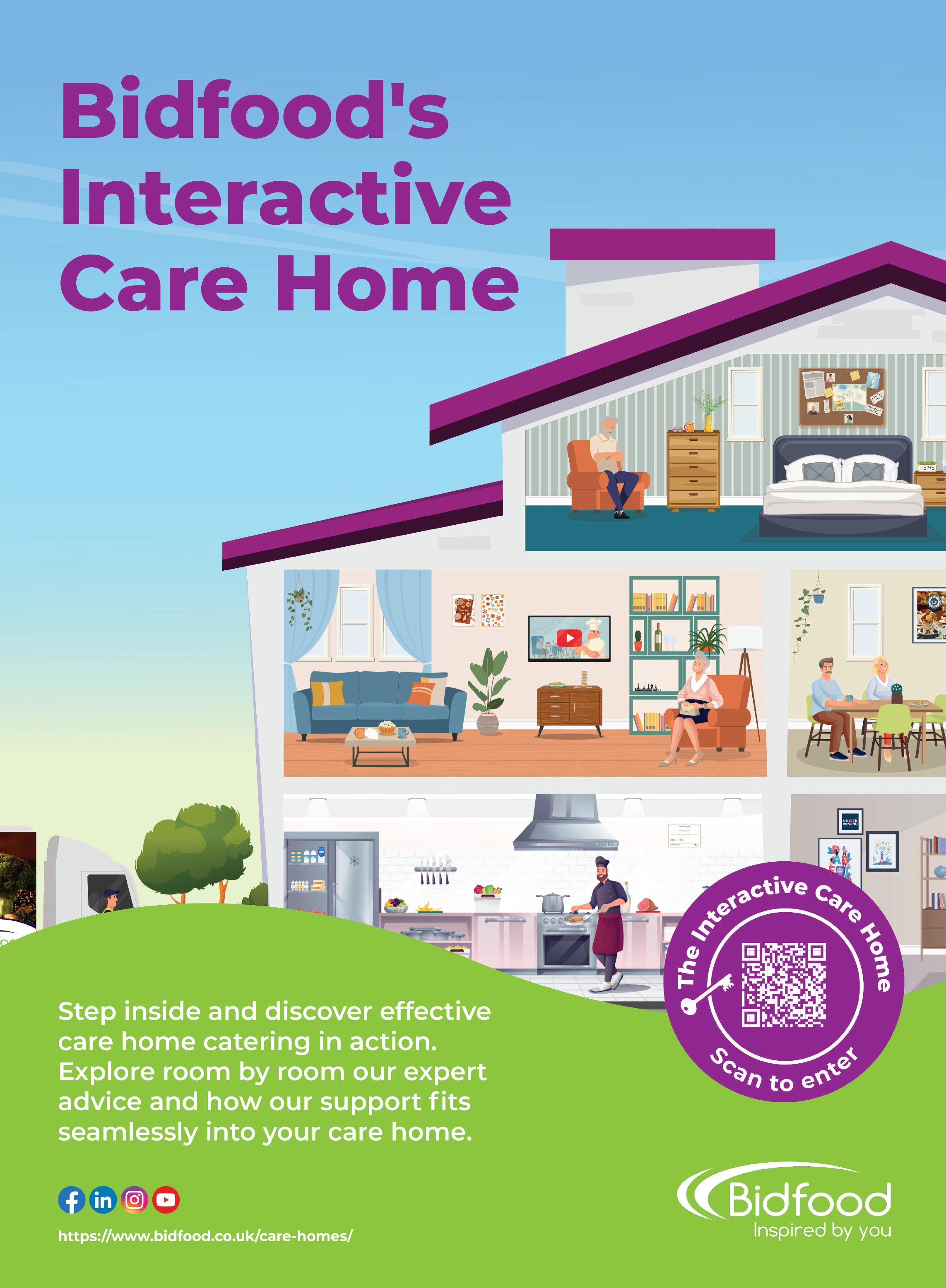
LAUNDRY SOLUTIONS
The Importance of Proper Laundr y Practices in Care Environments
Laundry is one of the major cleaning and hygiene challenges for care homes
For care homes maintaining impeccable cleanliness is more than a routine task; it is a vital responsibility The elderly and those with compromised health are particularly susceptible to infections making rigorous hygiene standards essential Professional laundry systems are engineered to meet these stringent requirements ensuring that every piece of linen from bed sheets to residents' clothing is thoroughly cleaned and sanitized
Unlike domestic machines commercial laundry systems are designed to handle large volumes with consistent efficacy They maintain precise water temperatures and use specialized detergents capable of eradicating harmful pathogens This level of thoroughness is crucial in environments where the risk of infection is high MINIMISING INFECTIONS AND CROSS-CONTAMINATION

Infection control is a critical concern in care homes Pathogens such as MRSA E coli and norovirus pose significant threats to residents Professional laundry systems play a key role in mitigating these risks by incorporating advanced features designed to prevent cross-contamination Barrier washers for instance have separate compartments for dirty and clean laundry ensuring that contaminants are contained and do not spread to freshly laundered items
Programmable wash cycles in these systems can be tailored to different textile types and soil levels, optimizing the disinfection process Furthermore innovations like ozone technology enhance sanitization while allowing for lower temperature washes, preserving fabric quality and extending the life of linens THE ROLE OF TRAINING AND SAFETY
Effective laundry management in care homes extends beyond the machines themselves Proper training for staff is critical to ensure that laundry processes are carried out safely and effectively Understanding how to use detergents correctly is a key aspect of this training Professional laundry detergents are formu-
lated to be both powerful against germs and safe for sensitive skin but improper use can diminish their effectiveness or even pose safety hazards
Staff must be trained in the correct handling and dosing of these detergents to maximize their benefits while ensuring safety Additionally, training on the use of laundry equipment helps prevent operational errors and promotes adherence to hygiene protocols
SAFEGUARDING YOUR RESIDENTS
In conclusion the importance of best laundry practices in care homes cannot be overstated By implementing effective laundry procedures care facilities can safeguard the health and well-being of residents maintain a clean and hygienic environment, and ultimately enhance the quality of care provided Prioritising proper laundry practices is a fundamental aspect of upholding the highest standards of cleanliness and ensuring the comfort and safety of individuals in care homes
P&G Professional have a suite of well-known and respected products across the sector for powerful cleaning and lower operational costs
Ariel Professional Washing Powder Antibacterial is a professional detergent specially formulated to deliver excellent stain removal and deep down cleaning at low temperature Ariel Professional delivers unrivalled cleaning and antibacterial protection at low temperatures and with short washing cycles thereby reducing energy and time costs whilst still getting things clean There is also an added benefit in that many P&G Professional products have similar names and smells as their domestic ranges giving a feeling of comfort and familiarity to residents and their families
Hygiene and infection control is vital and at the top of the agenda for care homes but we can be comforted to know we are going into battle with some of the most reliable and scientifically proven products that P&G Professional have developed with their unparalleled experience of engaging with the care sector and with the most comprehensive scientific rigour
Revolutionising Care Home Laundr y: The Genius Choice
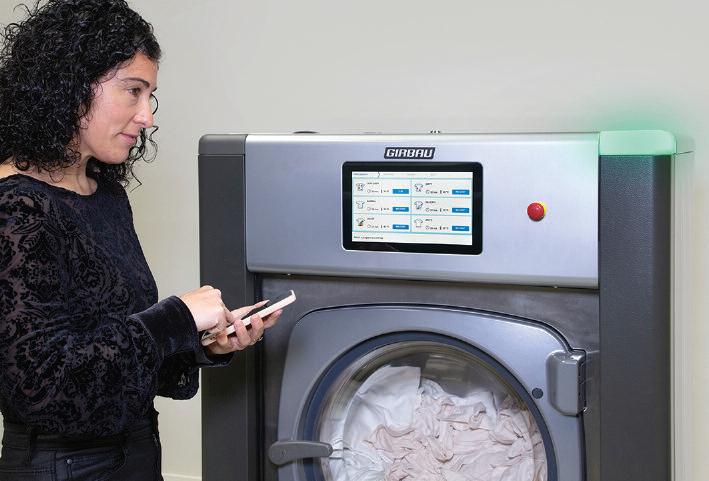

PAGE 34 | THE CARER | MAY/JUNE 2024 At Forbes Professional we understand the critical role that dependable laundry facilities play in the daily operations of any care home As a trusted industry partner we provide a reliable multi-award winning support that encompasses both reactive and preventative services for commercial laundry appliances We offer a range of servicing options; whether you opt for our comprehensive Complete Care rental solution or purchase with maintenance or simply a service contract for your existing machines we can accommodate your requirements We understand the importance of ensuring that your care home fully complies with all the relevant industry and health and safety regulations As such we can also offer gas-certification for your existing machines as well as our rented or maintained appliances ensuring that your operation is in accordance with Regulation 35 of the Gas Safety Regulations 1998 As a supplier and service partner for Miele, Primus, SpeedQueen, Heusbsch and many leading brands, we bring you unparalleled expertise and access to genuine parts ensuring that your equipment receives the highest standard of care At Forbes we have an expansive team of in-house qualified electrical and gas engineers allowing us to deliver a consistent level of service With a nationwide network coordinated from our headquarters in Surrey our engineers provide a swift and efficient support All our vans carry key components and spare parts and are tracked to enable us to assign calls according to our engineers proximity to site With our extensive reach across the UK, we ensure that wherever your care home operates our skilled engineers are just a call away Our commitment to a rapid response means minimal downtime for your laundry operations which we know is key to keeping your care home running smoothly Whether you rent lease or purchase laundry equipment it is important to secure a reliable partner for regular machine servicing That not only helps maintain optimal performance of the laundry appliances, it also prolongs the equipment s life expectancy Furthermore proactive and preventative maintenance helps to reduce costly repairs and disruptions as well as reducing waste and minimising your carbon footprint With almost 100 years’ service experience, you can trust Forbes to support your care home and help you maintain stringent hygiene standards www forbespro co uk info@forbes-professional co uk 0345 070 2335 Forbes Professional: Your Trusted Laundr y Ser vices Partner Ensuring clean and comfortable clothes and bedding for care home residents is a fundamental requirement, alongside the imperative of achieving 100% effective laundry disinfection An increasing number of care homes are also choosing to clean and finish staff workwear and uniforms in their on-premise laundry In today s landscape managing operating costs and enhancing sustainability essential necessitating a focus on reducing laundry energy and water consumption While all washing machines may appear similar at first glance, the latest advancements in smart technology have transformed the landscape Girbau s GS7 Genius Internet-enabled washer range sets a new standard for energy efficiency and innovation with capacities ranging from 9 to 32kg The next-generation washers are engineered to minimize water detergent and energy usage while maximizing productivity With a high spin speed capable of achieving up to 450G extract force they ensure remarkable water extraction faster drying and reduced energy consumption For a typical machine completing eight cycles per day the saving can be as much as £725 a year based on an electricity price of 25p per kWh The tangible benefits are significant By reducing drying time by at least 10% and cutting drying energy consumption by up to 30% the Genius GS7018 sets a new benchmark for efficiency Compared to leading competitors it consumes substantially less energy per load cycle translating to substantial annual savings
an optional integral weighing system ensures precise load measurement automatically adjusting programs to optimize cycle time, minimize water and chemical usage, and enhance productivity Durability and programmability are further hallmarks of Genius washers which also offer automatic chemical dosing The innovative Care Plus Drum extends linen life and minimizes tangling while ergonomic design features such as a wide door opening facilitate easier loading and unloading The user-friendly 10-inch colour touch screen is designed to work with gloved hands Girbau's Sapphire remote-control software enables seamless management production reporting and real-time data analysis from any device ensuring operational efficiency and compliance with thermal disinfection protocols essential for care homes For energy efficient drying Girbau s superbly engineered ED series dryers ensure all items are dried safely uniformly efficiently and cost-effectively Their unique
radial
axial airflow for maximum efficiency, reduced cycle times
lower energy costs Cabinet insulation and a double-glazed door also prevent heat escaping Tel: 01462 427780 Email: sales uk@girbau com Website: www girbau com
Moreover,
Transflow technology combines
and
and



INTERACTIVE ACTIVITIES
The Transformative Role of Music in Care Communities

In life where memories intertwine with the present there's a profound need for companionship understanding and support – especially for those navigating the complexities of dementia We know that Dementia isn t just a medical condition; it s a complicated journey for over 90 000 people in Scotland today marked by profound emotional upheaval and huge uncertainty As such we believe that approaches to this delicate type of care must transcend clinical protocols and embrace the little things when it comes to human experience For example music!
When the rhythm of life slows to a gentle rhythm in the quiet corridors of care facilities, music can be a powerful force and breathe vibrancy and vitality into the lives of those who need it most What we have found is that for those navigating the complexities of dementia, the role of music
surpasses mere entertainment it becomes a lifeline A conduit for connection and a source of comfort
In my time in my role I personally have witnessed first-hand the great impact of music in nurturing mental physical and emotional wellbeing among the 3 500 people benefiting from our Dementia Day Care Services every year We have all been exposed to music in some way in our lives –whether by listening to recordings playing an instrument attending concerts or dancing From lively sing-alongs to serene music therapy sessions partaking in a symphony of experiences when living with dementia can awaken hidden memories, stir dormant emotions and reignite feelings of joy and camaraderie
In fact a study comparing standard care to regular singing or music listening sessions over 10 weeks in 89 people with dementia (type not specified) music sessions improved general cognition (MMSE score) attention and executive function compared to standard care Singing appeared to evoke personal remote memories by increasing recall of names of children friends and immediate short story recall
One of our flagship programmes the Music Wellbeing Programme stands as a testament to the power of communal music-making Led by talented musicians and dedicated staff members this dementia-inclusive activity serves as a sanctuary where residents and caregivers alike gather to share stories create melodies and forge lasting connections Through familiar tunes, we witness the emergence of radiant smiles, the tapping of feet, and the stirring of long-forgotten memories, as residents reclaim moments of joy and belonging Music really does serve as a universal language for us all overcoming factors such as age cognition and physical ability
Could your centre or service partner with local entertainers or other community organisations to incorporate music within your care community? From lively dance performances to intimate acoustic sessions these
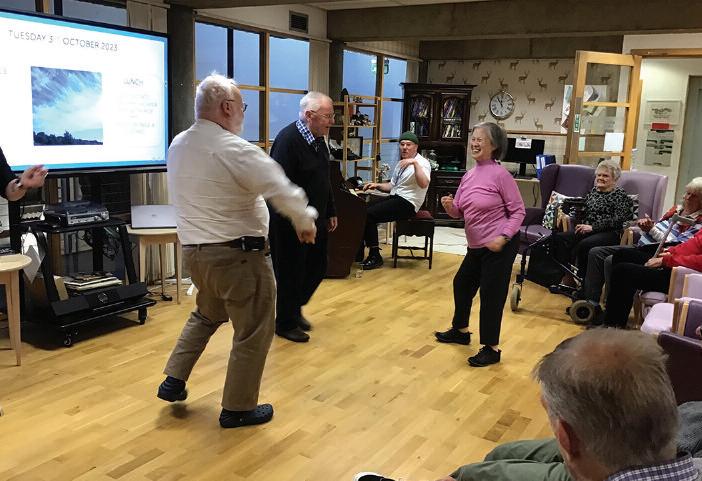
collaborative endeavours create an environment with an infectious energy, lifting spirits and fostering a sense of collective celebration
The Eric Liddell Community stands as a centre of hope, redefining the landscape of dementia care with innovation compassion, and inclusivity Our namesake – a Scottish legend, sports person and missionary – strived to create a world where no one felt isolated or alone Where every individual's journey is met with dignity and respect
Based on the substantial evidence that music offers numerous health benefits we’d highly recommend that your establishment considers introducing music entertainment and community engagement Together we can all create moments of joy connection and meaning for those who need it most
Recreo VR - Bringing a Change of Scener y to Care
Recreo VR’s innovative service has been proven to enhance the mental and social well-being of those living with dementia through person-centered virtual experiences Our headsets are a fun and exciting way to personalize care enhance activities and improve the quality of life of your residents
We partner with the Alzheimer’s Society and our service has been co-designed with those affected by dementia offering an intuitive VR interface for carers to select experiences and environments that are meaningful, engaging, and suitable for residents to enjoy In a recent evaluation of our product with over 100 people living with dementia 97% of residents engaged with our headsets 86% said they enjoyed it and wanted to access VR more in their care Our headsets also helped residents recall memories improved mood and wellbeing over
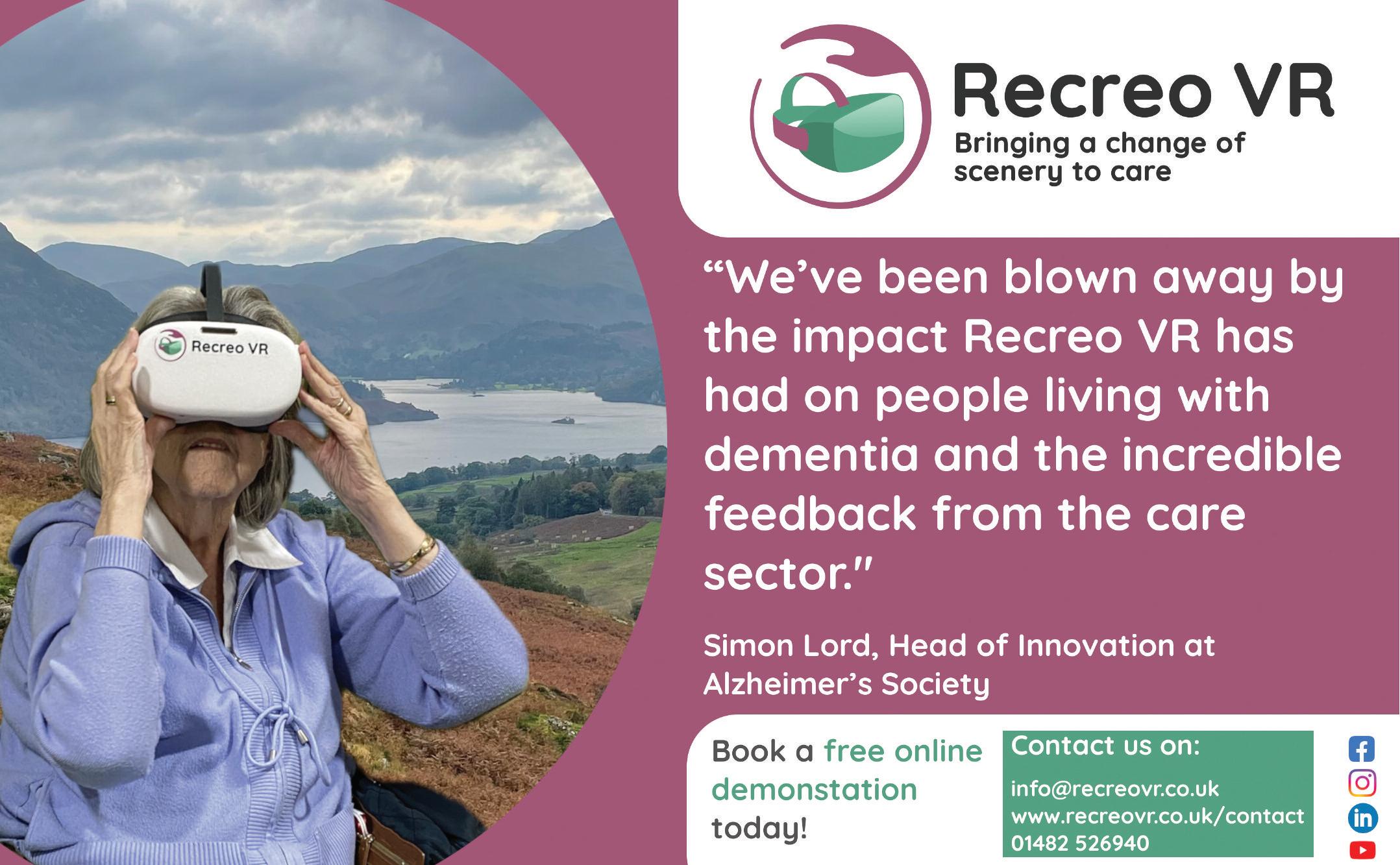
efficiently calmed distressed residents and de-escalate
VR is
can be really effective during one-to-ones in group sessions alongside themed activities and in reminiscence sessions All headsets come with our full support and training to help integrate VR into your everyday care plans and activities For more information or to schedule a demonstration, contact us at info@recreovr co uk or give us a call at 01482 526940 Visit our website at www recreovr co uk to discover the possibilities that Recreo VR can unlock for your care facility
sustained periods of time, and quickly and
challenging behaviors
an impactful activity and
By Paul Drury, Chief Operating Officer at The Eric Liddell Community (www.ericliddell.org)
PAGE 38 | THE CARER | MAY/JUNE 2024
Coordinate Activities For Elderly People and Seniors with Hashtag Quiz

ries
✓ Simplicity Skip the complicated setups No Ethernet cables or equipment authorisation required Just sign in and start playing
✓ Ready-to-Go Entertainment: Access a plethora of quizzes without the last-minute rush to find or produce questions Just search select and play
✓ 24/7 Usage Play as many times as you want whenever you want wherever you want There are no restrictions!
and did I mention traditional (and Party) Bingo as well as Play Your Cards Right is included within the software subscription!
Be part of a growing community of quiz lovers in care homes, who've upgraded their game with HQ FM Pub Quiz Software
Sign up now to enhance your guests quiz experience and join the ranks of satisfied quizzers who ve found the perfect blend of convenience ease and competition
Ready to transform your quiz sessions? Click here (https://admin hq fm/account/register) to start your journey with HQ FM and bring the excitement of a quiz directly to you wherever you are
Find us TODAY and access your FREE 7-day trial at: https://hashtagquiz co uk/quiz-for-the-elderlyand-seniors/
Music for Health: Enhancing Lives Through Musical Workshops INTERACTIVE ACTIVITIES
Founded in 2001 Music for Health has been making significant strides in improving the well-being of residents in Care Homes and Nursing Homes across England and Wales These workshops are thoughtfully designed to engage participants in a variety of activities including dancing with instruments singalongs and interactive quizzes
The program s multifaceted approach is particularly beneficial for residents suffering from dementia and Alzheimer's Music known for its therapeutic properties provides a stimulating environment that promotes both physical and mental activity Dancing helps improve motor skills and coordination while the rhythmic aspects of music can trigger memory and emotional responses providing a sense of familiarity and comfort
Sing-alongs create a communal atmosphere encouraging social interaction and reducing feelings of isolation The quizzes not only entertain but also stimulate cognitive function challenging the brain and helping to maintain mental acuity
Overall, Music for Health’s workshops offer a holis-

tic approach to care ensuring that elderly residents remain active engaged and socially connected By bringing the joy of music into care homes this initiative continues to make a profound impact on the lives of many fostering a sense of community and wellbeing
To expand our reach and impact Music for Health is currently recruiting more Area Directors to join our team across the United Kingdom If you have a passion for music and a desire to make a difference in the lives of others, we encourage you to contuct us and help us bring the healing power of music to more communities
Contact Carl on 07712 669456, email musicforhealthrecruitment@gmail com or visit www musicforhealthteam co uk




HASHTAG QUIZ and introducing the HQ.FM QUIZ SOFTWARE SIMON WILSON 07941 322339 BINGO & PLAY YOUR CARDS RIGHT - ALL INCLUDED SIMPLE PLUG & PLAY TECHNOLOGY INSTANT ACCESS TO QUESTIONS, QUIZZES AND MORE HashtagQuiz.co.uk HashtagQuiz HashtagQuiz OPS@HASHTAGHOSTS.CO.UK HQ FM is our allin-one, browserbased quiz and bingo software, requiring nothing more than an internet connection and an audience Our browser software allows you to create quizzes with age-appropriate questions a host of game modes and in-person/ digital attendance This versatility means that nobody has to miss out so residents can play whether they are in front of a big screen or in their rooms Adding memory games and trivia competitions to your care home activities can do wonders for confidence, entertainment, and keeping minds sharp Alternatively if you want to keep it low-tech then simply print out your game and hand out the pens –ready for a traditional quiz The choice is YOURS With HQ FM you can bring the fun of quiz directly in your care home Our internet-based quiz software lets you play on any device with internet access ensuring you re never limited by location or the need for specialised equipment Here s why HQ FM stands out from the rest
Flexibility: Play on any internet-enabled device – no apps no extra costly hardware just pure quiz enjoyment This makes it easier to answer the question
the need of pens or paper
you want Its up to you
Tech
✓
without
if
✓ Reliability:
hiccup during your game? No wor-
our quiz software recovers seamlessly on any device by a simple refresh of the page
THE CARER | MAY/JUNE 2024 | PAGE 39

Activities to Share
Tired of the same old song and dance when it comes to planning engaging activities? Well fear not! Activities to Share is here to sprinkle some excitement into your daily routine
If you ve been feeling like you re stuck in a creative rut we ve got the antidote Picture this a wonderland of activity ideas free downloads that are basically the golden ticket to fun and a treasure trove of products that'll make your heart skip a beat (in a good way)

We get it – after a while even the most fantastic activities can start feeling a bit blah That's why we've scoured the corners of creativity to bring you fresh fabulous ideas that'll have you and your crew grinning from ear to ear
Our website, activitiestoshare co uk, is your go-to haven for all things fun and engaging Need a burst of

The Role Of Memor y Lane Games In Person-Centred Care Planning For
Digital therapeutics can be effective and efficient tools to enhance and support care plans in many different ways including intervention and management of physical well-being cognitive stimulation emotional and mental health and clinical monitoring
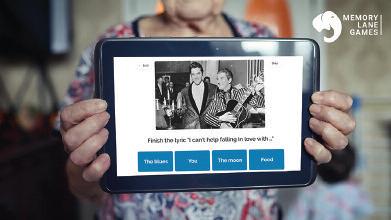
Memory Lane Games as an example uses therapeutic interventions driven by specialized software that helps those living with dementia and their care teams manage specific needs and improve clinical outcomes through dementia-specific games The app is an adaptive solution which is tailored over time to individual needs More specifically it makes for more effective care delivery in the following ways
Creating Engagement by employing personalised and localised games to not only trigger positive memories but also foster improved socialisation address social isolation and improve communication and understanding of a person s likes dislikes and needs
Supporting health equity with multinational multicultural multi language localised content
Through its ava lability and portab lity the app can be employed at a moment’s notice, when it is most
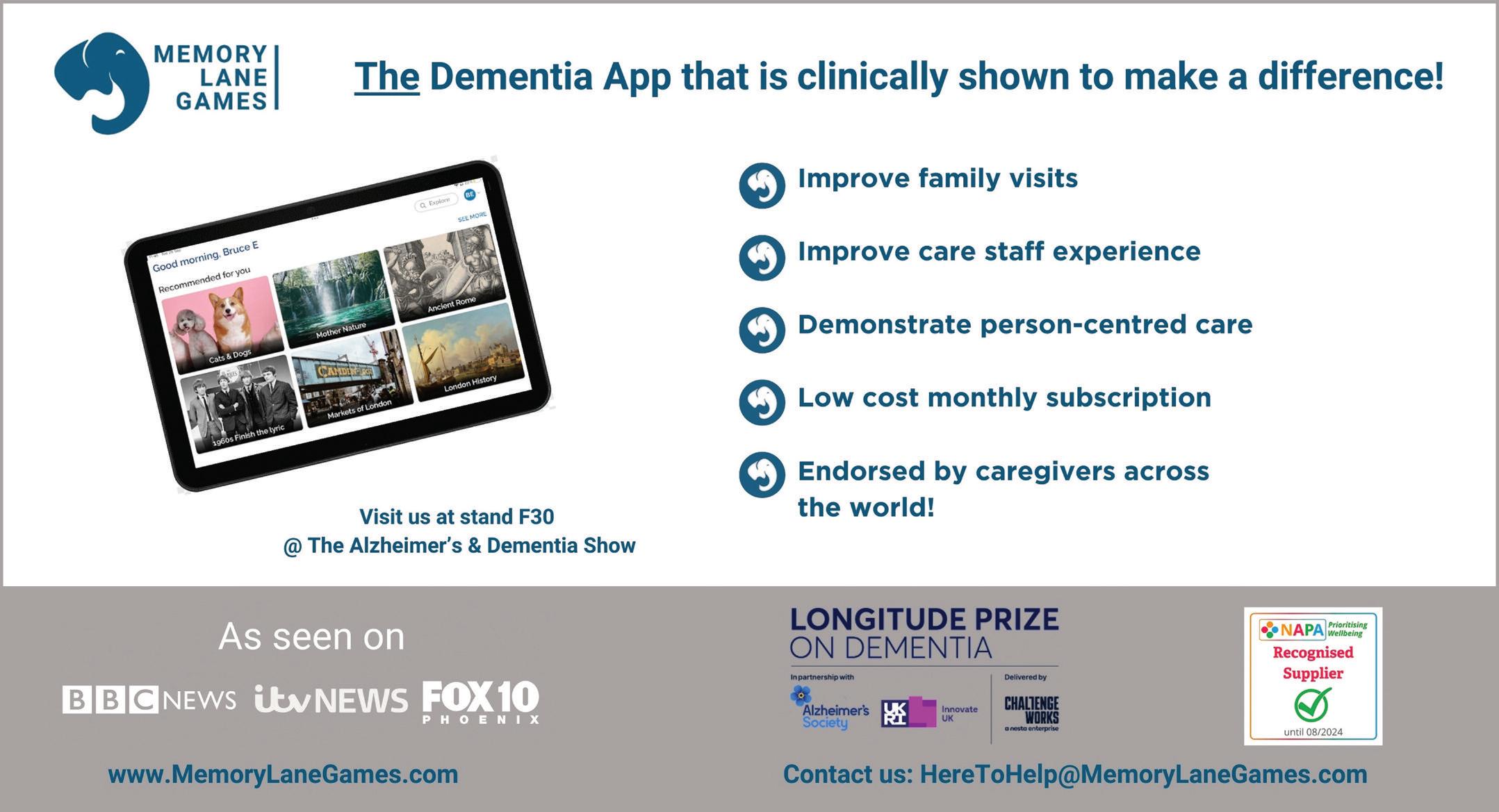
PAGE 40 | THE CARER | MAY/JUNE 2024
inspiration? We ve got your back Looking for activities tailored to different abilities? We ve got that covered too! But wait there s more! We ve teamed up with carers and activity coordinators across the land to ensure that every product and idea we offer is top-notch and practically oozing with fun And if you ve got a creative itch that needs scratching we re here to help you bring your unique ideas to life! So don't let boredom sneak in Join us on this adventure of "going the extra smile" because let's face it smiles are the best currency around here See all of the above here at www activitiestoshare co uk
needed such as during periods of agitation or sundowning Operated on Apple and Android tablets and smartphones it doesn t even need an internet connection once set up When connected to a TV it can also be used as a group activity Support for the caregiver in the form of bite-sized guidance videos created by dementia nurses and Speech and Language Therapists are built in and can be accessed anytime Back office data reporting incorporates a Reminiscence Journal for each user This attractive document covering an individual s activity can be emailed to famil es or printed and added to care plans to demonstrate person-centred care and help with introduction of new staff In Clinical Trial: 92% of carers felt the app made them more relaxed & 67% felt it made them happier! If you are interested in learning more about why care facilities dementia programs in-home carers and families around the United Kingdom United States and Canada are using Memory Lanes Games to support personalised care plans please contact us at HereToHelp@MemoryLaneGames com or visit our stand F30 at the Alzheimer s and Dementia Show
Dementia INTERACTIVE ACTIVITIES PLEASE MENTION THE CARER WHEN RESPONDING TO ADVERTISING
Timeless Presents - Enhancing Lives Through Connection and Engagement
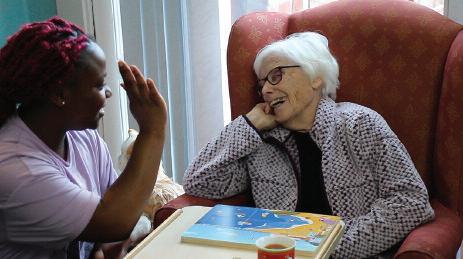
After her father s passing from Alzheimer s Sharon Daltrey and her husband Chris founded Timeless Presents a company devoted to encouraging engagement and communication for those living with dementia by promoting cognitive stimulation emotional engagement and sensory assistance Drawing from their personal experiences and informed by the challenges her father faced, Sharon and Chris embarked on a mission to make a difference in the lives of individuals currently living with dementia The Activity Coordinator at Forbury Residential Home had this to say “We won some prizes in a competition and our residents really enjoyed them The Curiosity Box is amazing for one of our residents who continually claps her hands Since having the Curiosity Box she has been occupied with it and engaged in a meaningful way Our residents are also loving the puzzles and coloring books Thank you so much for giving our residents a better quality of life At Timeless Presents Sharon and Chris are dedicated to developing innovative solutions that promote meaningful interaction and enhance quality of life for individuals with dementia By adopting principles discovered during her father s later stages of Alzheimer s and incorporating current research, Timeless Presents designs familiar and accessible activities that inspire reminiscence and positive practices without requiring any training For example their Sentimental Seaside Puzzle’ is a familiar activity that has been adapted to overcome sensory difficulties that those with dementia may have while incorporating a vibrant design that is familiar and may prompt conversation and reminiscence In a significant milestone Timeless Presents recently achieved accredi-
Focus Games - Game Based Training for Ever y Situation
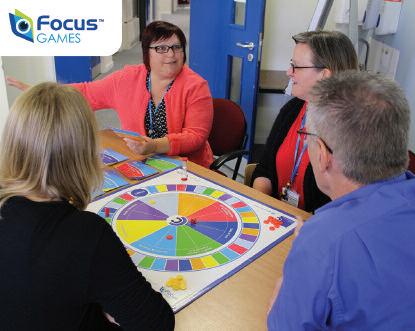
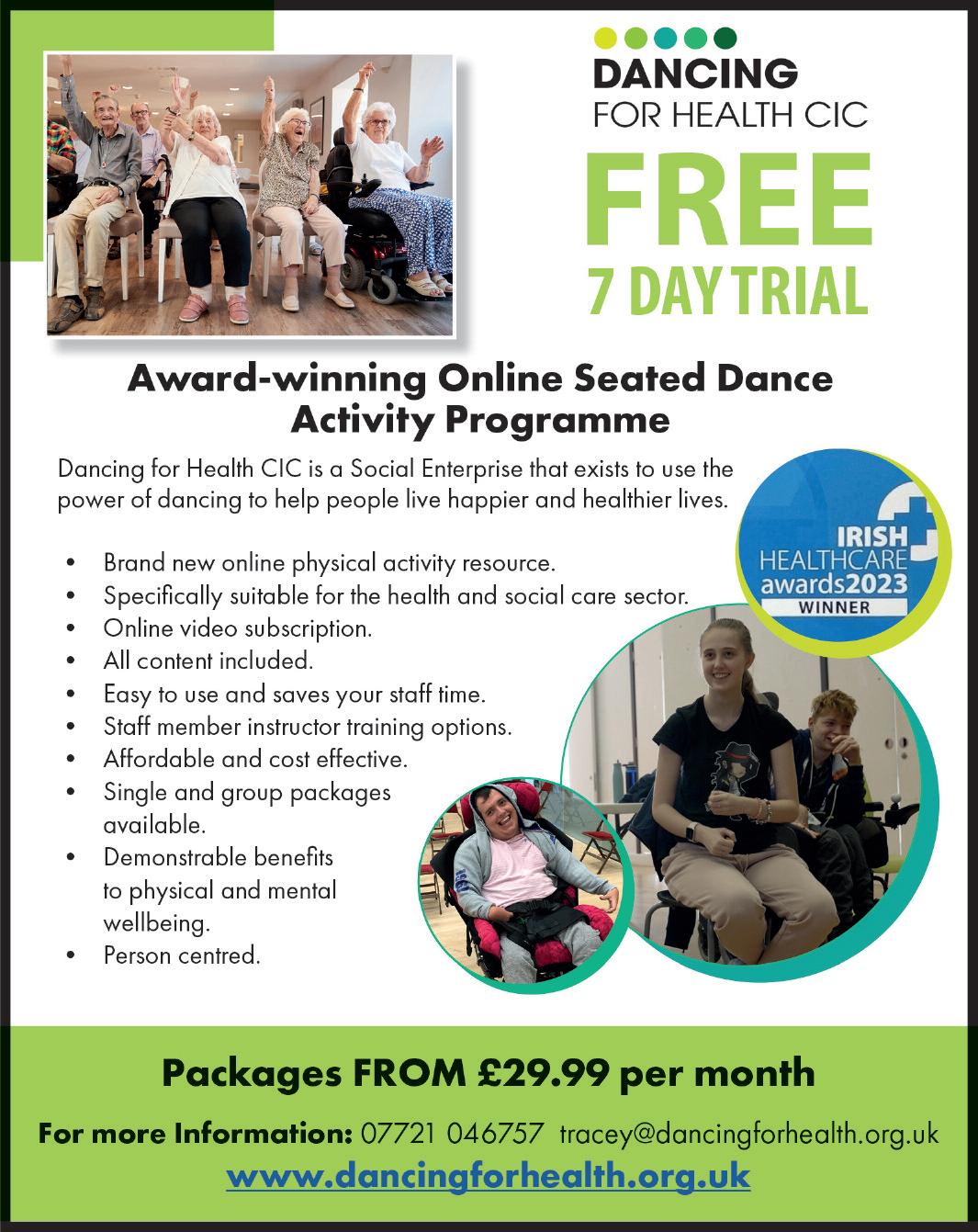
tation from the internationally renowned Dementia Services Development Centre (DSDC) for three products being the first time that they had assessed any activities This accreditation underscores the company s commitment to creating dementia-inclusive products that meet the highest standards of quality and effectiveness They will be exhibiting at stand A16 at The Alzheimer s & Dementia Show on 14-15th June 2024 where you will be able to meet them see their products and get a first look at their Timeless Train Set prototype
With a focus on accessibility and impact Timeless Presents aims to empower individuals with dementia and their caregivers to navigate the challenges of dementia with dignity and joy Through their innovative approach and dedication to excellence Timeless Presents is shaping the future of dementia care one meaningful interaction at a time 07936 408 941
New Award-Winning Seated Dance Activity Programme


THE CARER | MAY/JUNE 2024 | PAGE 41
ACTIVITIES LEADING THE WAY: Enhancing Lives through connection and engagement 07936 408 941 connect@timelesspresents.com www.timelesspresents.com Accredited by the Dementia Ser vices Design Centre, our designs are engineered to empower individuals facing cognitive and sensor y challenges, to foster meaningful connections and enhance their quality of life
INTERACTIVE
com www timelesspresents com
connect@timelesspresents
Dancing for Health CIC are offering a FREE 7 day trial of their Award-winning Online Seated Dance Programme This new physical activity programme is specifically suitable for older or disabled people in health and social care settings The programme is a digital intervention with evidence based proven benefits in both physical and mental wellbeing With just a push of a button your staff can access our pre-recorded videos through our website members’ platform All the activity content is included in our programme, which will save your staff time in developing their own content and enable them to offer a new and fun activity that meets clients’ wellbeing needs They only have to join in the routines with the clients to encourage engagement The platform allows unlimited access It is person centred as the sessions can be tailored each time and participants can choose their favourite routines It can be used for individual clients or delivered in a group setting We offer a variety of music genres and different tempos Pick and choose the tracks suitable for your clients New routines are added regularly The programme is affordable and cost effective with prices starting from only £29 99 per month Single and group subscription packages available We also offer staff training options where your staff are supported through our accredited training programme Visit www dancingforhealth org uk Focus Games are the leading game developers focused on education for healthcare staff and patients Game-based learning is an innovative approach to education that leverages the principles of games to create engaging and interactive learning experiences This approach has gained popularity in recent years due to its ability to motivate learners and improve retention rates Healthcare staff can benefit significantly from game-based learning, as it can help them acquire new knowledge and skills in a fun and engaging way The key benefits of gamebased learning for all healthcare staff are: 1 Enhanced engagement 2 Improved knowledge retention
Safe learning environment 4 Customizable learning experience 5 Collaborative learning With over 20 years of experience we have developed games aimed at improving knowledge and outcomes and have won numerous awards for our innovative approach Visit our website to learn about over 150 existing games, or get in touch to discuss creating a unique game or simulation to meet your needs We also have a unique commercialisation model which means your game idea can also be a revenue generator Find out more at www focusgames com or see the advert on the front cover of this issue
3
A Comprehensive Approach to Managing Falls Among Elderly Residents: A Nursing and Operational Perspective
By
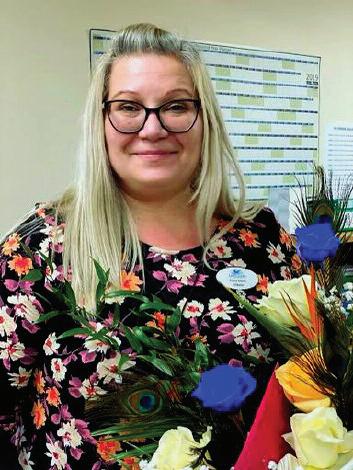
As the Director of Operations and Commissioning at Langdale Care Homes, and a seasoned nurse with over 20 years in the healthcare industry, I have witnessed first-hand the challenges posed by falls among elderly residents It is a subject close to my heart, and I feel it is of utmost importance to share our comprehensive and sensitive approach to this matter
Falls can have devastating effects on the physical, mental, and emotional health of our elderly residents leading to injury hospitalisation and a decline in confidence and independence However they are not an inevitable part of ageing With effective strategies and due diligence we can significantly reduce the risk and impact of falls Our approach is rooted in individualised care Each resident is unique and so too are their risks and vulnerabilities A thorough and personalised risk assessment is the cornerstone of our falls management strategy The assessment covers a wide range of areas from physical health mobility and medication to environmental factors within the home
In terms of physical health we pay keen attention to conditions known to increase fall risk such as poor vision arthritis and neurological impairments Regular health check-ups coupled with personalised exercise programmes to improve strength and balance have proven highly effective Our team works closely with residents ensuring they feel comfortable and confident in performing these exercises
Medication can also significantly influence fall risk As a nurse I understand the complex interactions between various drugs and how they can affect balance and coordination Therefore we regularly review residents'
Fall Savers - Affordable Fall Monitoring Solutions



medication regimes liaising with GPs and Pharmacists to ensure any potential risks are mitigated We also recognise the essential role of the environment in falls prevention Simple adjustments like improving lighting, reducing clutter and installing grab bars can make a significant difference We continuously assess our home's environment to ensure it is as safe and supportive as possible Communication, I believe, is at the heart of successful falls management It involves regular dialogue between our team residents, and their families We encourage our residents to express their fears and concerns regarding falls empowering them to take an active role in their care Education is another pillar of our approach We provide ongoing training to our staff, ensuring they are up to date with the latest evidence-based practices in falls prevention This includes understanding the complex interplay of factors contributing to falls and how to respond effectively when a fall does occur
have actively participated in falls management projects like the Winn Care Cushions and ISTUMBLE pilot These innovative initiatives use advanced technology to prevent falls and minimise their impact enhancing quality of life for residents I have also attended the Derbyshire provider forum trainings on Falls Prevention equipping me with essential knowledge and skills My involvement not only aids in proactive falls prevention but also in providing effective empathetic responses when falls occur This continuous learning and improvement in falls management ensures optimal support and care for our residents Through our robust falls management strategy we have seen a significant reduction in falls alongside an improvement in our residents confidence and quality of life However we never rest on our laurels We continuously strive to learn improve and innovate driven by our commitment to providing the highest quality care to our residents at Langdale Care Homes In conclusion managing falls among elderly residents requires a comprehensive individualised and proactive approach It involves regular risk assessments environmental modifications effective communication and ongoing education As care providers it is our duty to ensure our residents can live their lives with dignity independence and confidence In doing so we not only reduce the risk and impact of falls but also enhance the overall wellbeing of our residents The journey to effective falls management is ongoing but with each step we take we move closer to our goal of a safer happier and healthier home for our elderly residents
I
- BSN (Band 8): Director of Operations and Commissioning, Langdale Care Homes Group (www langdalecarehomes co uk)
MONITORING Fall Savers® are an experienced market leading healthcare provider of resident safety solutions for over 15 years FALL SAVERS ® WIRELESS MONITOR Eliminate all cables with our new generation falls management solutions! Upgrade your falls programme with the latest technology from Fall Savers® The NEW Fall Savers® Wireless eliminates the cord between the monitor and sensor pad This results in less work for nursing staff improved safety for patients and reduced wear and tear on sensor pads Wireless advantages include the ability to use one monitor with two sensor pads simultaneously and support for many new wireless devices BENEFITS INCLUDE: Safer for patients; less work for staff Bed and chair pads available One monitor works w th two sensor pads Integrates w th most nurse call systems A variety of options including: Call button Pager Floor sensor mat Wireless door/window exit alerts TREADNOUGHT ®FLOOR SENSOR PAD The TreadNought® Floor Sensor Pad is built to last with a durable construction that far out lasts the competition Our anti-bacterial floor sensor pad is compatible with most nurse call systems or can be used with a portable pager to sound an alert when a person steps on to the sensor pad Caregivers typically place the sensor pad at the bedside, in a doorway or other locations to monitor persons at risk for falls or wandering An optional anti-slip mesh reduces the potential for slippage on hard surface floors FEATURES INCLUDE: Connects directly to most nurse call systems High Quality anti-bacterial Floor Sensor Pad Large S ze Pad Measures (L) 91cm x (H) 61cm Options (sold separately): Anti-slip mesh for hard surface floors See the advert on this page for further details or visit www fallsavers co uk
Elena Martin
NURSE CALL AND FALLS
PAGE 42 | THE CARER | MAY/JUNE 2024
NURSE CALL AND FALLS
Reducing Falls with Bide
Dr Tom Adler was a GP for 30 years He often witnessed the devastating effects of accidental falls on the faller their carers and also the resource implications for the NHS and Social Care
Tom says “Falls

“Although there were many innovations
Stay Safe with Smart Wireless Nurse Call
In
ply chain problems with the
and
sion of
alarming global factors
increasing costs of living and other more local issues which have driven up the rate of inflation over the last few years The impact of this meant that most manufacturers of electronic products had to increase their prices as costs spiralled This of course has impacted the end user The most dramatic impact has been on the Care Industry An industry that has lacked the support it desperately needs in these trying times
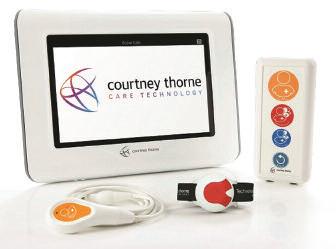
Courtney Thorne at the same time took a strategic decision to take a close look at our core products right down to component level the objective being to make us less vulnerable to future global supply chain issues, and to reduce the cost of each product with the amin of ensuring that we deliver the same high quality product at a cost protected price We had to ensure that this would happen without jeopar-
dising the superb levels of support we provide to our valued customer base
This ground up review involved all departments from Research and Development right through to the Field Service team (and everything in-between) This in-depth collaboration took time as we had to ensure that each and every element was refined perfected and tested to our (and our customers) rigorous requirements Whilst many organisations have limited-time or end of product line offers we are very pleased to announce a price reduction on our core Connect and Connect Health Nurse Call system ranges With flexible terms full integration with Care Apps celebrated service delivery and the most reliable and robust solution now at a new lower price there has never been a better time to talk to us about a new nurse call system For more information email us at: info@c-t co uk or see the advert on this page
Reducing nighttime falls for your loved ones
33% of accidental falls are at night
• Automatically plays voice messages to remind loved ones to take care when they wake up
• Lights up gently to help navigating in the dark
• Suitable for use at home and in care homes
EXAMPLE VOICE MESSAGES:
• “David, take your time before you stand up, we love you”
• “Don’t get out of bed Emma Press your buzzer, we’ll come and help you”
Simple installation:
1 Plug into power socket
2. Record up to 5 personalised voice messages
3. Place by bedside
Peace of mind for you, independence for your loved ones.
Tel: 0114 437 1298 Email: hello@getbide com Website: www.getbide.com
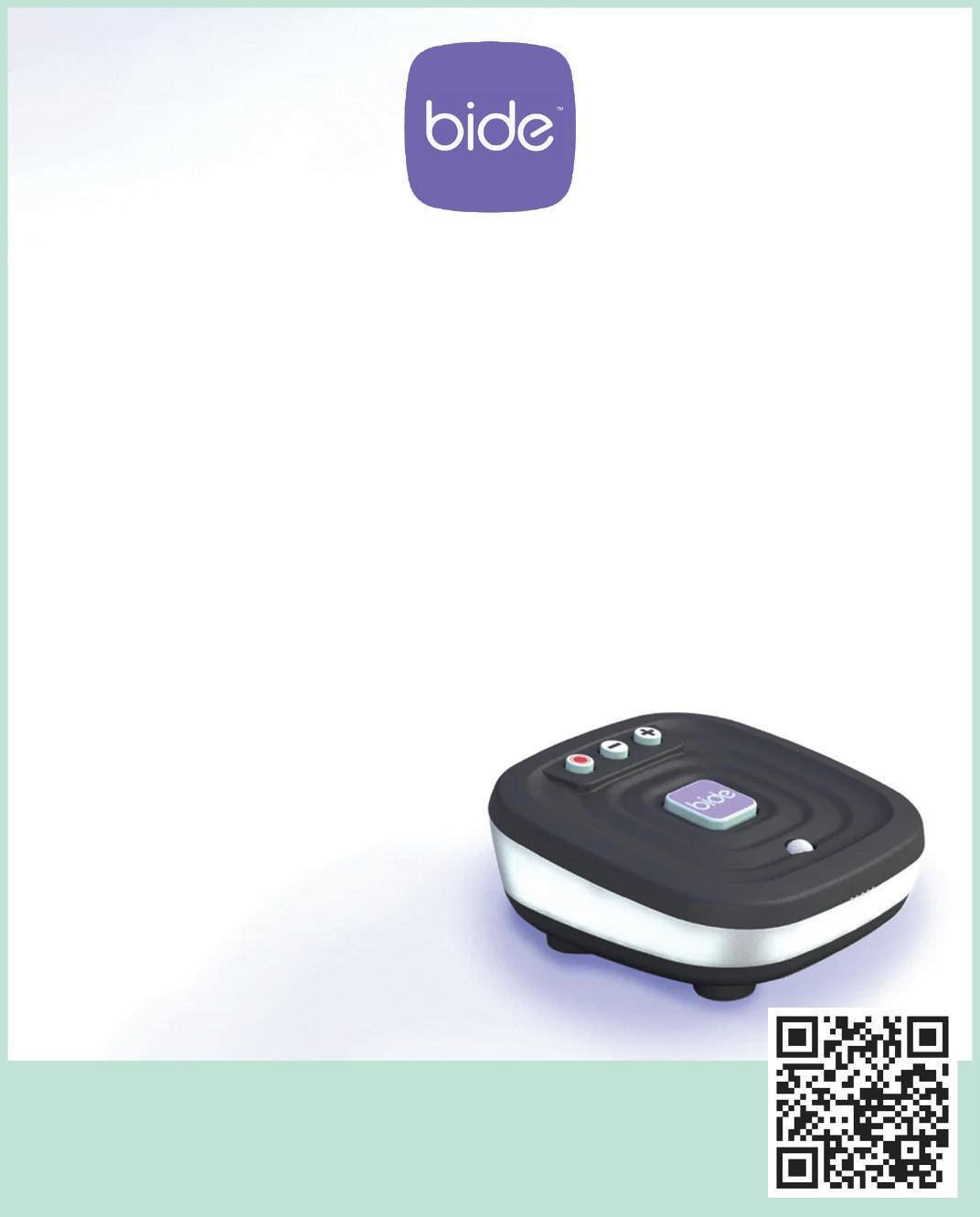
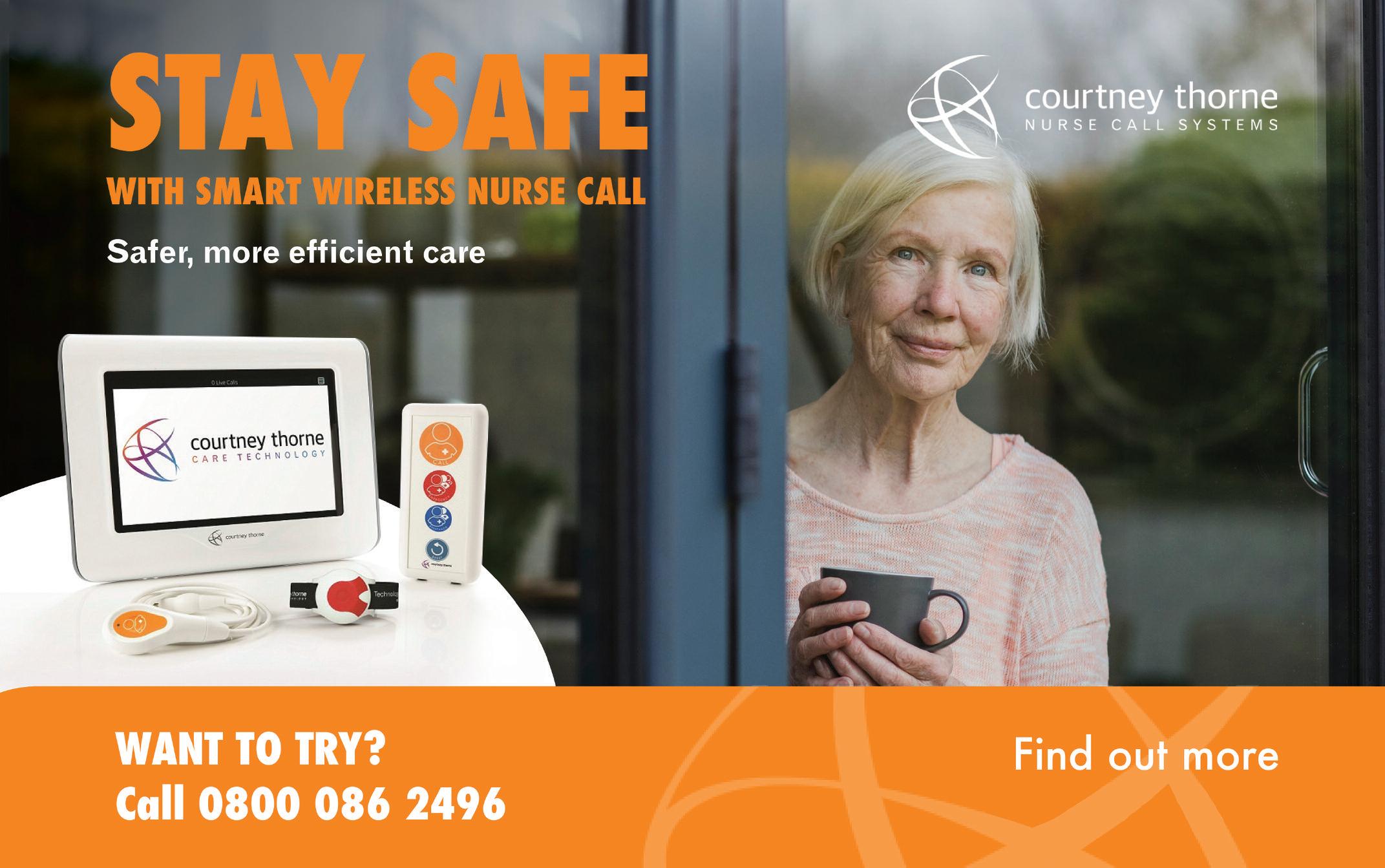
are most common in our older populations and those living with frailty Falls are also three times more frequent in care homes A third of falls occur at nighttime and in the care sector, these can be triggered by low blood pressure, medication issues, disorientation, mobility issues, confusion, dementia, and unfamiliarity with surroundings I felt that something had to change!
aimed at detecting falls once they had occurred there was little to prevent the falls in the first place It was at that moment that the idea for Bide was born Bide is our simple to set up and use bedside device aimed to prevent falls and provide user and carer reassurance Light and motion sensors detect that the user is awake then Bide plays prerecorded voice messages from the carer or loved-one encouraging them to stay safer “User feedback has been fantastic and we’re very excited about future opportunities as we scale Bide within the care sector ” www getbide com
THE CARER | MAY/JUNE 2024 | PAGE 43 PLEASE MENTION THE CARER WHEN RESPONDING TO ADVERTISING www.nursecallsystems.co.uk
MONITORING
all seen
the post pandemic world we have
the effects of sup-
inva-
Ukraine
other
ever
NURSE CALL AND FALLS MONITORING
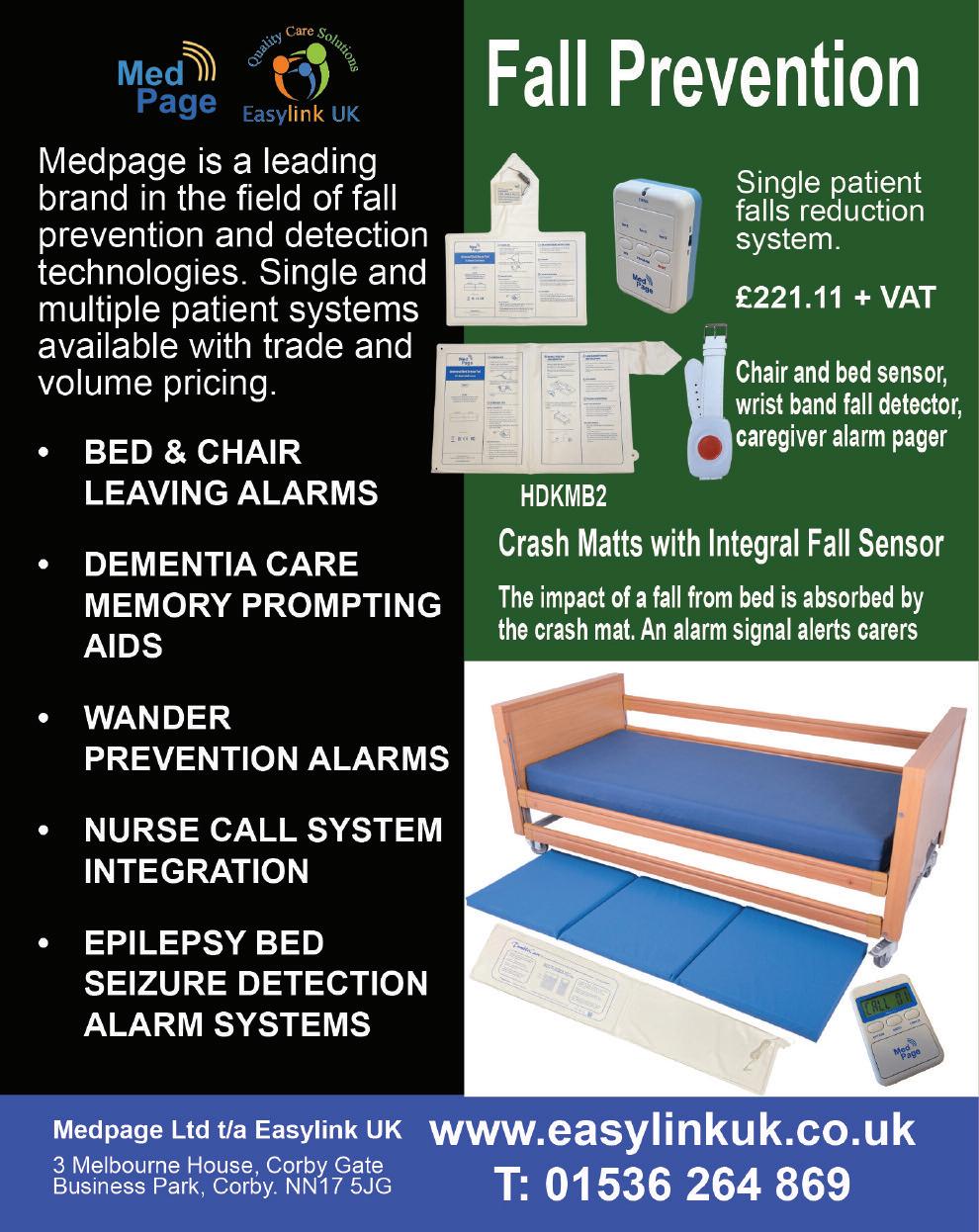
PLEASE MENTION THE CARER WHEN RESPONDING TO ADVERTISING
Crash Mats Designed to Reduce Injuries from Bed Falls

Blaucomm Ltd - Telecommunications & Networks
Blaucomm’s Nurse Call
Messaging Service (NMS) is the market leading solution to remove the dependency on noisy nurse call panels and pagers, through its intelligent software which delivers the alerts straight to the care staff who need them Care homes are rapidly introducing smartphones for digital care planning and eMarnow the same devices can be used to receive the nurse call alerts they need for the residents under their care

Furthermore Blaucomm NMS is deeply linked into Person Centred Software MCM so call bell data is linked straight to care plans This unlocks a huge benefit to care homes to enhance the staff performance with how they accept and respond to residents which ultimately promotes better response times and visibility for management to audit their performance
The best part is that Blaucomm NMS links into your existing nurse call system - we work with all major
We find Blaucomm is a genuinely fantastic company with a reliable product
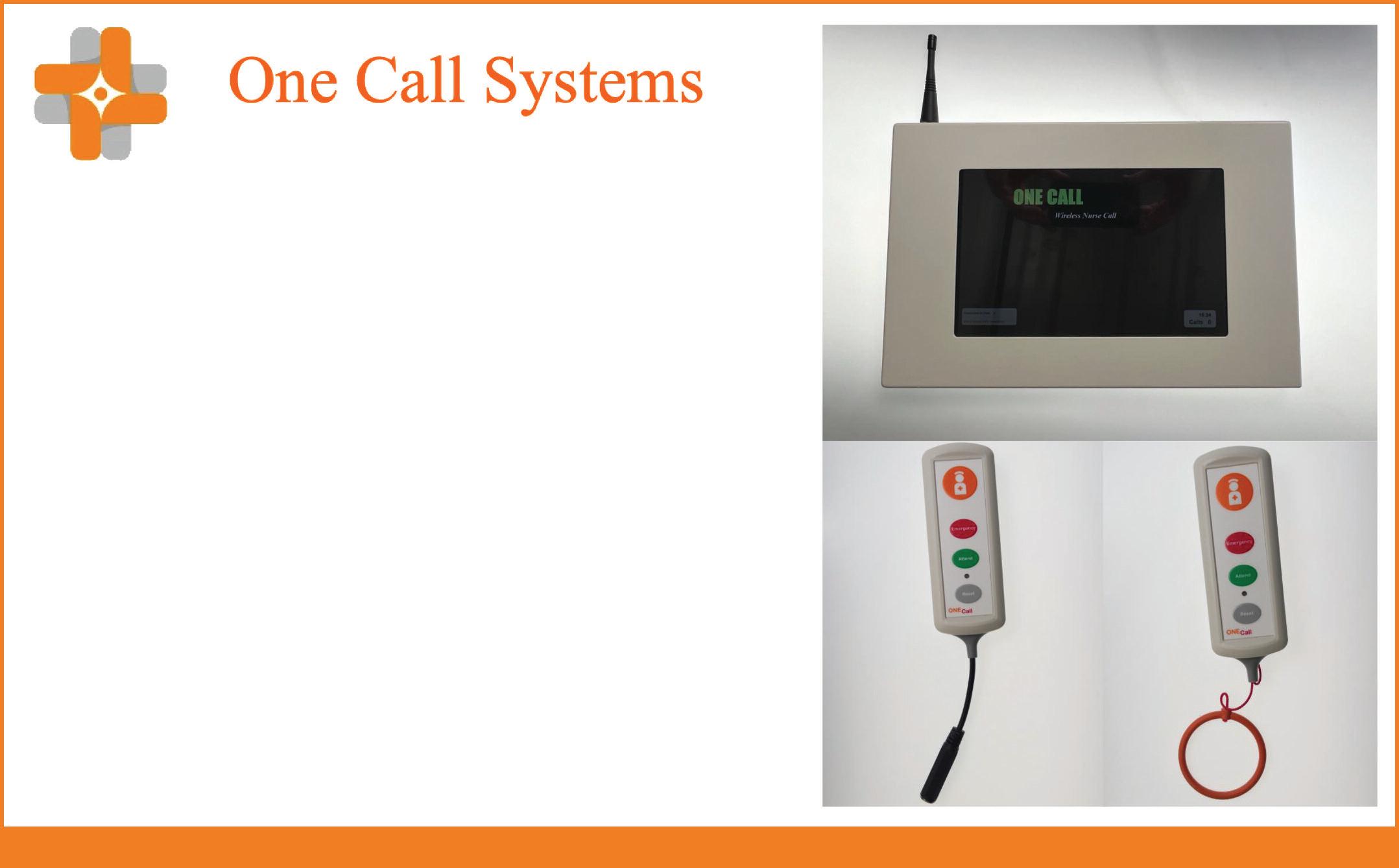
One Call Systems have developed one of the most reliable streamlined wireless nurse call systems on the market The rechargeable technology, water-resistant casings, and long-range radio capabilities set us apart
At the heart of the innovative Nursecall system is the One Call Display Panel which runs on an efficient internal radio network Designed to provide the highest level of performance and reliability The Display Panel allows staff to view live calls instantly Qualified installers will set up your system quickly and efficiently, ensuring minimal disruption and maximum benefits
With the ability to connect to the internet you can easily monitor your Home's call records from anywhere The panel is completely configurable from the display allowing you to customize your Home's settings to your preferences Trust our innovative system to provide the safety and efficiency your Home’s needs
The One Call Room Units are designed to withstand the rigours of your busy care environment There are five alternative versions - Pear push lead Pull Cords Out of Bed Door monitor and Leadless Units that you can choose from that best suit your needs
Watertight casings and fitted rechargeable batteries mean that you can rest assured that the units can be easily washed and will provide reliable service for up to 2 years on a single charge
The Call Logging system is designed to meet the safety and care requirements of Care Homes and nursing facilities The digital solution ensures complete and accurate logging of every call to prove evidence of care This invaluable tool ensures the safety of your residents
The Call Logging system is a must-have for any Care Home that wants to ensure they are providing the best possible care
Onecall provides the ability to monitor response times attendance duration and which Carer has attended which call You can be sure that you have complete oversight of your care provision Not only does this system provide valuable evidence of care, but it also helps to motivate and encourage staff to continue providing an exceptional level of care
brands such as Aidcall ARM Courtney Thorne, C-TEC, ENS Intercall, Medicare, SAS and TeleAlarm Care operators are constantly recognising Blaucomm
for its reliability
dependability to their care operations which is why we ve been chosen time and
other solutions
NMS
and
time again over
WCS
Head of IT Trudi Harrow at
Care had this to say about Blaucomm NMS
this
anybody
replace expensive
silence
loud nurse call screens!”
out more about Blaucomm NMS visit www blaucomm co uk/healthcare See the advert on the front cover for more details
"We would highly recommend
to
who wants to
pagers and
those annoyingly
To find
PAGE 44 | THE CARER | MAY/JUNE 2024 Medpage Limited has collaborated with a leading UK manufacturer of crash mats to deliver a cost-effective tool for falls management strategies The inclusion of the new TumbleCare full-length pressure mat sensor ensures that should a patient tumble out of bed an alarm signal is generated to alert care staff to the incident, resulting in a recordable improvement to patient safety and service Crash mats act as a protective barrier absorbing the impact of a fall and reducing the risk of serious injuries when a person tumbles out of bed Beneficial for individuals who are at high risk of falling such as older adults patients recovering from surgery or those with neurological conditions such as epilepsy Falls can pose significant risks especially in healthcare settings and senior care facilities Every year thousands of people suffer injuries due to falls from beds and other furniture To prevent these accidents and ensure the safety of patients and residents, it is essential to implement effective falls and safety management strategies Further details can be obtained by telephoning 01536 264 869 or emailing sales@easylinkuk co uk See the advert on page 2 for details
Please email info@onecallsystems co uk or call 01252 448137 www onecallsystems co uk
TECHNOLOGY AND SOFTWARE
Mainteno Facilities Management Software
Envivo Group is at the forefront of care and support sector driving innovation that enables people to live lives full of choices and opportunities They have 202 locations that are now using Mainteno Facilities Management software
“Our experience with Mainteno at TLC/Envivo Group has been really positive already Since its roll-out it has shown real and measurable benefits and has had a marked impact on the workload and assurance of our operations team
"We can now raise issues whether large or minor almost the instant they are spotted We can denote the priority with which they need to be tackled and track the progress of works to rectify them It has reduced almost completely the need to be directly contacting people to resolve issues which was an almost daily occurrence It has been obvious that the streamlined approach that it provides helps in prioritising works for maintenance teams and contractors, gives them plenty of detailed information as to the
exact issue and has given us an evidence base to show that issues are resolved in a consistent and effective timeframe
"The details that are available once a job is logged are invaluable to us as managers to assure ourselves that issues are not forgotten
PASS supports over 1 000 care providers every day giving them access to market leading care management tools hand in hand with unlimited 24/7/365 support from our dedicated and friendly PASS team
Assured by NHS Transformation Directorate PASS provides a secure platform that allows you to plan record and evidence the care you deliver The only assured solution built specifically for the home care sector it provides comprehensive real-time functionality and allows you to share progress against outcomes with customisable exportable reports CARE PLANNING AND ROSTERING FROM A SINGLE PLATFORM
To meet the wider needs of the PASS community
All-in-one PASS has recently been launched bringing advanced rostering functionality to our established digital care planning platform As a result advanced staff scheduling payroll and invoicing functionality is now seamlessly linked with care planning and reporting reducing the technical complexity risk and overhead associated with integrating two separate systems
As a result PASS now provides an all-in-one suite of digital care management tools available from a single platform designed to:
Save you time
• Increase the efficiency of your teams
Improve the quality of care
Deliver better outcomes
INTEGRATED HEALTH AND SOCIAL CARE
Our commitment to the continual evolution of PASS is further illustrated by the addition of GP
Connect The first product of its type to offer this feature PASS is still one of only a handful of digital care management solutions to have completed this NHS Digital integration, and is the only one offering it to the home care market
PASS GP Connect provides authorised social care staff with realtime access to their client s GP records
It makes medical information available when and where it is needed leading to improvements in both care safety and outcomes
Visibility of allergies vaccinations and medications especially useful for clients unable to reliably share their personal information
Using medical information to inform care planning
Ensuring that the right medication is delivered to the right person in the timeliest manner In one case this allowed the administration of antibiotics on a Friday evening aiding the service user s swift recovery from nfection
Available to all PASS users at no additional cost, PASS GP Connect is significantly more efficient than waiting for a GP response It s also a positive step forward on the path to the DHSC s goal for widespread digitally enabled care and is in full alignment with their ambition for joined up care for everyone Get in touch
www everylifetechnologies com hello@everylifetechnoloiges com
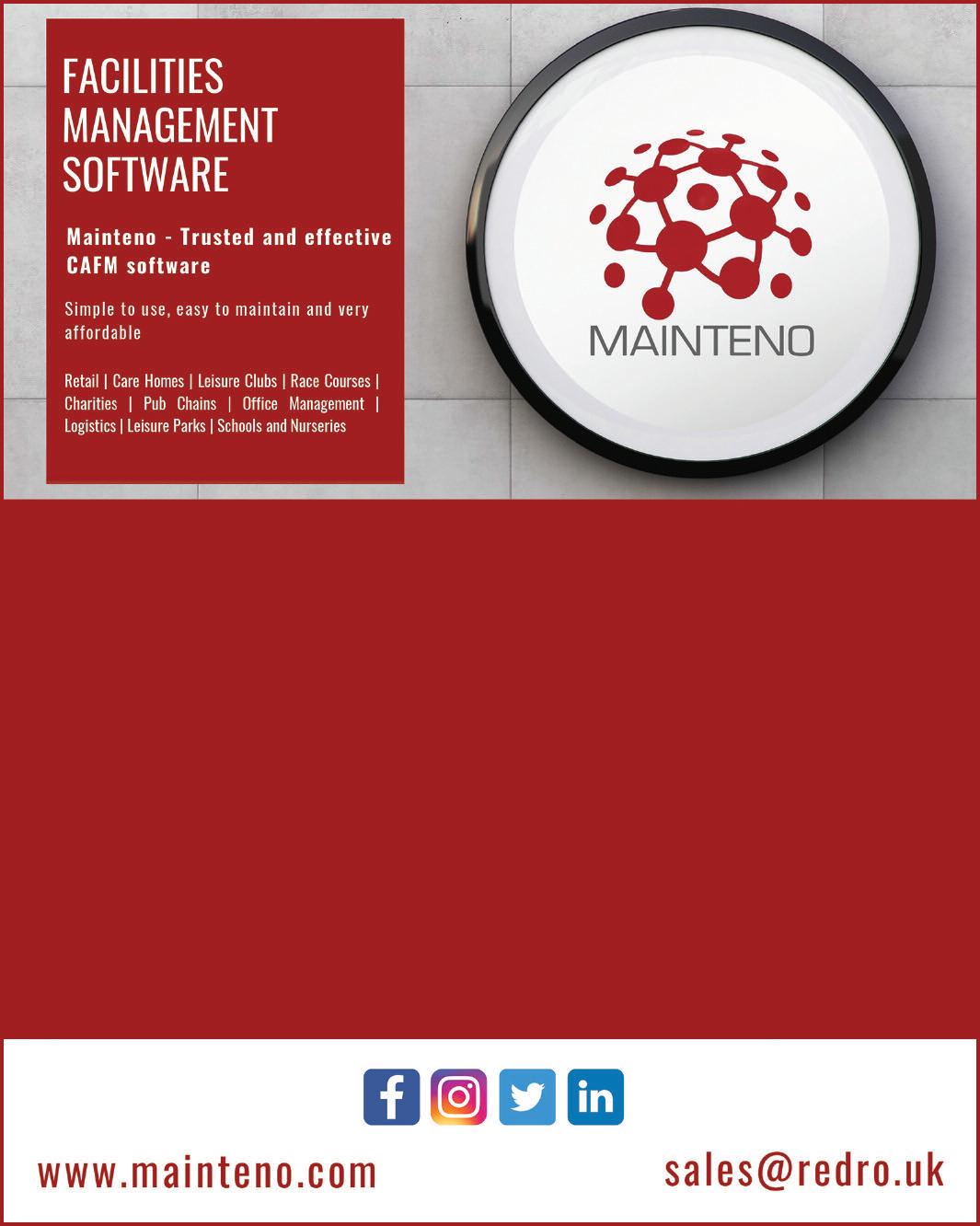
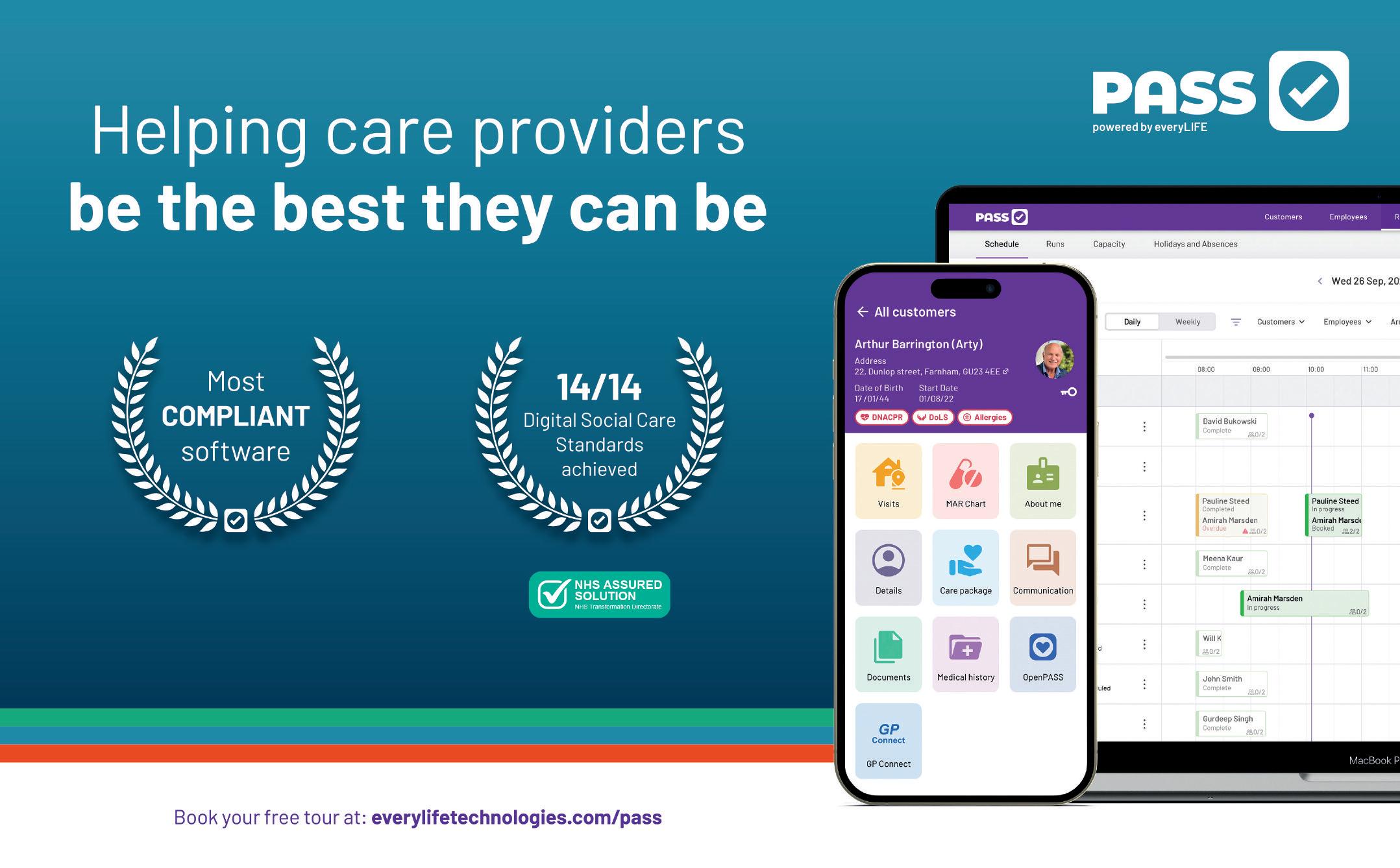
can evidence to reg-
etc that there are plans to rectify any outstand-
works
may pick up I've been very
the details that are passed back to me
the platform as works are ongoing
our size
complexity especially a toolkit with this level of effectivity and scope has been an incredible help ” Group Facilities Manager sales@redro uk www mainteno com 4 Asset tracking and value reporting 4 Invoice management 4 Add multiple images and documents 4 Detailed analytical reporting 4 Dashboard reporting showing live status of all tasks 4 Management of all planned maintenance schedules 4 Compliance testing and inspections 4 Traffic light detailed reporting for audit purpose 4 Audit reporting 4 Can be used for help desk 4 Vehicle insurance and MOT scheduled reminders 4 Supplier performance management and reporting 4 Warranty and insurance management 4 Can be used on any web enabled device 4 Link tasks to calendar 4 Create check lists for compliance purposes 4 Contractors Quotes and Invoice Management 4 Contractor Login upload function THE CARER | MAY/JUNE 2024 | PAGE 45
by ever yLIFE PLEASE MENTION THE CARER WHEN RESPONDING TO ADVERTISING
We
ulators
ing
that they
impressed with
through
and also when they are completed It's proved to be a valuable reference to ensure that we are not doubling up requests working through tasks in a logical way and also to confirm the completion of works remotely "For a site of
and
Pass
Alleviating Pain in Care Homes - Prevalence of Pain in Care Homes
Over 425 000 people live in Care Homes in the UK Many have significant longterm health problems Some 65% have dementia, reduced cognitive functioning, and difficulties with communication Studies estimate that at least one-third of the Care Home population live with, and experience pain
Care Home residents with cognitive and speech disorders are at a higher risk of living with pain and musculoskeletal disorders (MSD) that affect muscles bones and joints
The Care Act 2014 emphasises the importance of measuring and improving the wellbeing of social care users However, there is no standard method of measuring quality of life in Care Homes nor are there ways to measure aspects of health such as pain, anxiety, or depression
The consensus is that pain is often under-recognised and under-treated in care homes

However pain is a subjective experience and cannot be adequately measured which is why mainstream approaches rely on self-reporting A key challenge to carers managing these experiences is the high proportion of residents who live with dementia
THERMAL IMAGING – A NON-INVASIVE OBJECTIVE SOLUTION
Thermal imaging or thermography is a non-invasive complementary diagnostic approach that creates a high-definition thermal map of your body (thermogram) Thermograms illustrate temperature patterns consistent with inflammation Inflammation is a vital part of the immune system s response to injury and infec-
Data
tion
The appearance and location of thermal patterns helps to identify regions and sources of pain based on levels and differences in temperature and hence thermography can be used to diagnose pain objectively - invaluable when the resident is unable to communicate effectively
Thermography can also detect the source of pain and inflammation surrounding bone fractures entrapped nerves muscular trigger points and arthritis It enables the early detection of pressure injuries before any visible signs and provides diagnostic information indispensable in helping to arrive at identifying the sources of pain and an accurate diagnosis
Early detection of the source of the problem allows practitioners and residents to design a proactive treatment plan with specific interventions and treatments to mitigate the process of inflammation Thermography is also a highly effective tool for monitoring if a treatment protocol is working
Bunn et al in a meta-analysis of studies in 2020 found that thermography had such high diagnostic utility that they propose thermography as a first line MSD detection tool
By seeing what the human eye cannot see Thermidas thermal imaging solutions can assist carers and clinicians in locating and creating optimal treatment plans and alleviating pain
Stephen Taylor Thermidas UK
Book a free demo at www thermidas fi
Protection And Cyber Security: Next Steps For Care Homes


Record numbers of care homes are using the Data Security and Protection Toolkit (DSPT) to check and improve how they keep information safe Almost 80% currently comply with the self-assessment tool But compliance is one thing – the real challenge is implementation Cyber crime is a real and present danger The real risk however may be closer to home According to the Information Commissioners’ Office most data breaches occur because of human error not as a result of a criminal attack According to the ICO s analysis of data breaches reported by social care since 2019, only 22% were because of cyber concerns 78% were due to non cyber issues – including data being emailed posted or faxed to the wrong recipient, verbal disclosures of data, and the loss or theft of paper records But what can senior care managers do to protect their organisations from malicious criminals and innocent staff? Better Security Better Care – the national support programme on data protection and cyber security at the Digital Care Hub advises care provider to prioritise the following areas: Train your staff: Even with the best tech security in place, a well-intentioned but poorly informed colleague can leak data or admit a cyber criminal into your systems If you haven’t trained them on what to look out for, or you haven t put clear policies in place – you can expect errors to be made and your company is responsible as well as the individual Access free training on data protection and cyber security specifically for care staff Add digital and data to your business continuity plan: Something will go wrong at some stage – that’s just the data-rich world we live in You need to be prepared Use the Digital Care Hub template and guide to create your own plan Review and republish your DSPT at least once a year: Things change: new tech is introduced, care services come and go, and staff turnover is high The DSPT is a comprehensive checklist of issues you need to consider every year The deadline for this year is 30 June 2024 As ever Better Security Better Care offers free expert support to help care providers complete and implement with the DSPT Visit www digitalcarehub co uk/bettersecuritybettercare
TECHNOLOGY AND SOFTWARE PAGE 46 | THE CARER | MAY/JUNE 2024

PRODUCTS AND SERVICES
CareZips® Classic Adaptive Pants

Caring About Solar For Sustainable Hot Water

Angloplas Dispensers Help Reduce the Risk of Cross Infection

C&S Seating Ltd

vice Trolleys

Debt Financing and Social Care


CareZips® Classic are patented easy dressing unisex adaptive pants designed for older and disabled people suffering with problems associated with continence mobility mental function and cognition Suitable for persons living in care institutions, receiving care at home or living independently at home, CareZips® Classic enable people to dress themselves or with assistance from carers CareZips® Classic feature patented 3-zipper system, which opens the front of the pants from the waist to the knees for quicker access during toileting continence pads changes and personal hygiene The forward positioning of the two side zippers lessens pressure on sensitive hip areas helping to eliminate discomfort The third zipper facilitates simple full frontal opening for faster more dignified diaper changes catheter adjustments personal cleansing and hygiene routines CareZips® Classic have many benefits for the older and disabled users and their carers: People dressing themselves enjoy the practical functionality and versatility of the CareZips® Classic all day comfort and easy garment care People dependent on assisted dressing appreciate quick easy dressing process with less stress, embarrassment and greater dignity offered by CareZips® Classic CareZips® Classic offer practical gains to the carers, helping them to provide better care whilst reducing physical efforts and saving valuable time CareZips® Classic are unisex available in 6 sizes and 3 practical colours (i e black charcoal and navy) Tapered fit at the ankles gives a tidy appearance Made from breathable moisturewicking 4-way stretchy crease-free and easy-care durable fabric CareZips® Classic are comfortable practical and conveniently functional For more information contact Win Health Medical Ltd - 01835 864866 - www win-health com See the adverts on the front cover and page 3
From basins to baths and showers, catering and wash down, hot water is a necessary daily requirement across the care sector It s also energy intensive which means it can be both expensive and a key contributor to carbon emissions from buildings especially if running on gas water heating Care homes intending to address existing gas-fired hot water systems with more sustainable technologies as part of a decarbonisation strategy have several choices and solar thermal should be given serious consideration Working to offset existing gas demands and reduce emissions or providing preheat in all-electric replacement systems solar thermal is becoming increasingly attractive again As grid electricity continues to be substantially more expensive than gas (by a factor of 5 51 at the close of 2023) solar thermal currently offers an especially strong return on investment in ‘greener’ all electric systems Solar thermal systems which are properly installed and serviced have proven to have a long lifespan with low maintenance demands especially flat plate collector systems with drainback technology These systems employ gravity flow to preserve operational qualities of the solar fluid required to transfer solar energy as heat to the hot water application A hot water system deploying solar thermal as a preheat can offset a minimum of 30% of its annual energy For Southern and Westerly UK regions this percentage is much higher and in the summer months the technology could meet nearly all a building s hot water demands With new high-efficiency robust flat plate collectors and protective drainback cylinders and controls to integrate solar thermal Adveco can support upgrades to existing gas-fired water heating or with an electric boiler transition to full electric water heating with bespoke system design and product supply For care homes that previously invested in solar systems which need renovation or are no longer supported by the original manufacturer Adveco can provide the necessary system elements to resurrect pre-existing solar thermal installations It’s a costeffective method for rapidly gaining advantage of energy offsetting as part of a care home s sustainability strategy Visit www adveco co or see the advert on page 5
Watch your resident's eyes light up when the trolley arrives! Euroservice trolleys can also be used as a vending trolley or to sell personal care products to residents How about a delicious snack/pastry trolley or even a drinks trolley for that afternoon tipple? Your lovely trolley could do so much for you and your residents! Visit the website at www euroservice-uk com to see the full range Or see the advert on page 7 Ser
ve in Style with Euroser
Angloplas are a UK manufacturer who specialise in producing dispensers for the health and hygiene industry Although these are designed to keep the workplace tidy and uncluttered they are more importantly built knowing the control of healthcare-associated infections (HCAIs) are a priority for healthcare providers, and who are employing a combination of infection prevention and control strategies, including hand hygiene, cleaning training and the adoption of new technologies to tackle the problem As a result a wide range of infection control products and technologies are emerging on the market including antimicrobial technology Angloplas range of dispensers are produced in the world s first proven Antimicrobial PVC with silver ion technology and which is exclusive to Angloplas This helps reduce the risk of cross infection by stopping the growth of bacteria and mould and works continuously for the lifetime of the product reducing levels of bacteria such as MRSA, E Coli, Legionella, Salmonella and mould by up to 99 99% For non-clinical environments Angloplas has recently launched its new Budget Range of products which are made to the same exacting standards as the antimicrobial protected ones but with lower price tags You can order Angloplas products directly from its website by going to www angloplas co uk See the advert on page 7
C&S Seating Ltd have provided postural control equipment to residential homes hospices medical equipment services and NHS trust hospitals nationwide since 1991 With 9 different sizes of T-Rolls and Log Rolls, in a removable and machine washable Waterproof Titex or Soft Knit material These rolls are used to control posture and position of the body in either supine or side lying Our Knee & Leg support wedges are ava lable in 2 sizes C&S Seating Ltd is the sole manufacturer of the Alternative Pos tioning Support – also available in two sizes which has removable side cushions and middle pommel for when more control of the abducted lower limb is required Our popular and vibrant range of Soft Knit covers in a choice of 5 colours provide a softer alternative ideal for the colder seasons and are designed to fit snug over our waterproof rolls for maximum protection and comfort Contact us on 01424 853331 or visit www cands-seating co uk to request or download a brochure pricelist or order form request an individualised quotation speak to an advisor or to place an order See the advert on page 9 Debt financing in the social care sector has come under considerable scrutiny over the past decade thanks in part to the influx of private equity funders and the collapse of Southern Cross in 2012 Despite this Abbey Watkins and Rachel Emmerson accountants at Kreston Reeves say not all debt is bad The demand for nursing and residential care is increasing with the need for beds outstripping supply A recent survey by Knight Frank highlights the scale of the challenge facing the sector, predicting that over the next decade there will be a shortfall of 58 000 beds Independently owned and managed residential care homes are well-placed to pick up some of that shortfall but will need to invest to do so With funding squeezed and cash reserves tight that may leave care providers with little choice but to explore funding growth through debt Debt does however have negative connotations and is seen by many business owners as something to be avoided But there is both good and bad debt Debt borrowing that exists simply to help the business survive is unlikely to be contributing to the future growth or success of a care business Whilst it may be needed it will also be a drag on growth and may not be a sensible option Good debt however is borrowing that is used to invest in the future growth of the business As long as it continues to provide those foundations for growth, exploring debt should not be feared Contrary to what care businesses may read banks and other investors are willing to lend to care businesses with strong growth plans Lenders will expect businesses to be able to demonstrate amongst other things an understanding of their current borrowing and how that will impact the ability to repay future borrowing They will also want a clear and compelling proposal from that business on how funding will be used to contribute towards growth Importantly, independent care providers will need to plan ahead, and that will require forecasting when funding is most likely to be needed It should be remembered that funding may not be needed all in one tranche but drawn down as and when needed It is also important to remember that debt financing is a corporate transaction meaning that it is there for the benefit of both parties Put bluntly debt finance must work for the lender just as much as it must work for the business meaning that not all borrowing requests will be granted It may sound cliched but people do lend to people We see that in the rise of the challenger banks who will often lend where traditional banks will not Relationships of course are not built in a 30-minute meeting so invest time in ensuring your lender understands your vision and plans for the future Banks are in most instances the first place most care providers turn to when looking for borrowing In almost all cases a bank will ask for a personal guarantee Whilst uncomfortable for many business owners they are unavoidable A blended debt financing approach could be explored (CONTINUED ON FOLLOWING PAGE )
RECRUITMENT
PAGE 48 | THE CARER | MAY/JUNE 2024
& PROFESSIONAL SERVICES
RECRUITMENT & PROFESSIONAL SERVICES
Debt Financing and Social Care
(CONTINUED FROM PREVIOUS PAGE)
There are an increasing number of debt financing options open to care providers from alternative lenders through to grants In Kent for example Kent County Council is offering an interest-free loan to fund capital investment and growth projects Whilst these schemes will often require match-funding or come with a demonstratable job creation requirement they can offer a valuable way to reduce bank funding
Care businesses should always take specialist and independent advice based on their own specific situation before considering which lender to approach for borrowing or taking external investment Rachel Emmerson is a Partner and Abbey Watkins an Accountant in the Funding Team at Kreston Reeves Kreston Reeves offers accountancy, tax and business advice to a wide range of clients Visit www krestonreeves com
In Dire Need Of Experienced Health Care Assistant, Senior Carer Or A Nurse?

JJ Recruitment has the large database of well qualified applicants with experience in the health-care industry such as health care assistants senior carers and nurses from overseas We also have an expert team of solicitors for the necessary legal proceedings and advices WHY JJ? We have very minimal processing fees We assist you to get a sponsorship license Qualified and experienced candidates from overseas Tel: 01704 808227 www jjcarerecruitment co uk admin@jjrecruitment co uk
Care Home Finance from Global Business Finance

Global assists clients throughout the U K who specialise in the healthcare sector to achieve their objectives of purchase development and refinance We have organised over £1 8bn for clients in the past 30 years, providing clients with competitively priced funding to refinance existing debt ease cashflow and develop businesses further
From helping clients make their first purchase through to allowing groups to grow significantly in size we assist at every stage of your business expansion
Every proposal is individual and deserves to be treated that way, so we hope you will allow us to be of assistance to you and call us to chat through your plans and requirements, I am sure we will be able to tailor a facility to your requirements Call us on 01242 227172 or e-mail us at enquiries@globalbusinessfinance net


PLEASE MENTION THE CARER WHEN RESPONDING TO ADVERTISING
THE CARER | MAY/JUNE 2024 | PAGE 49
























































































































































